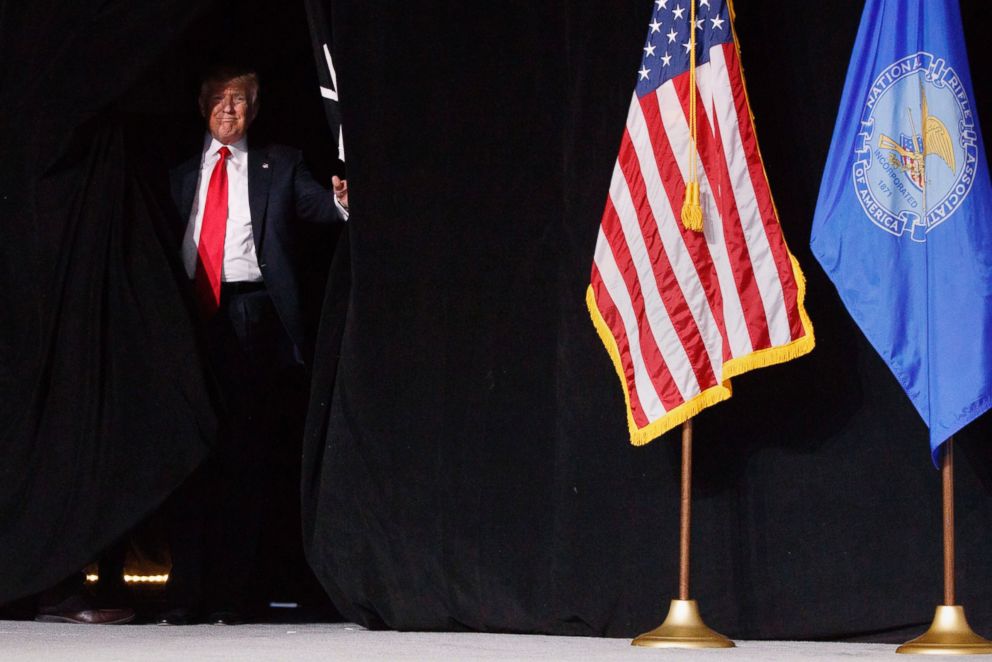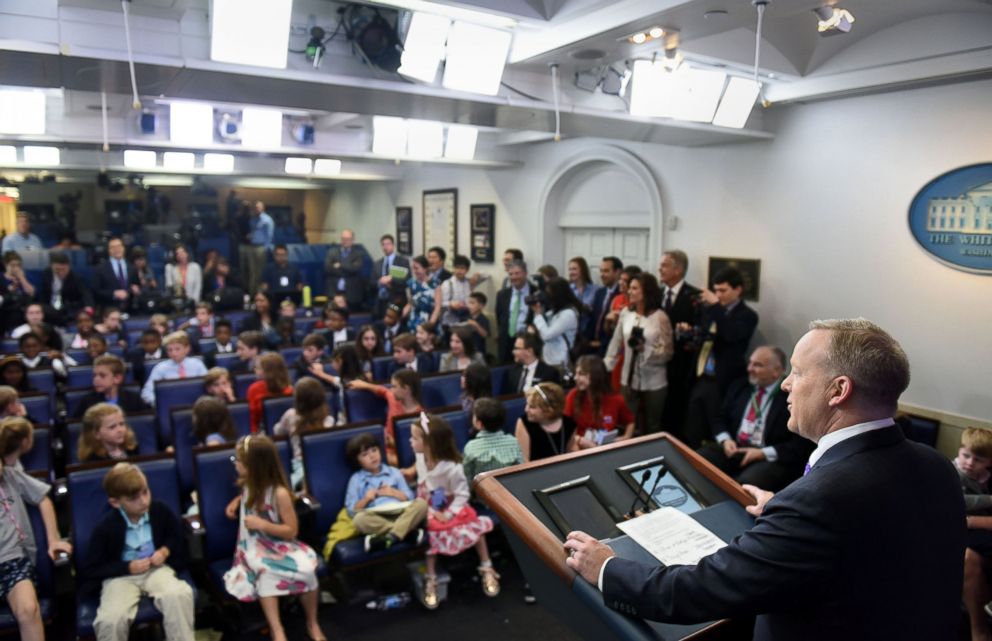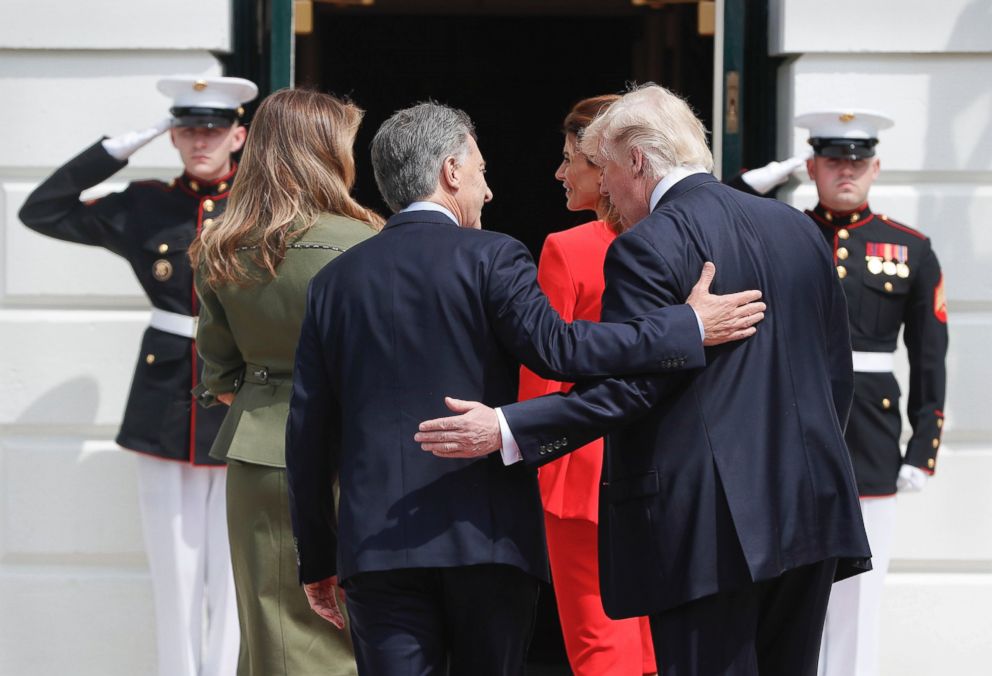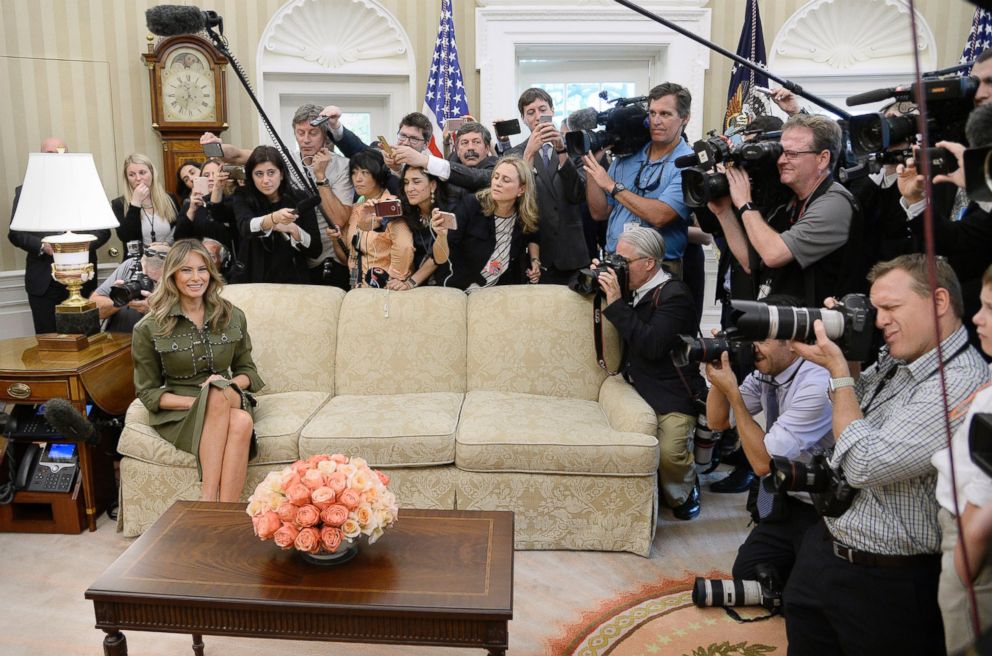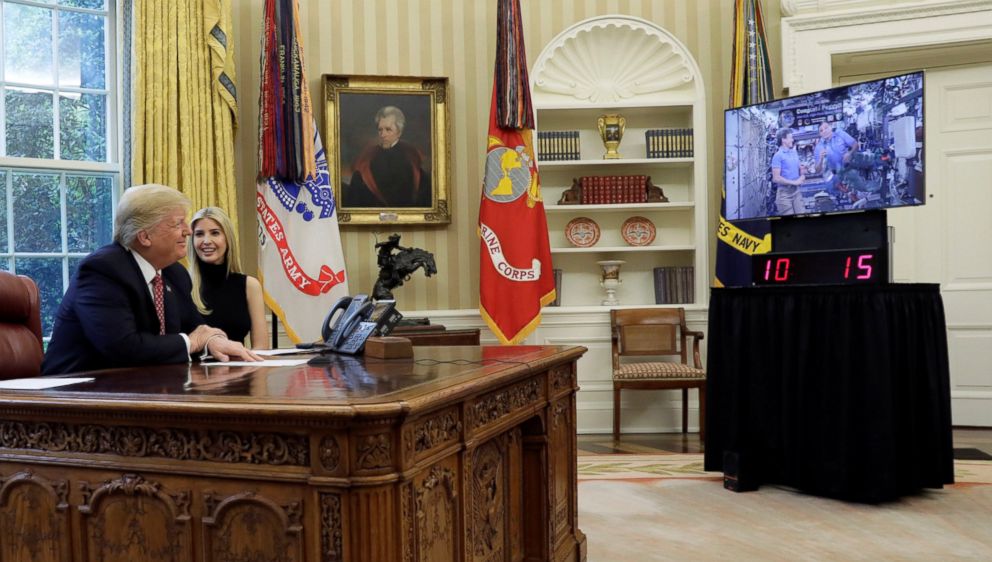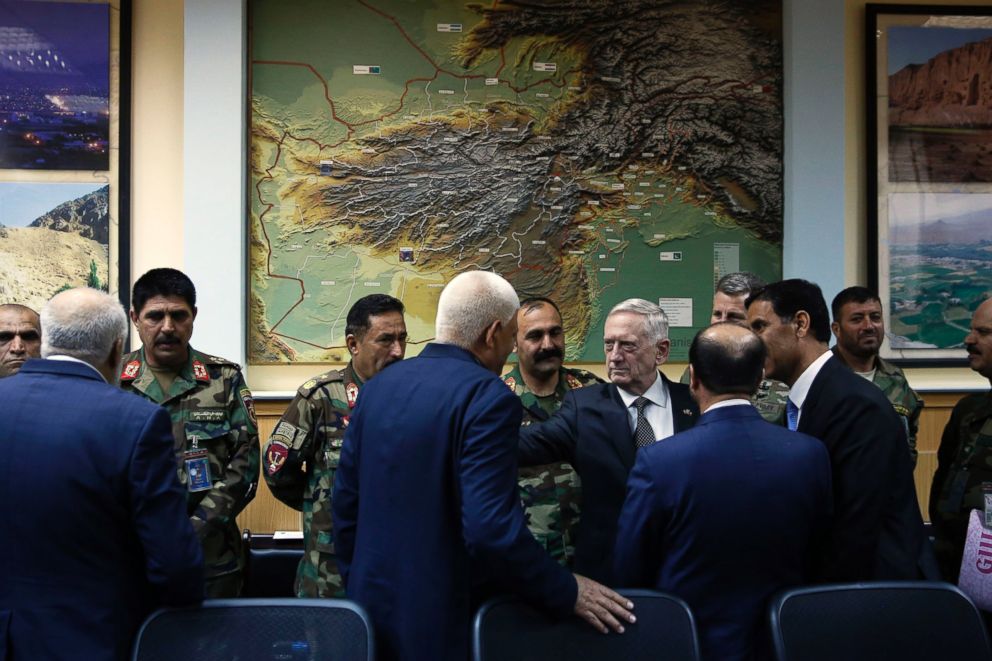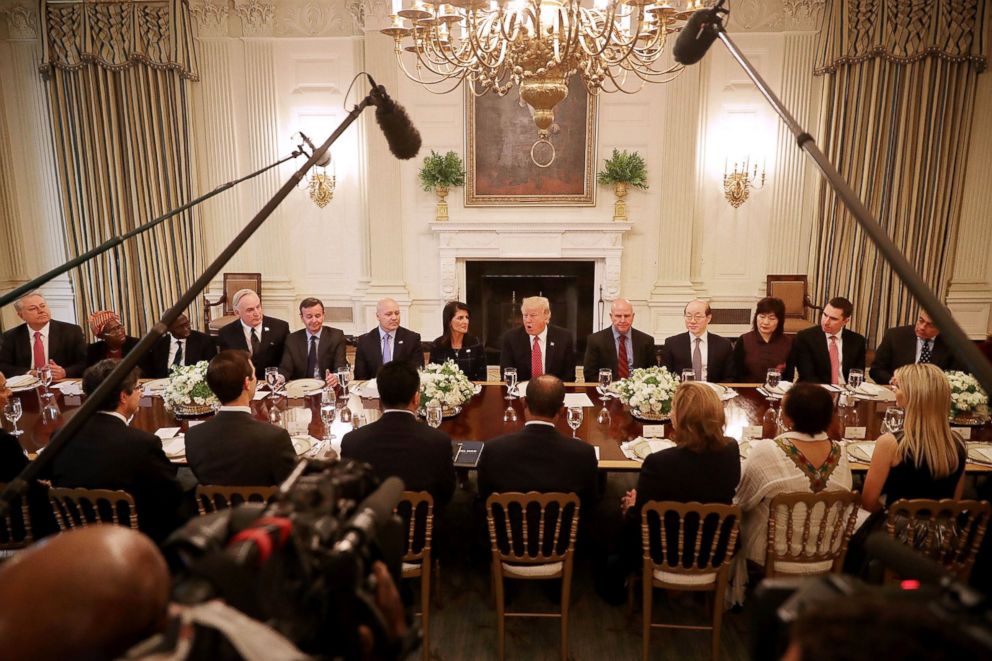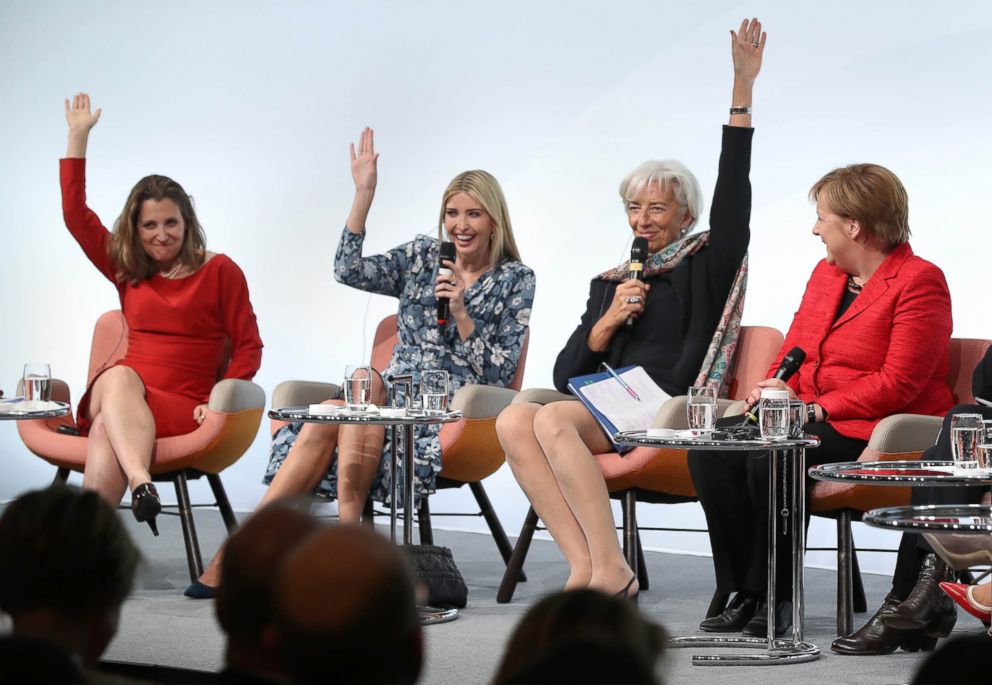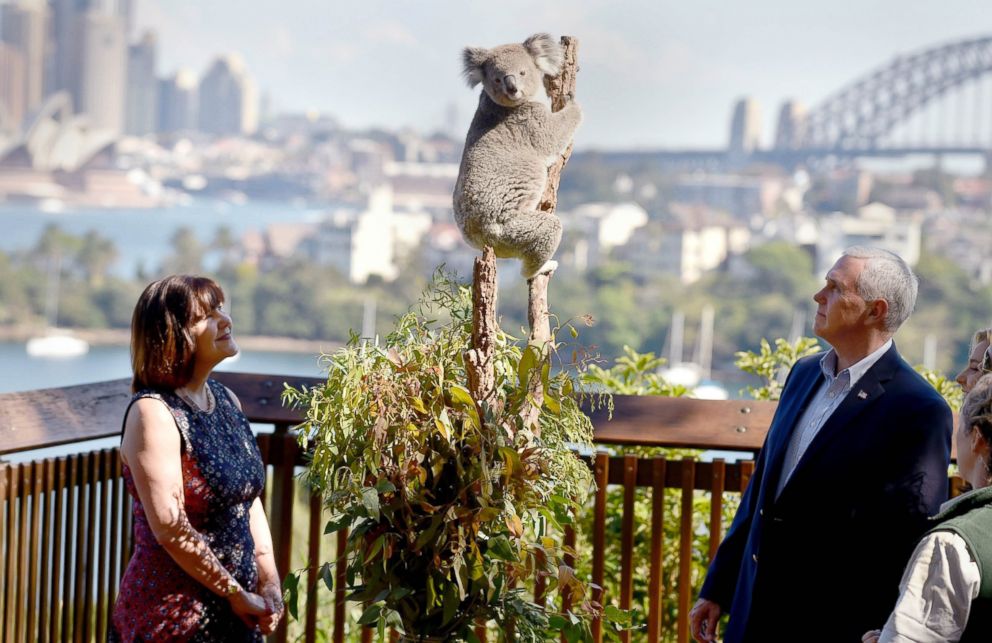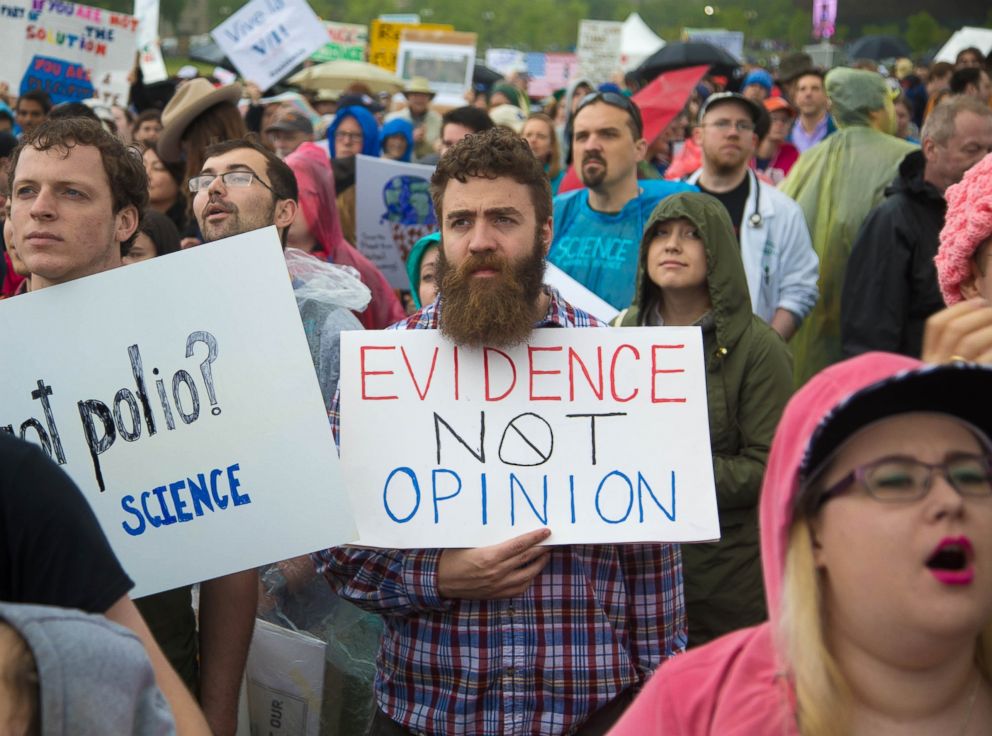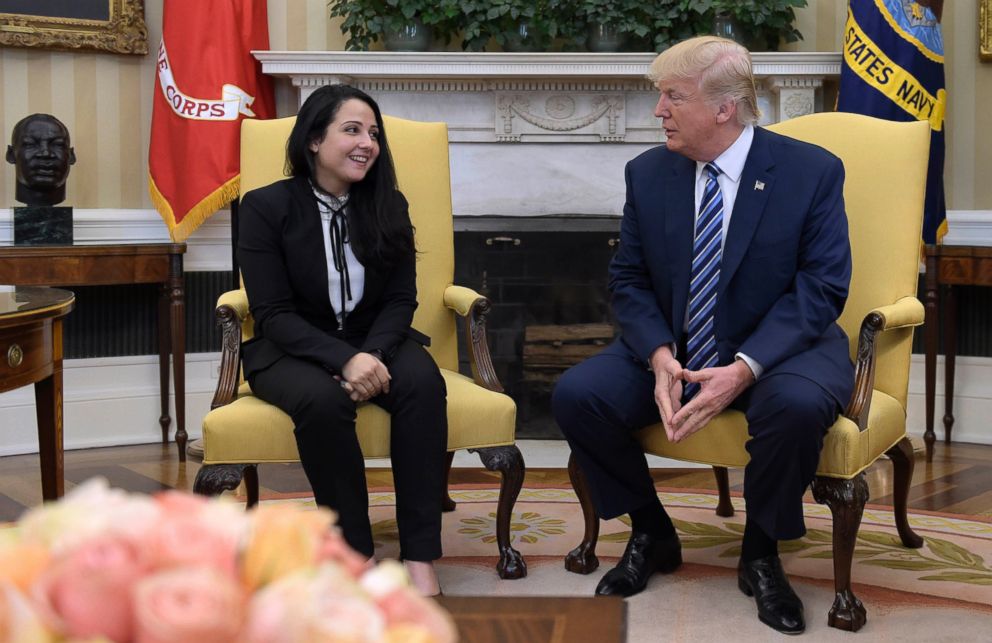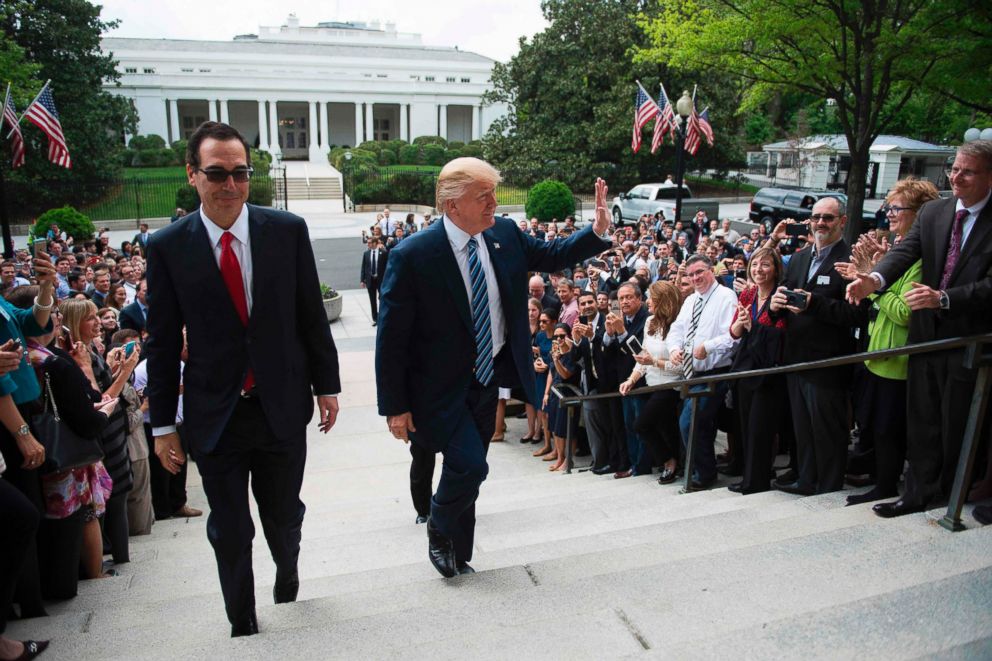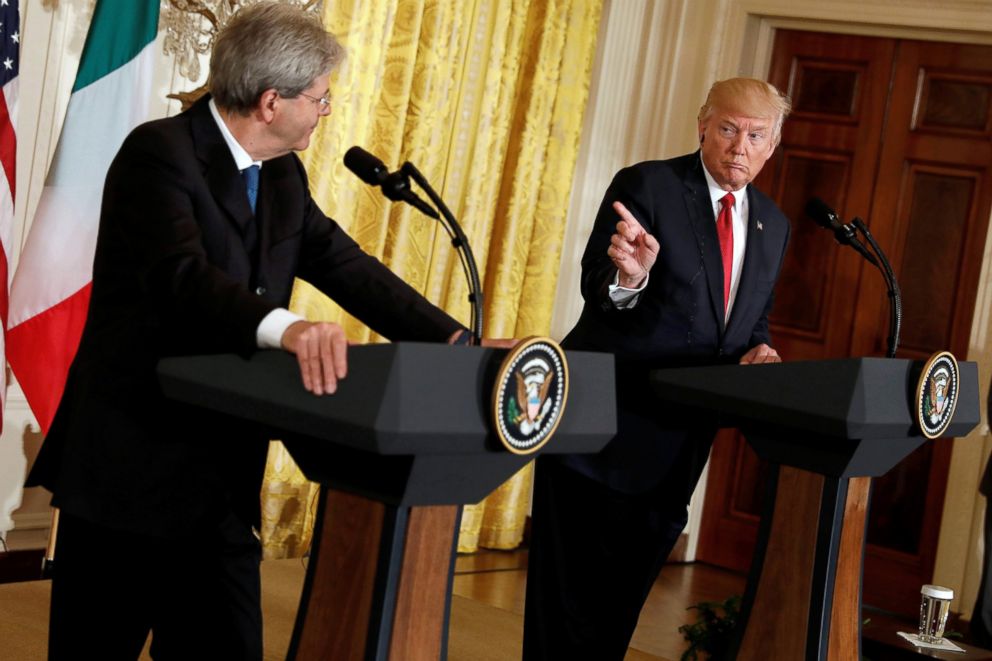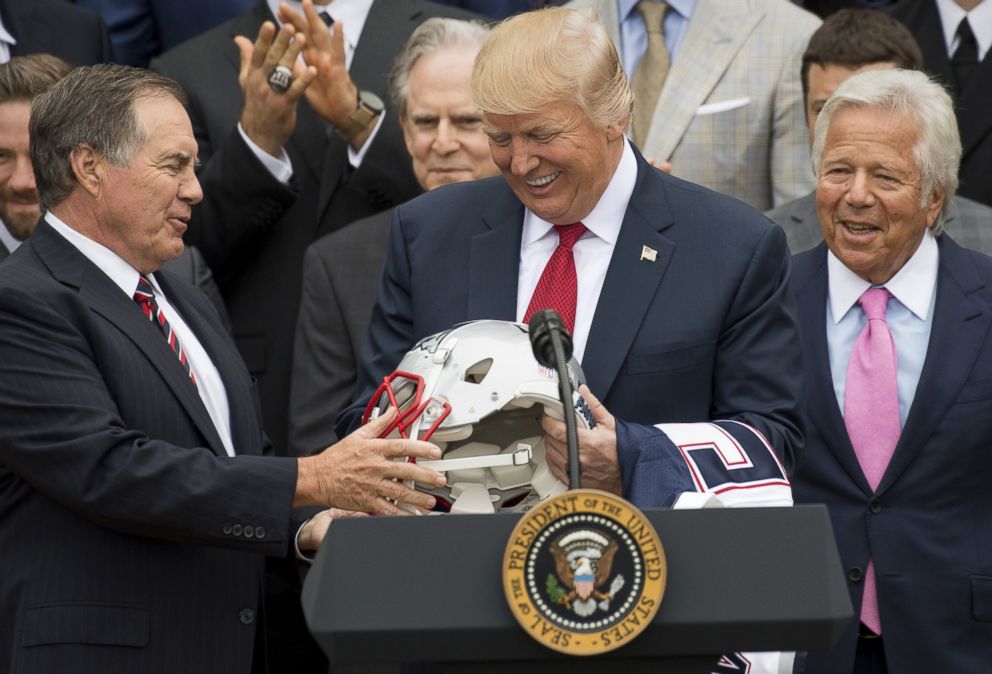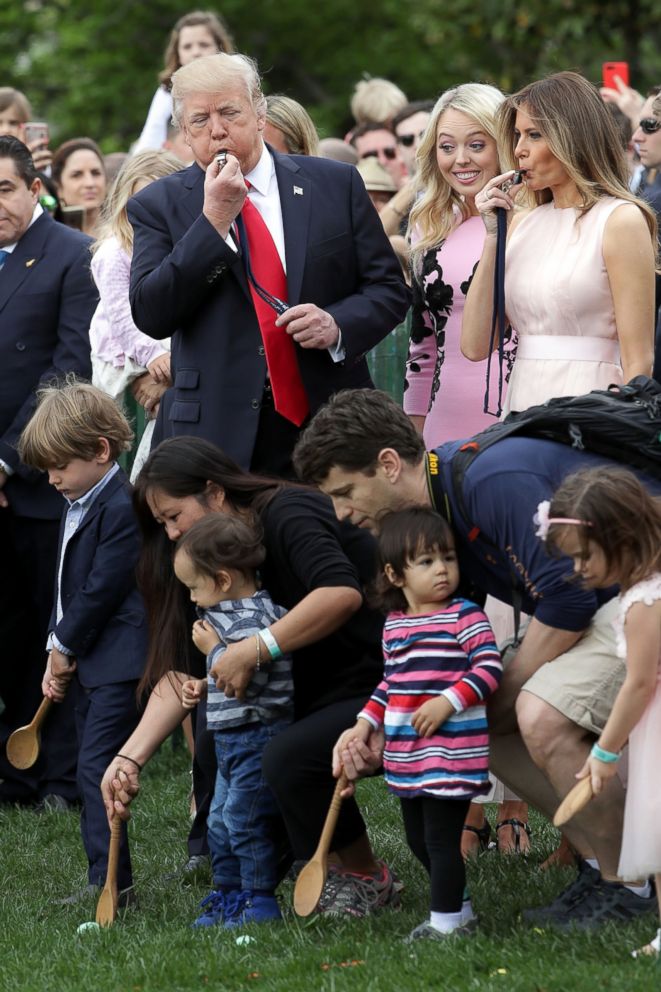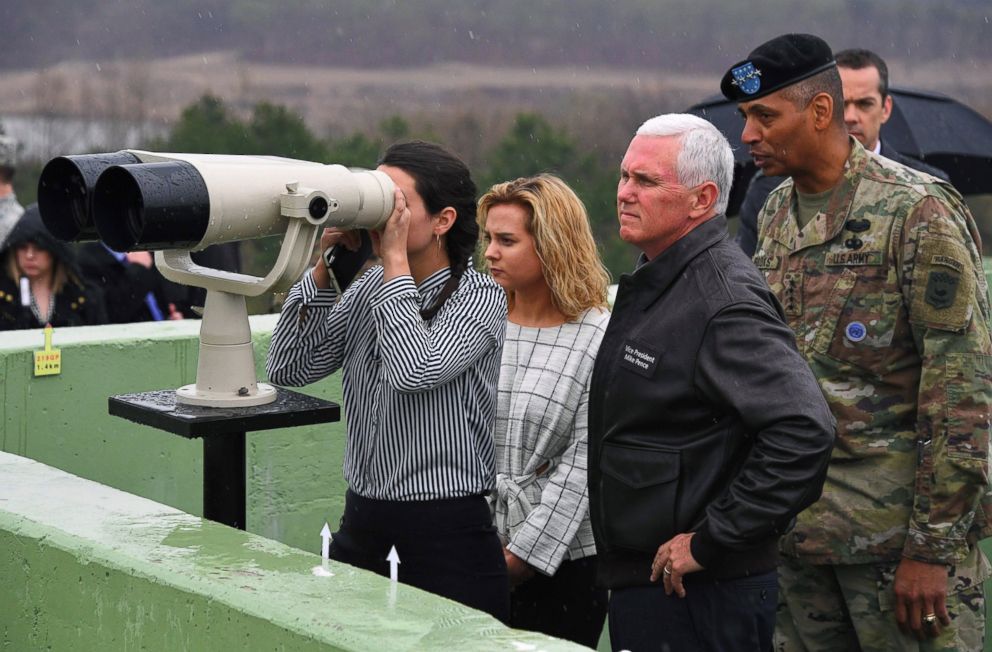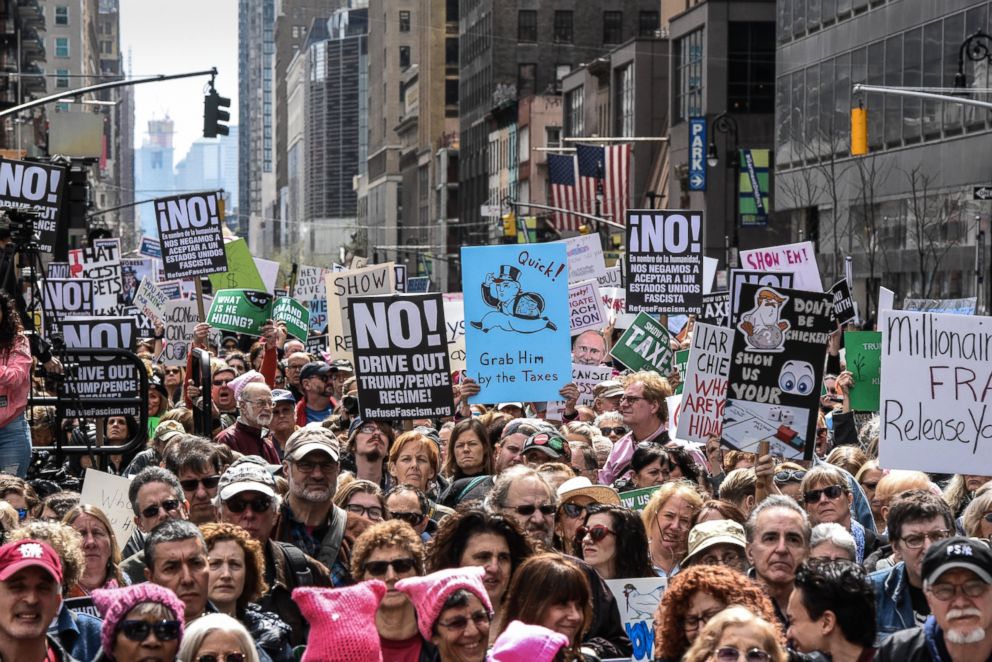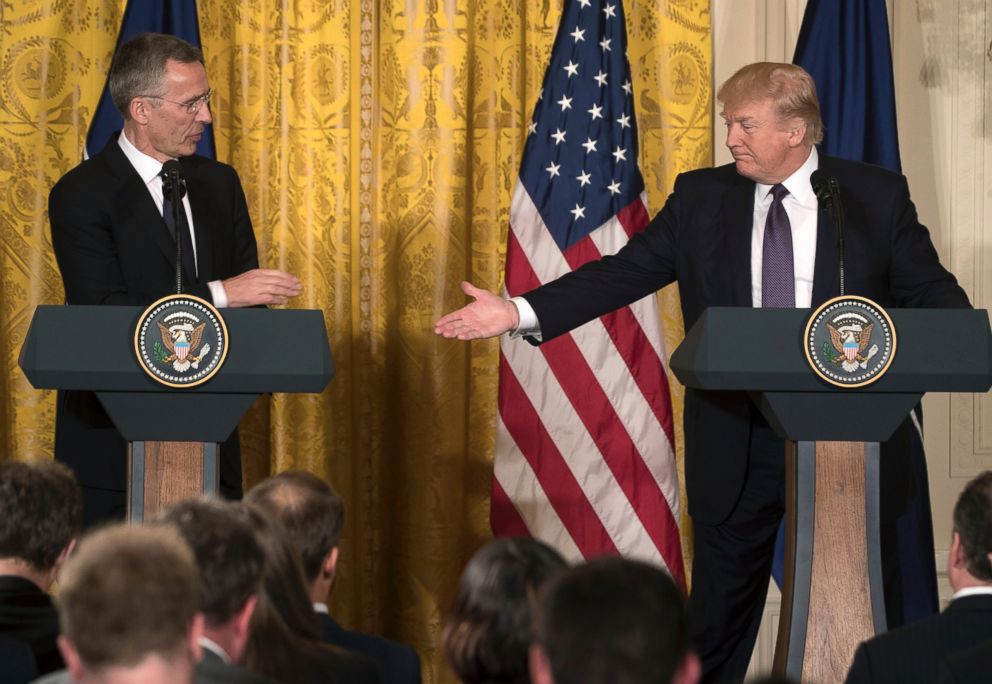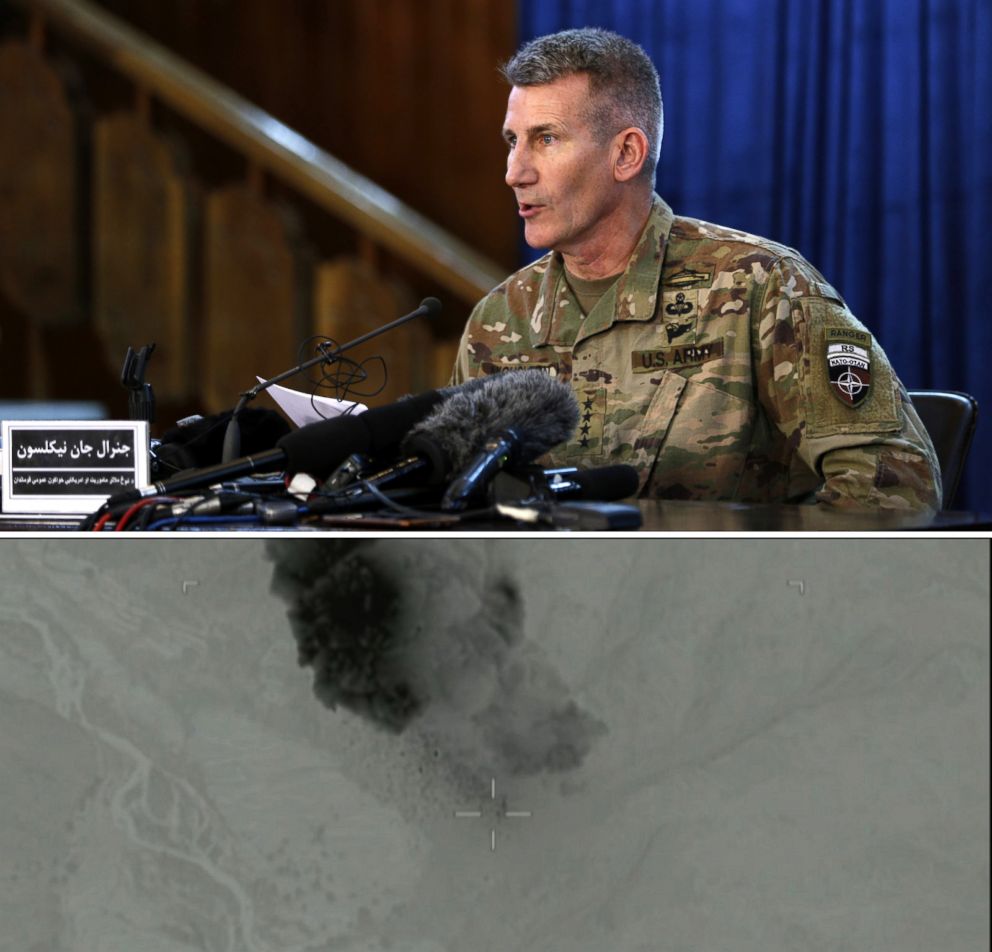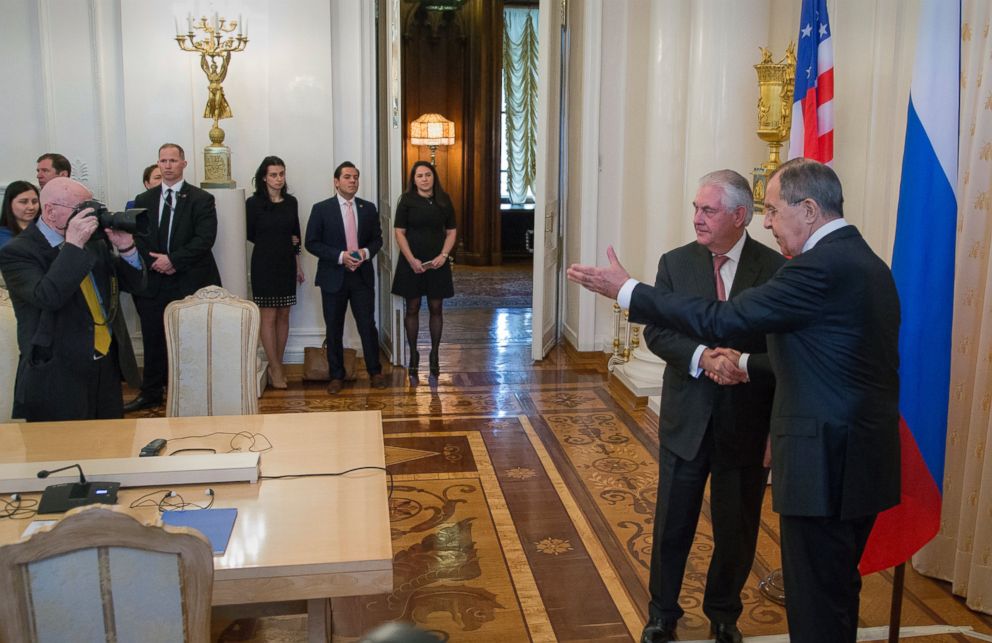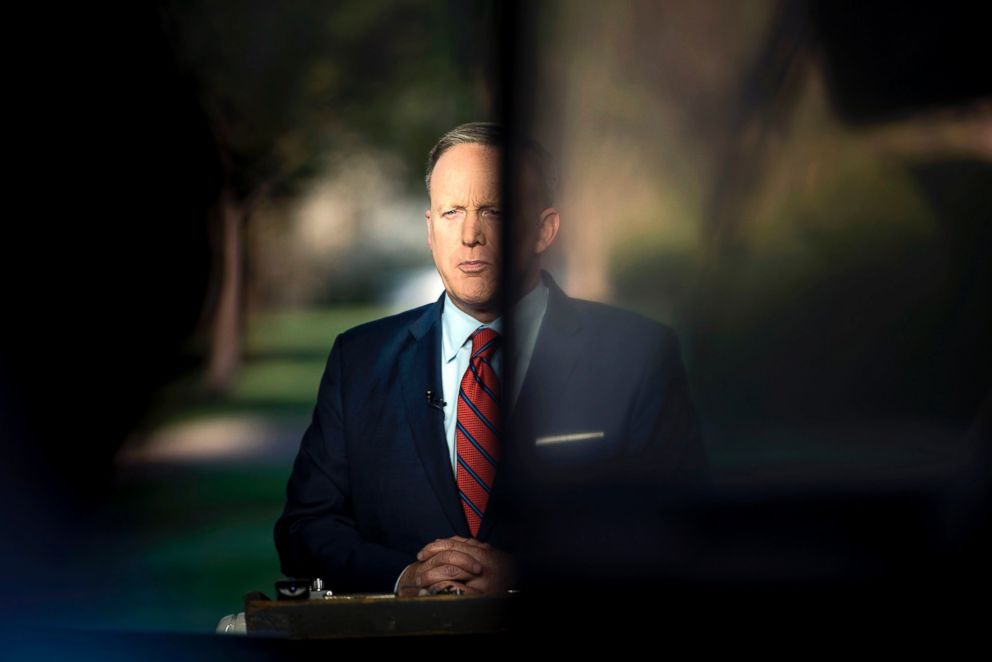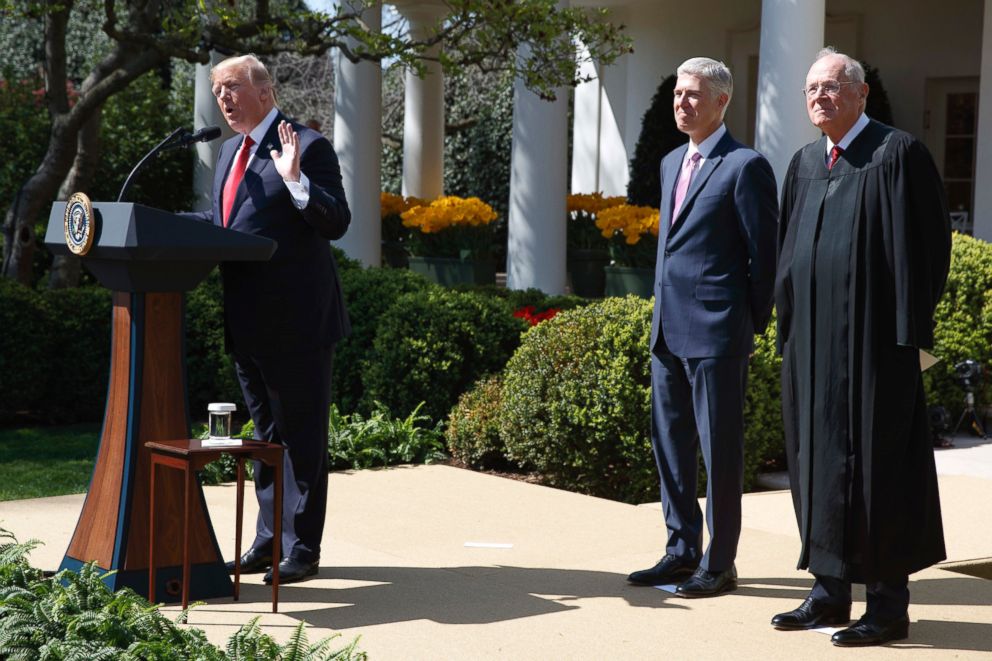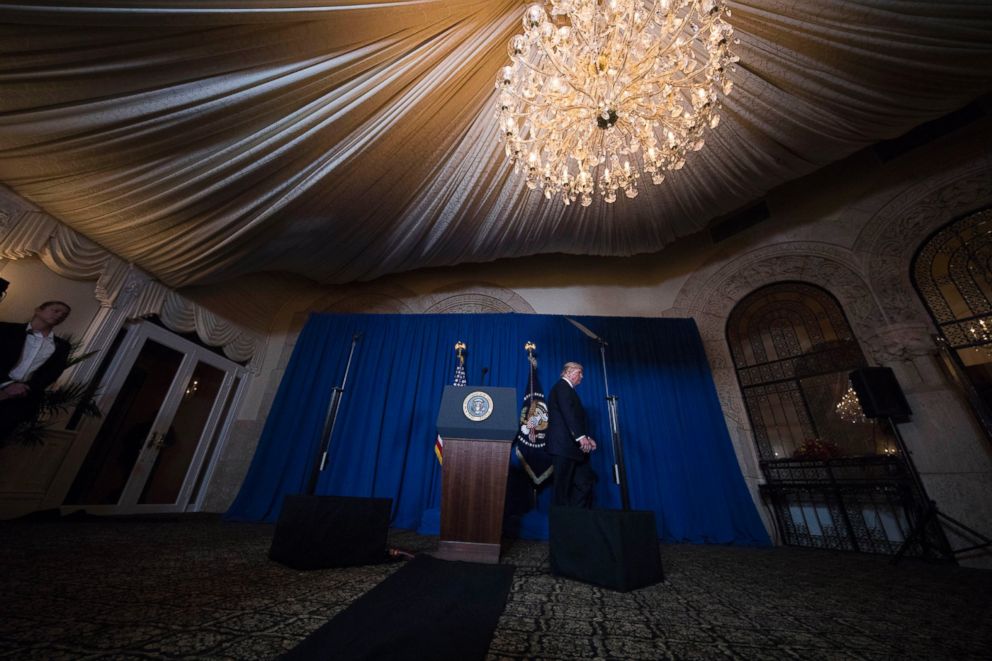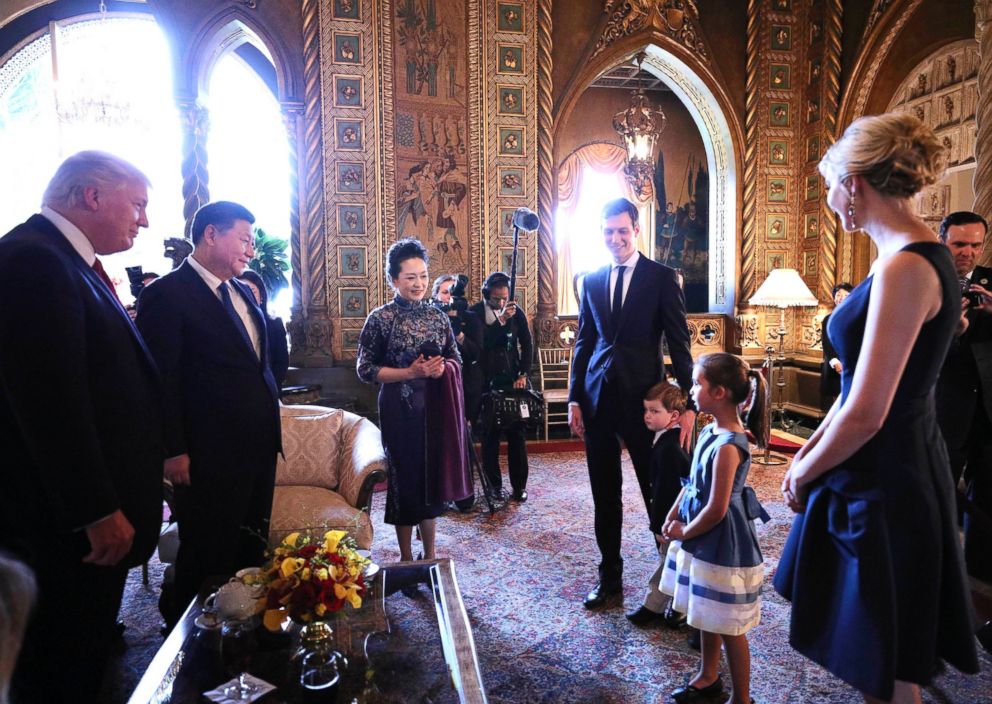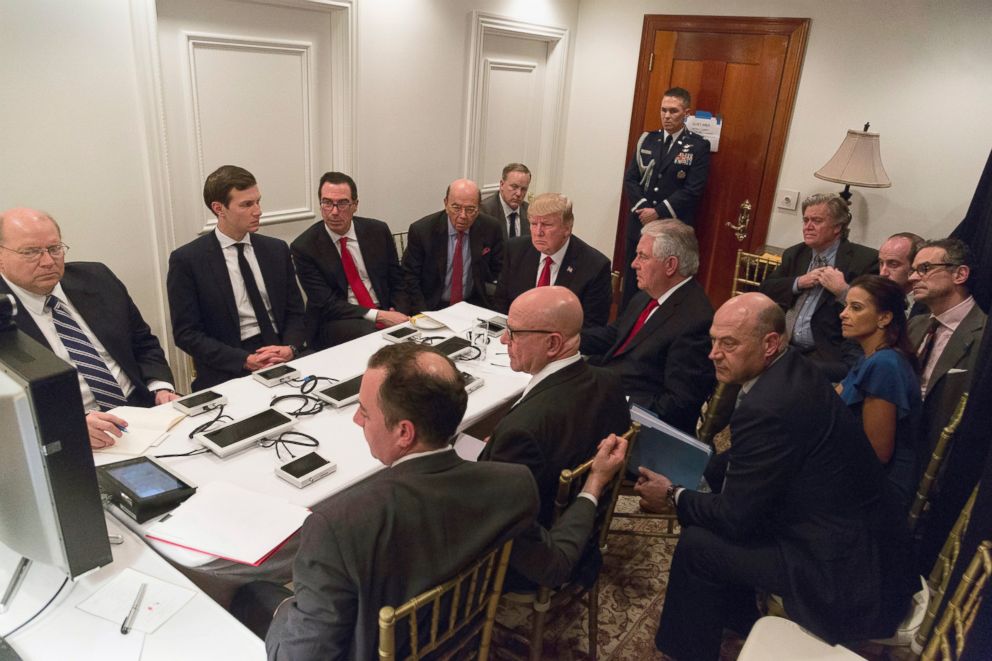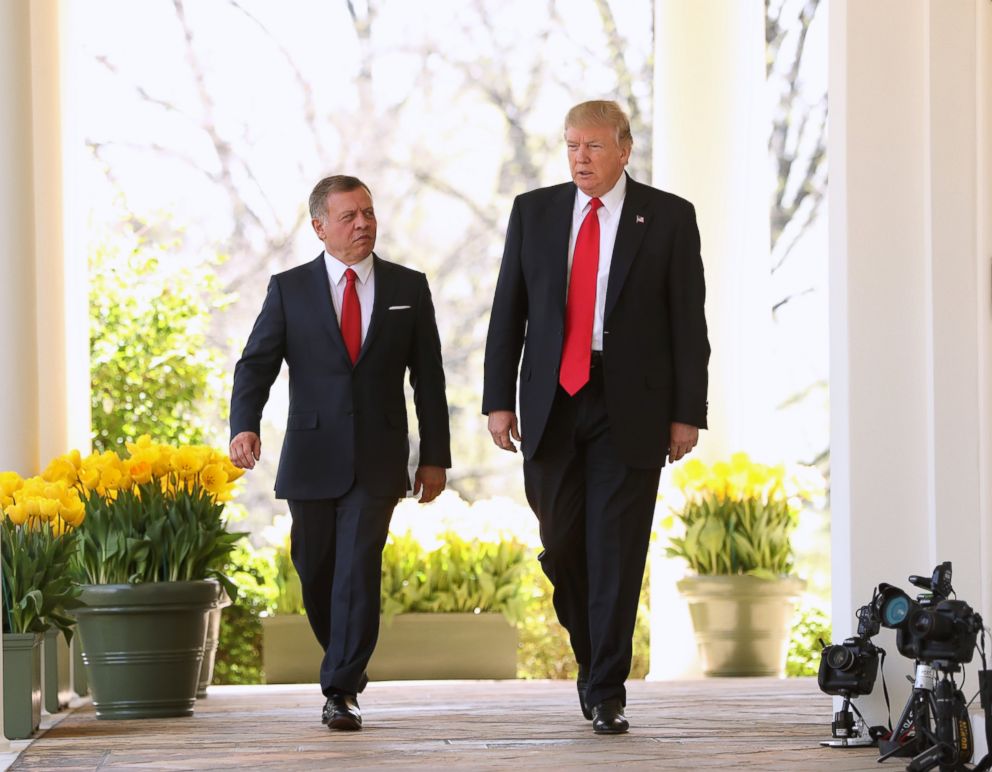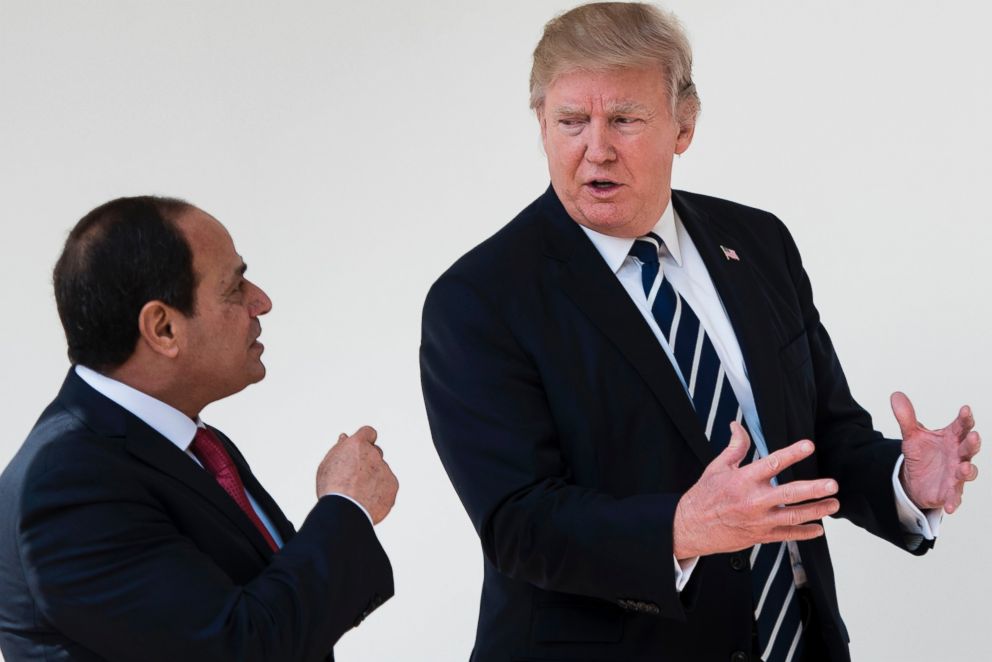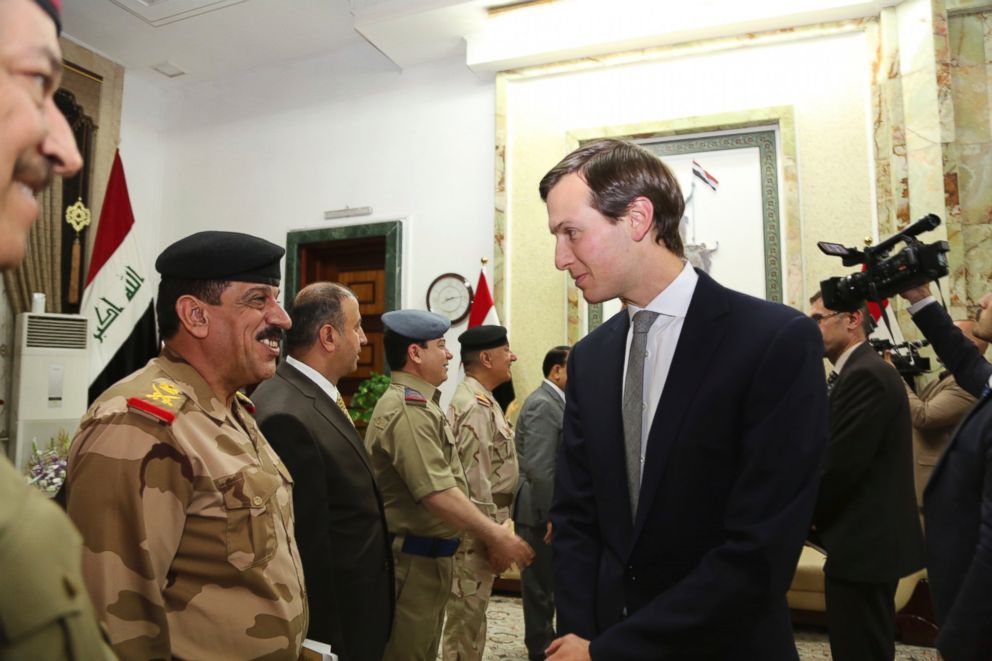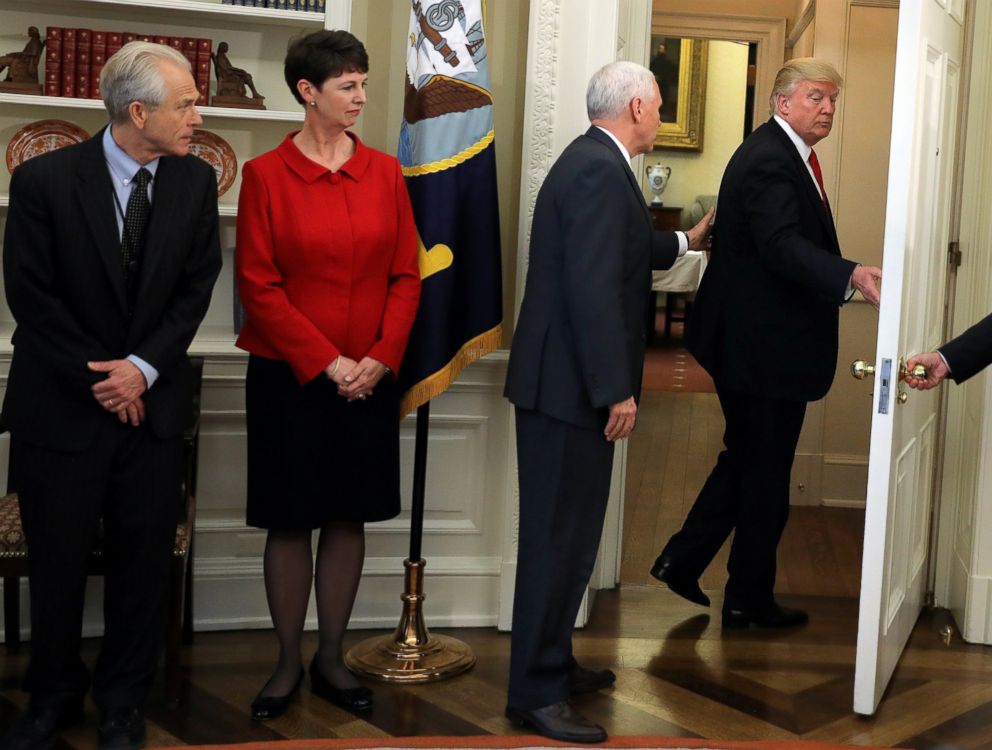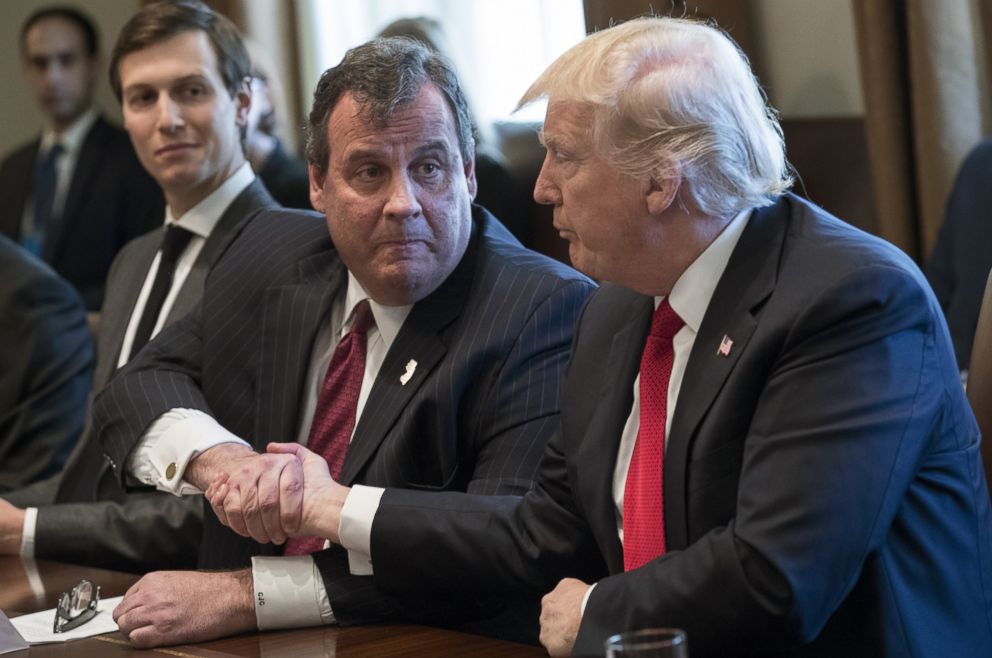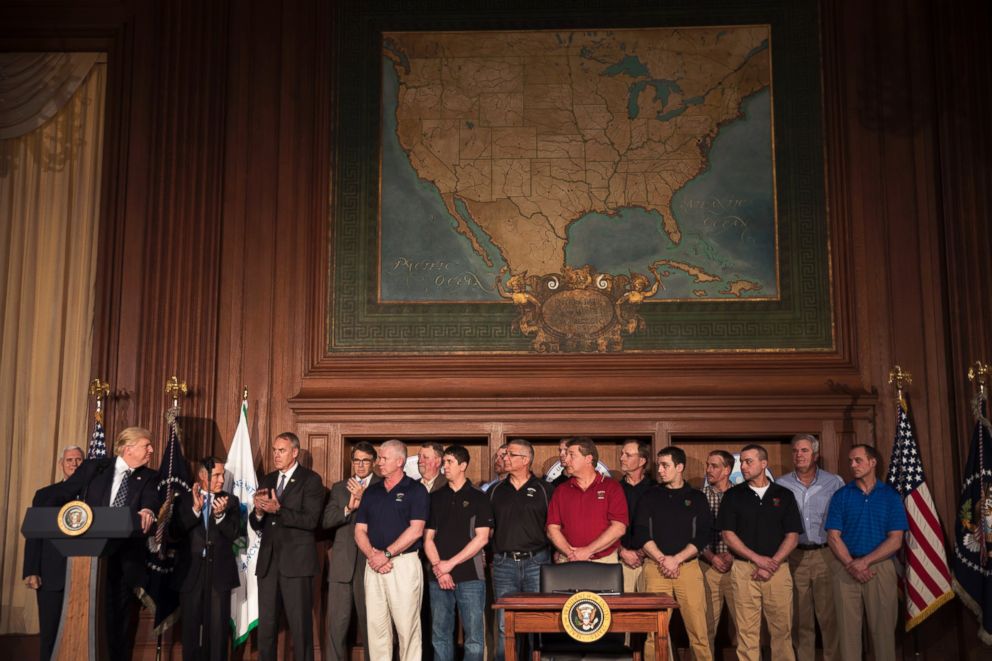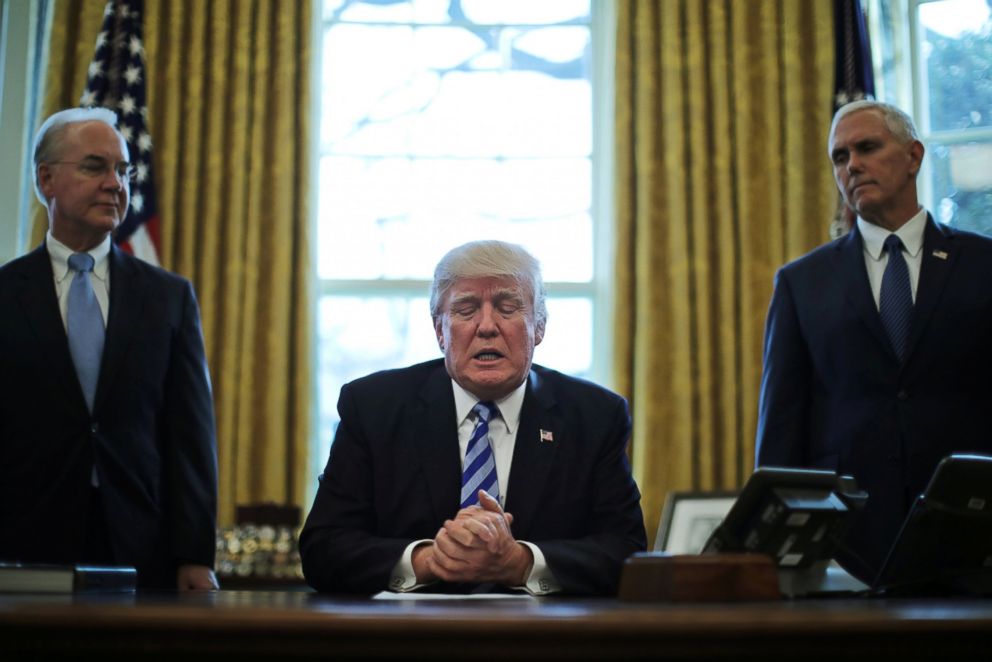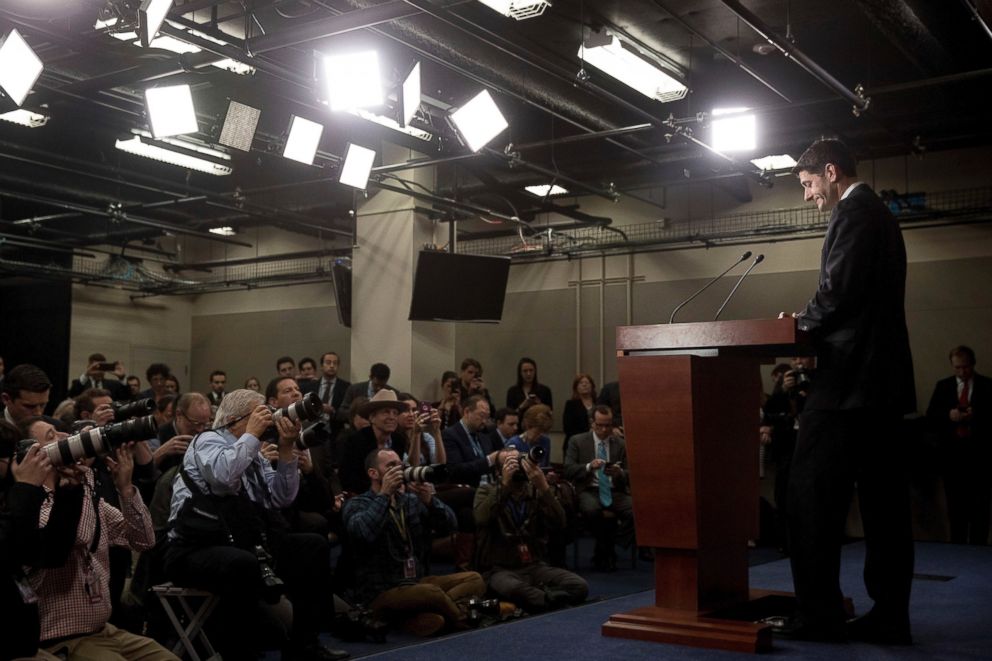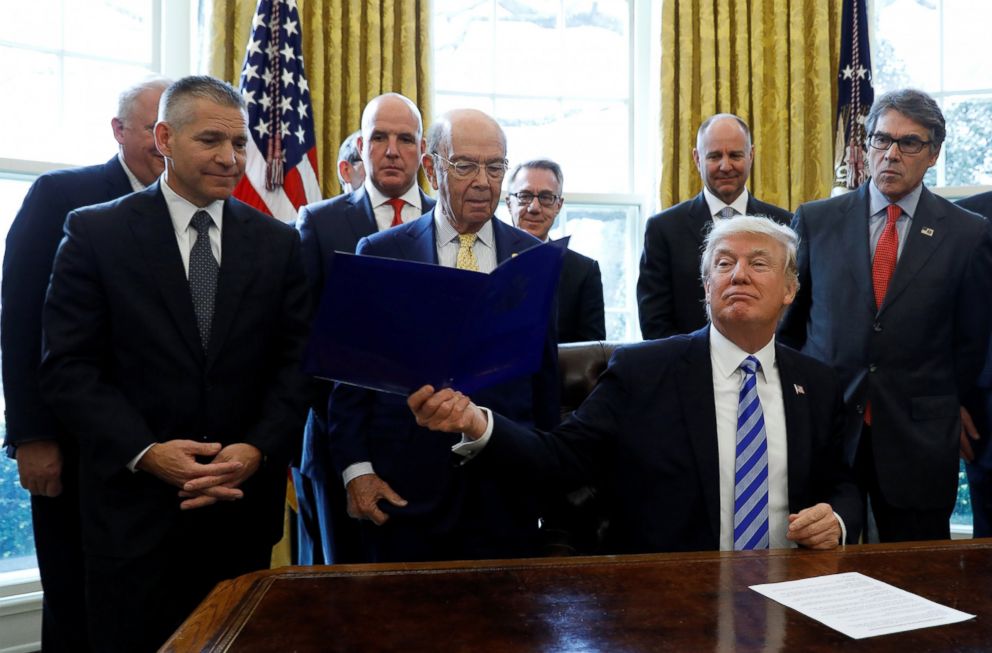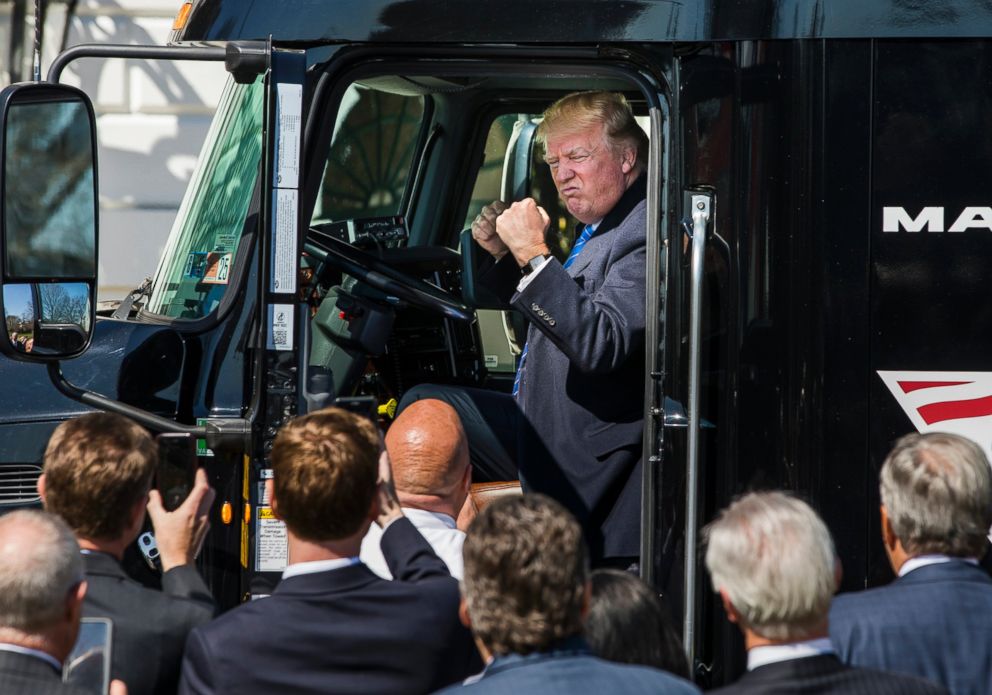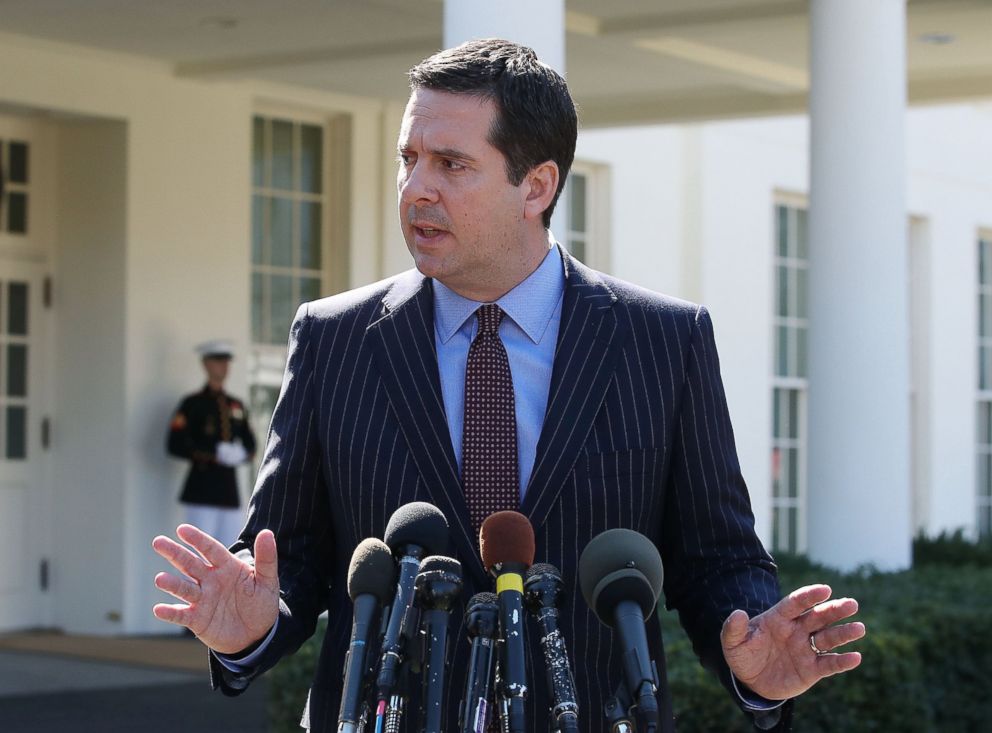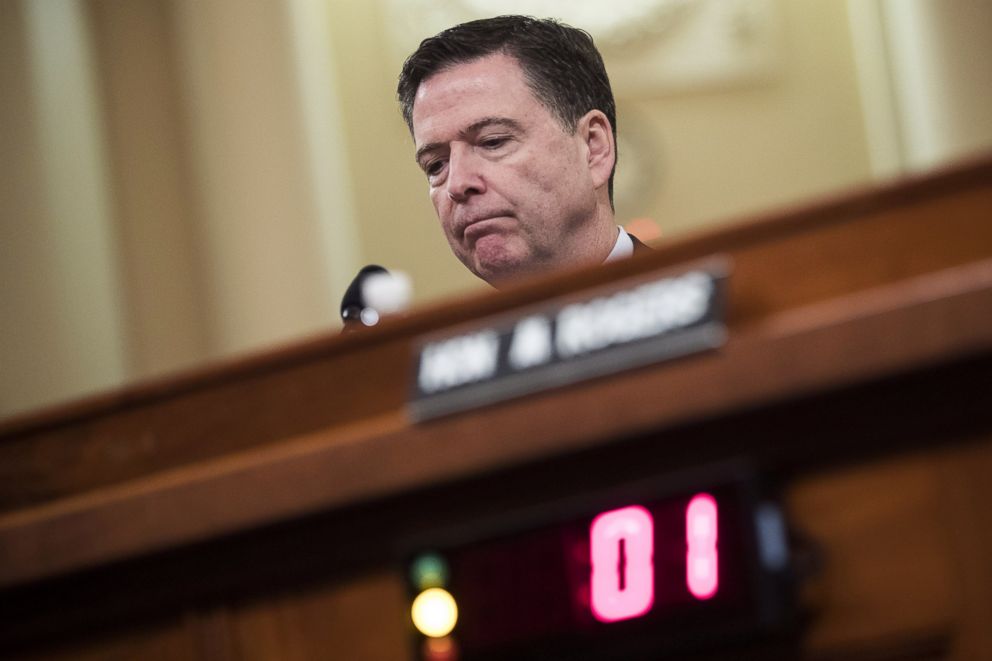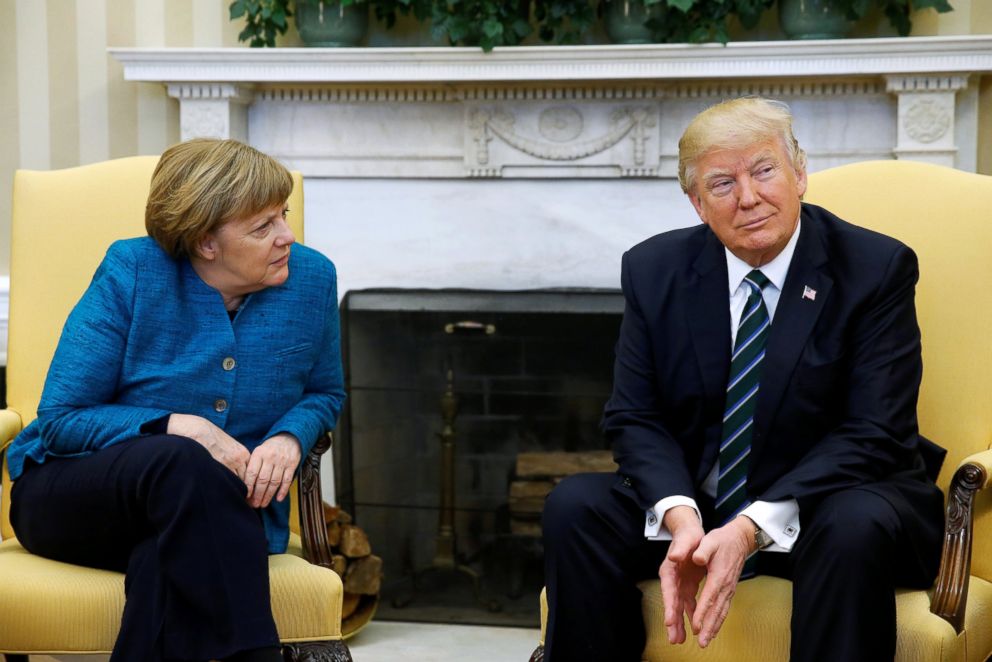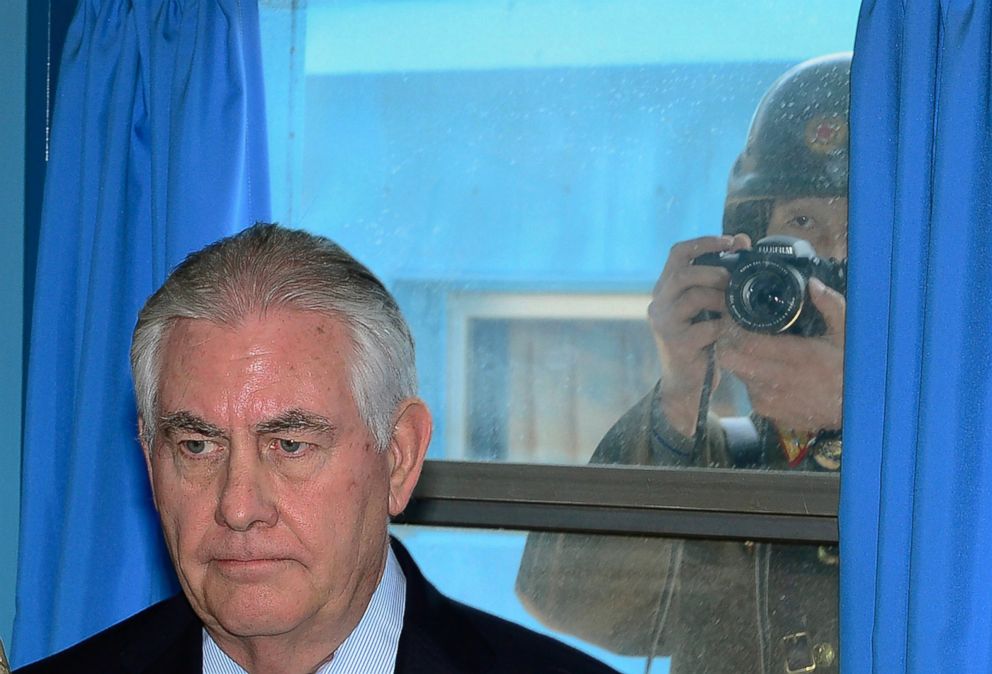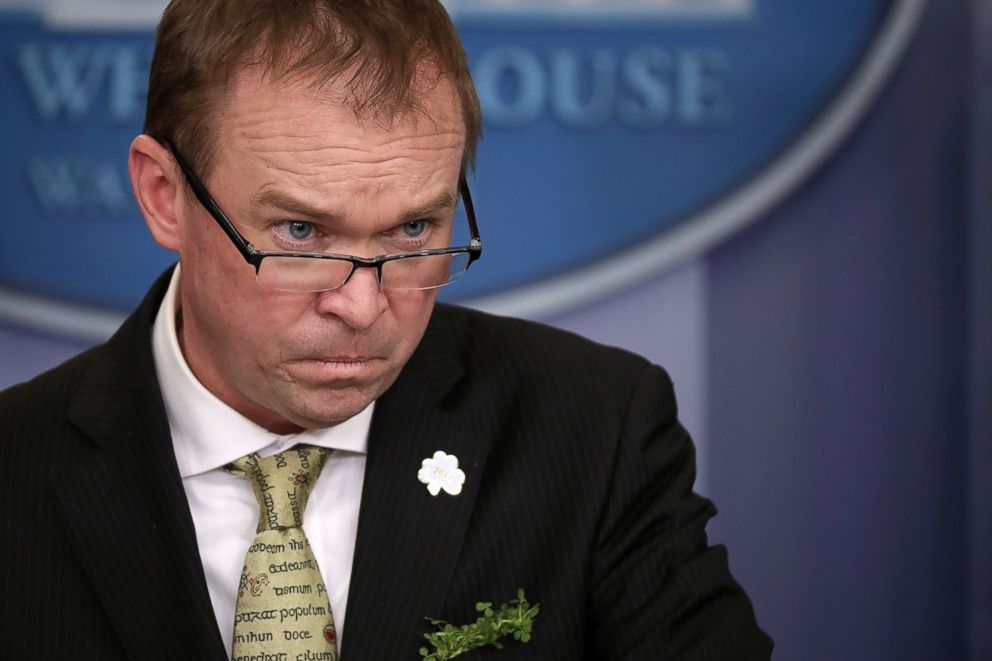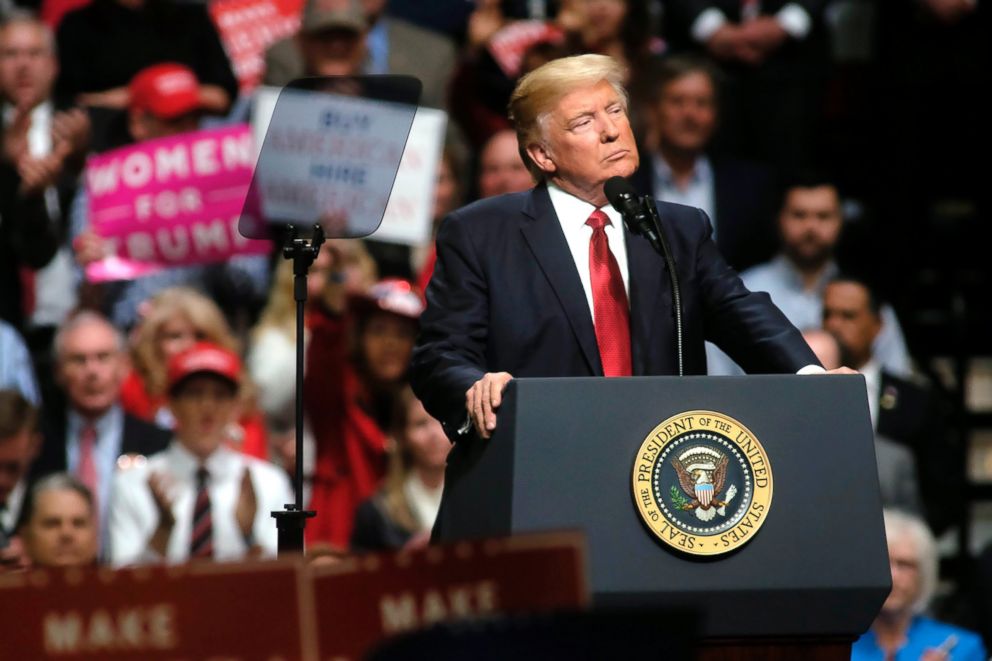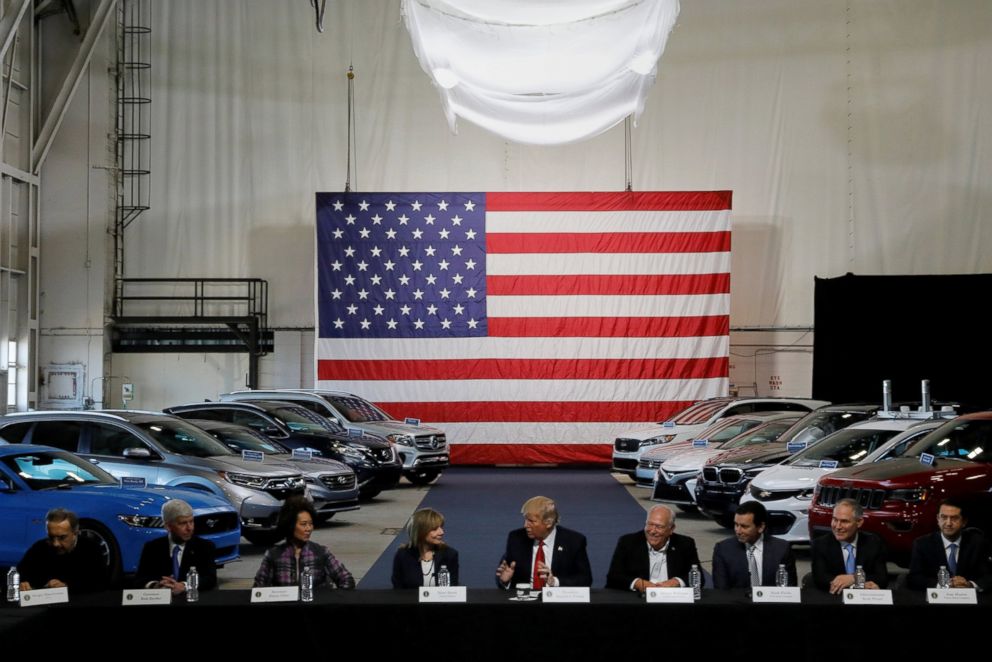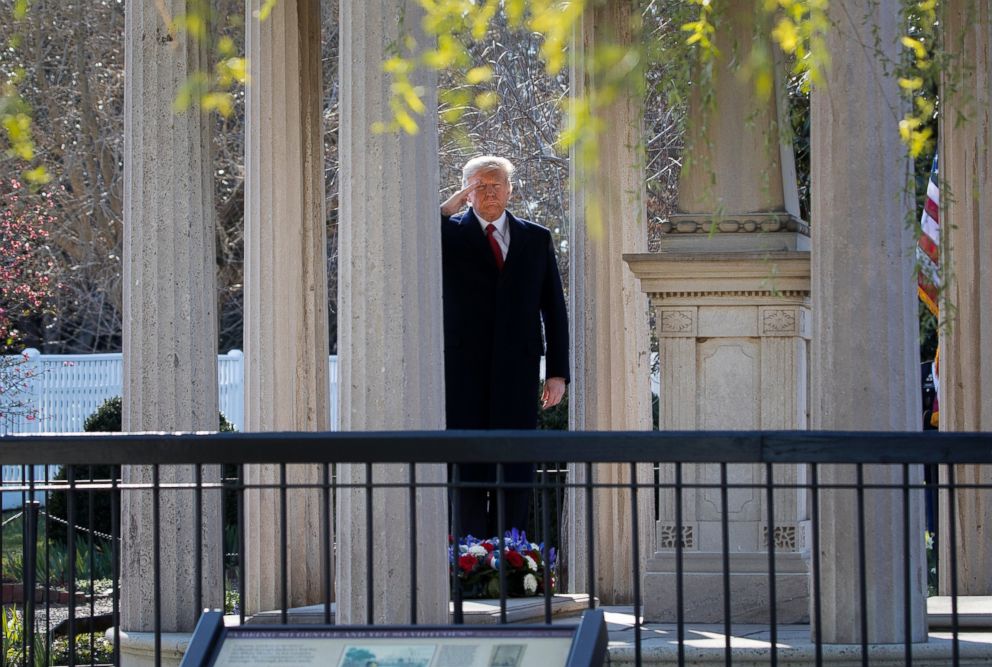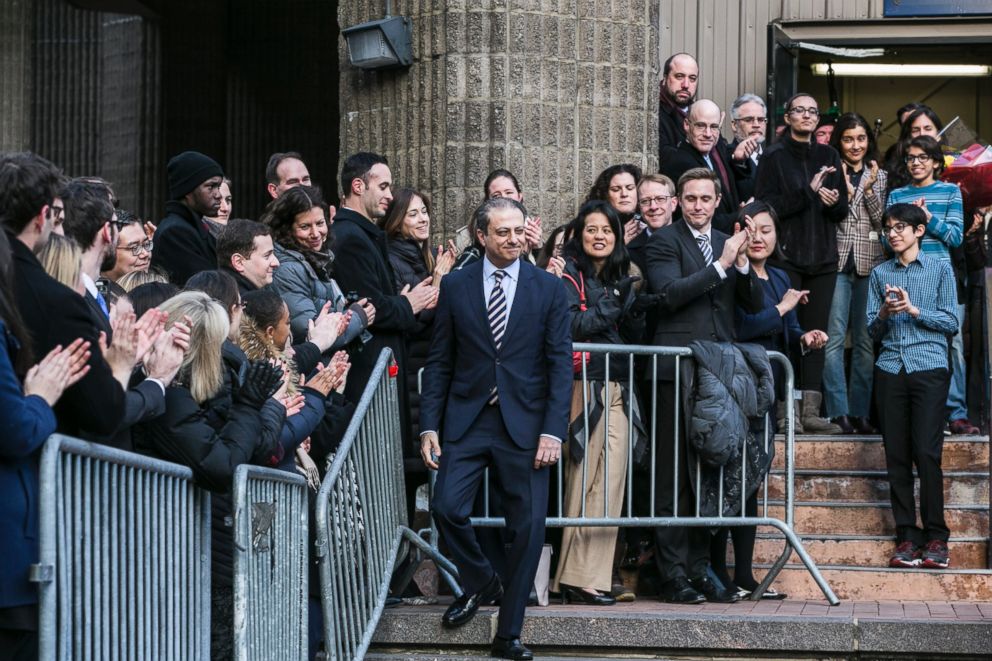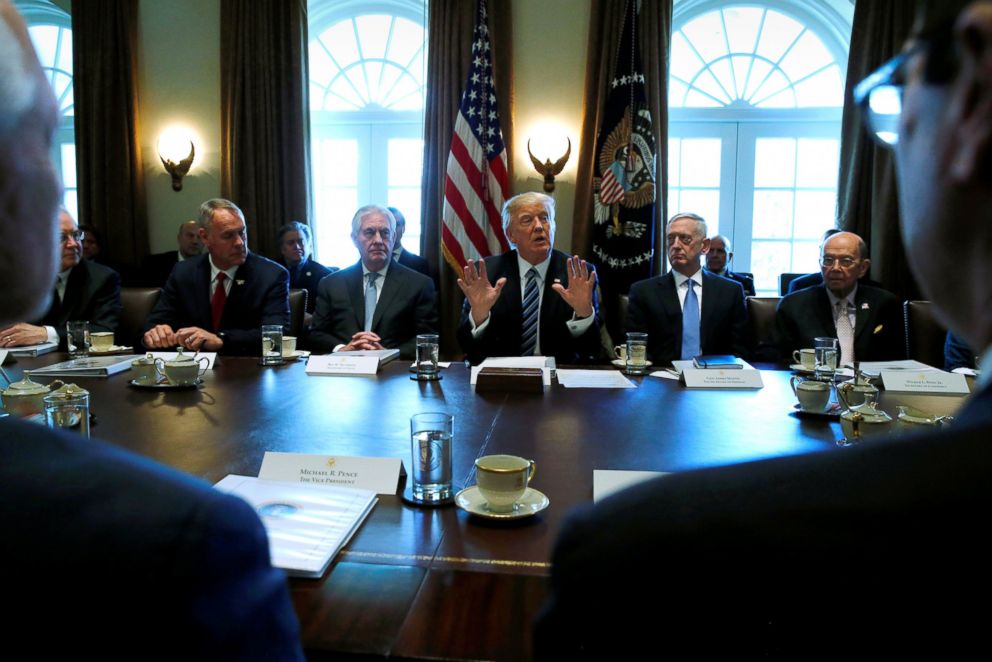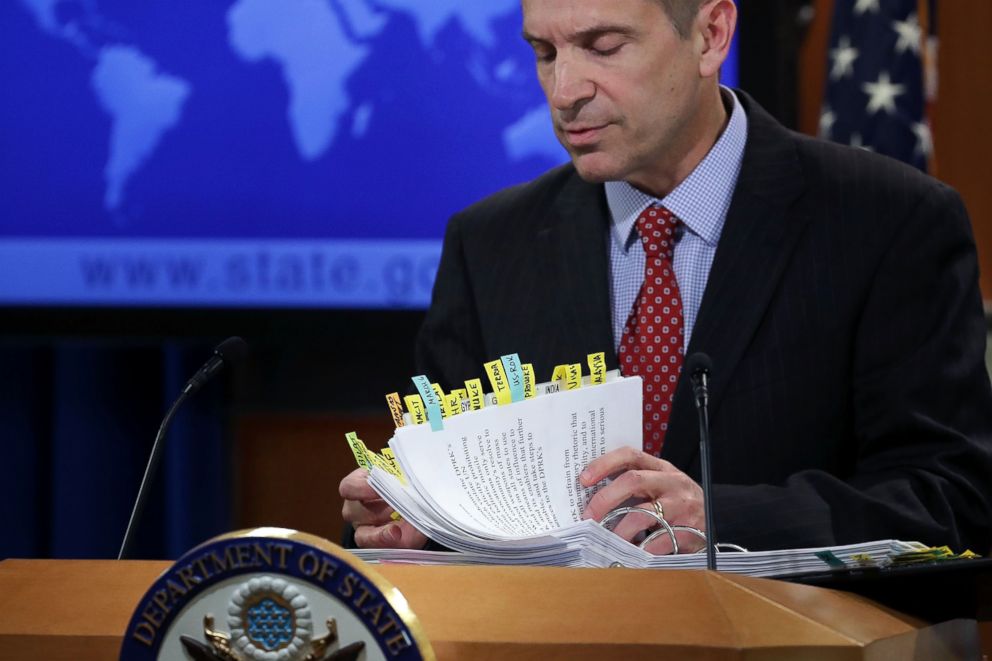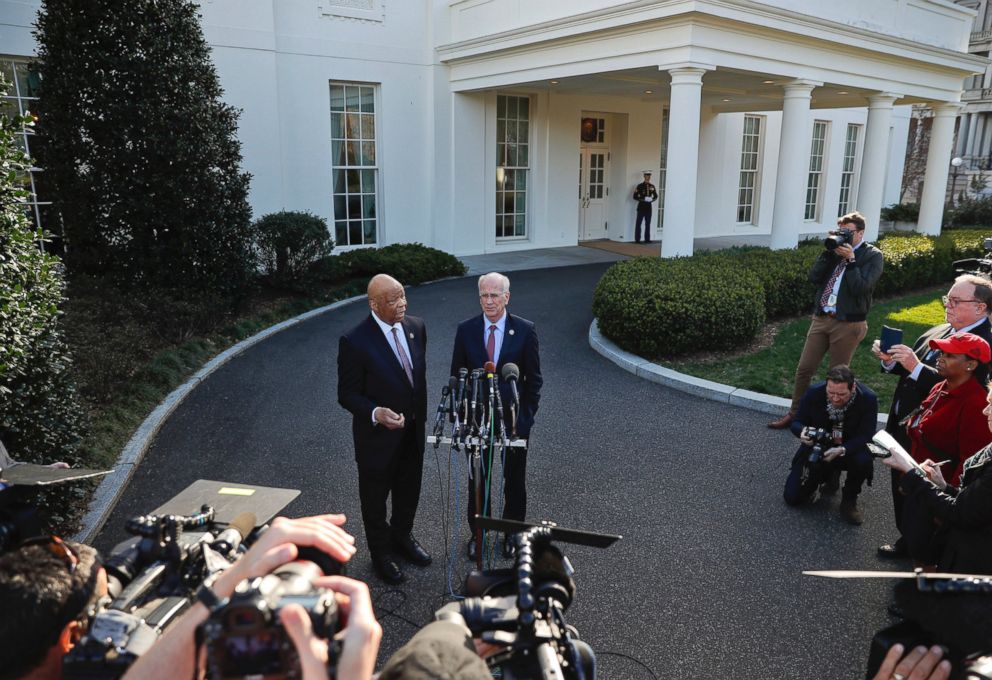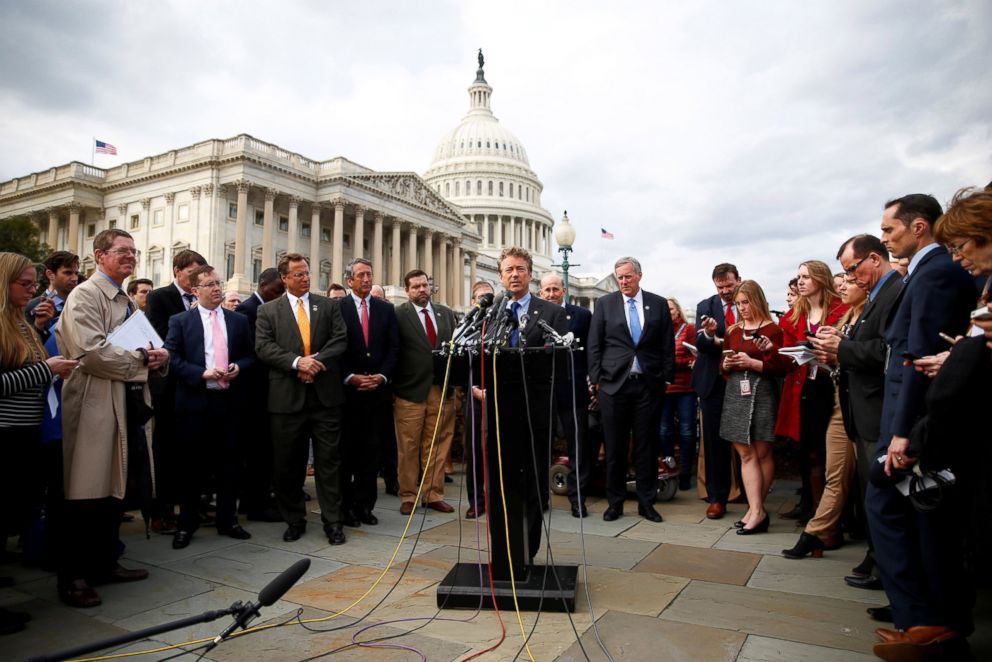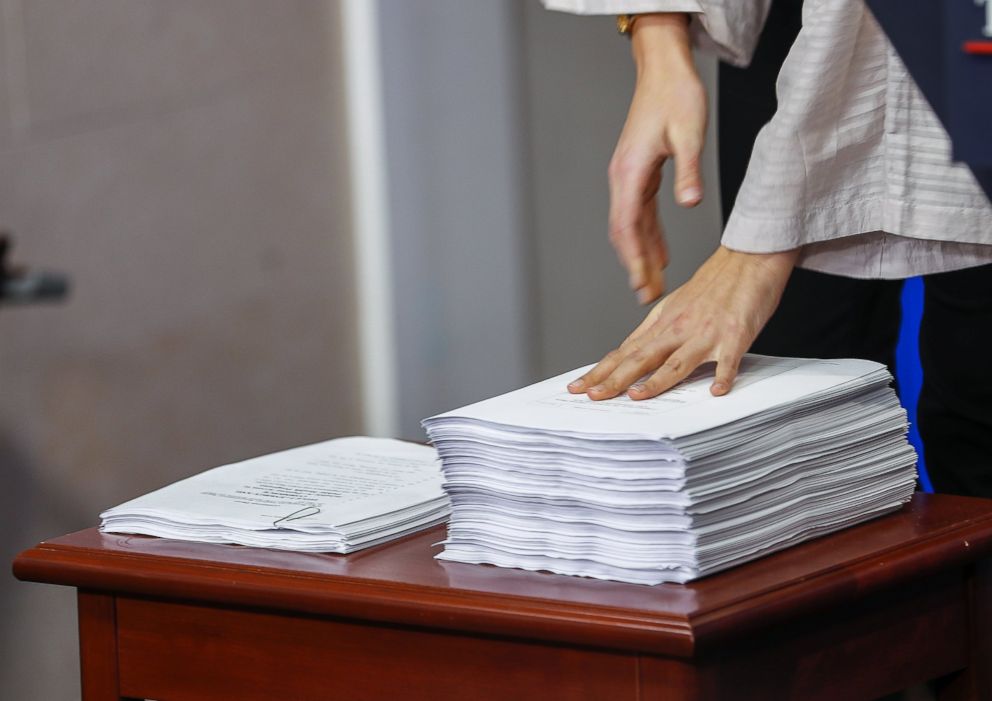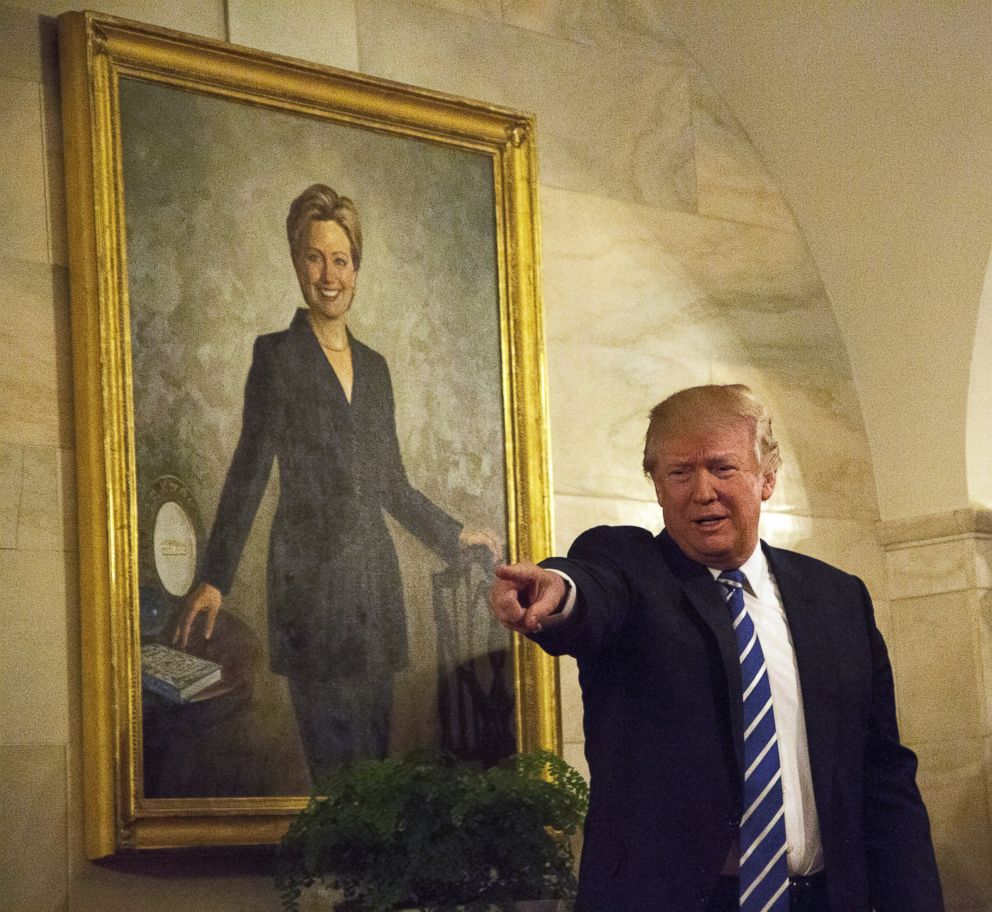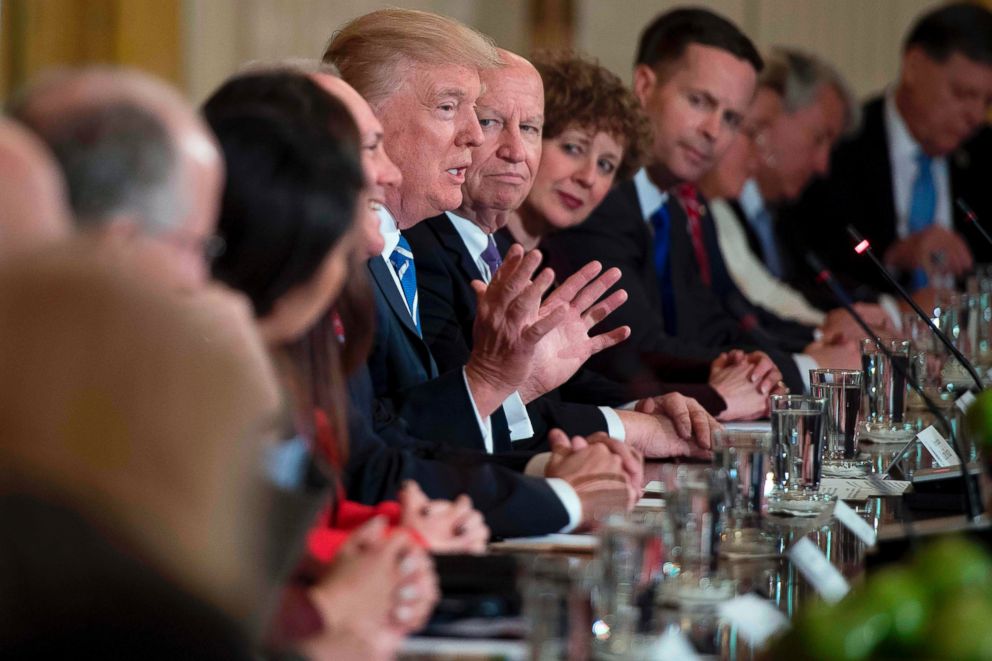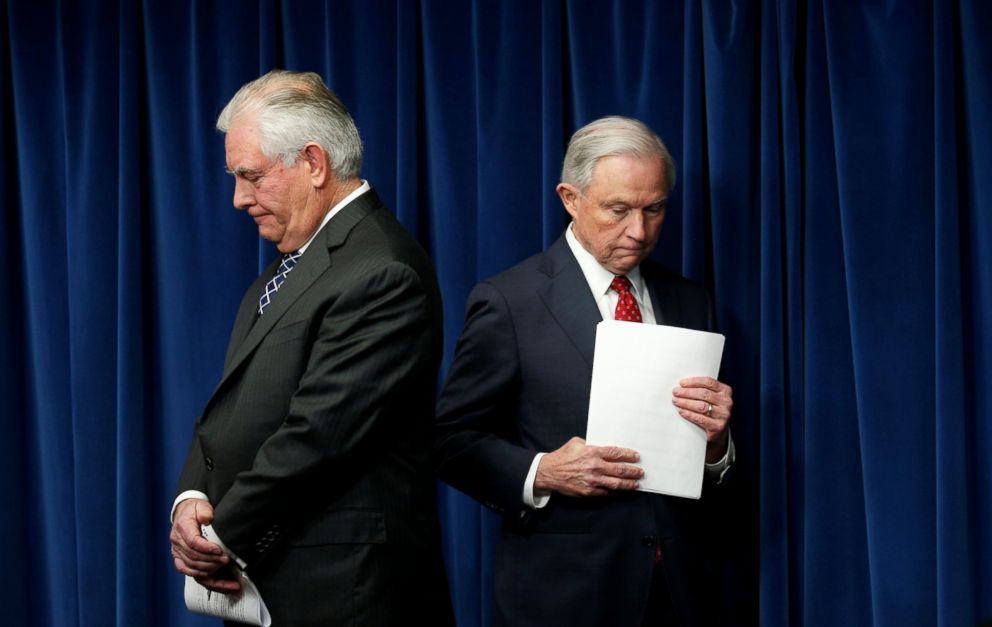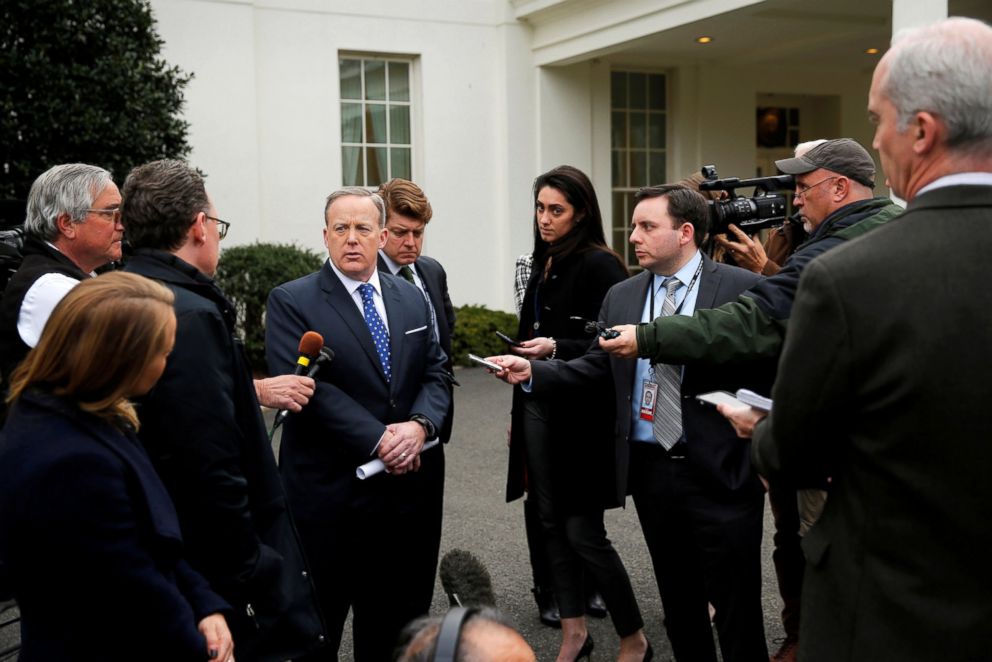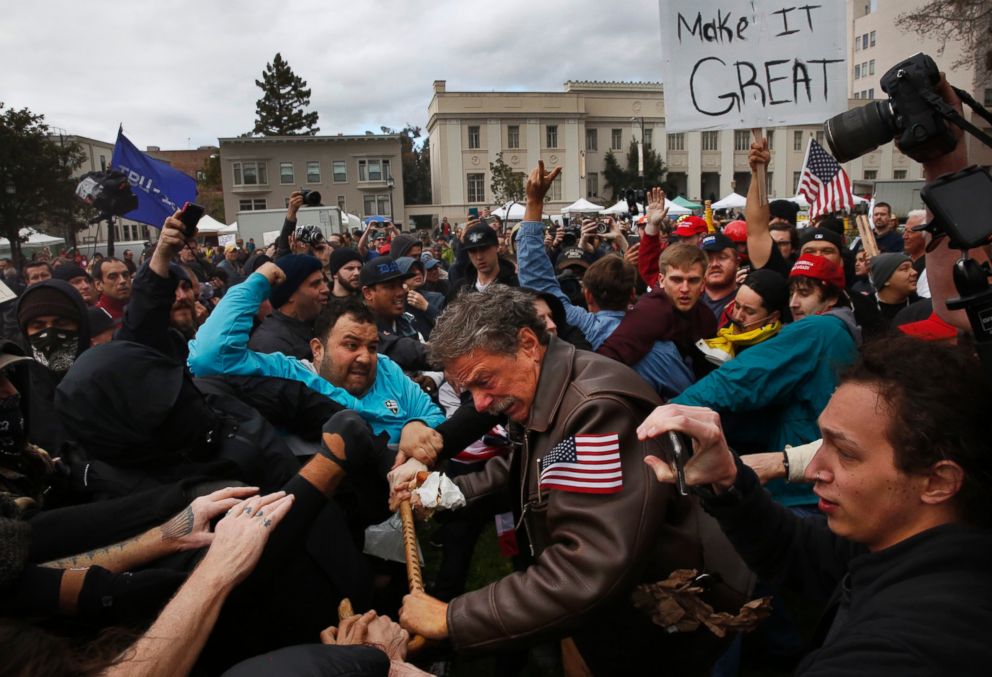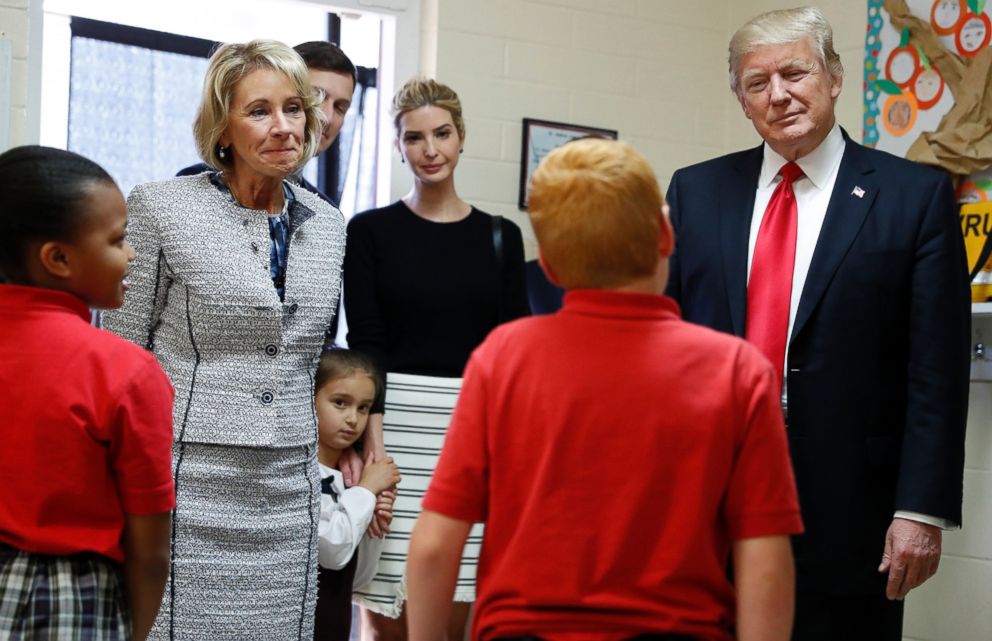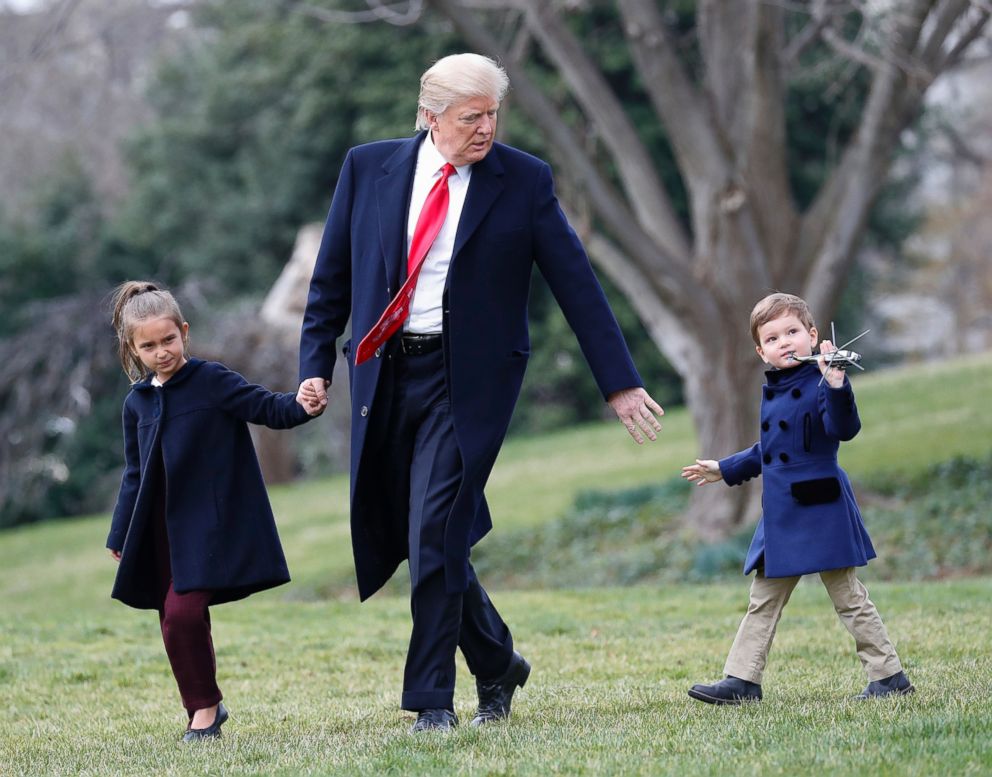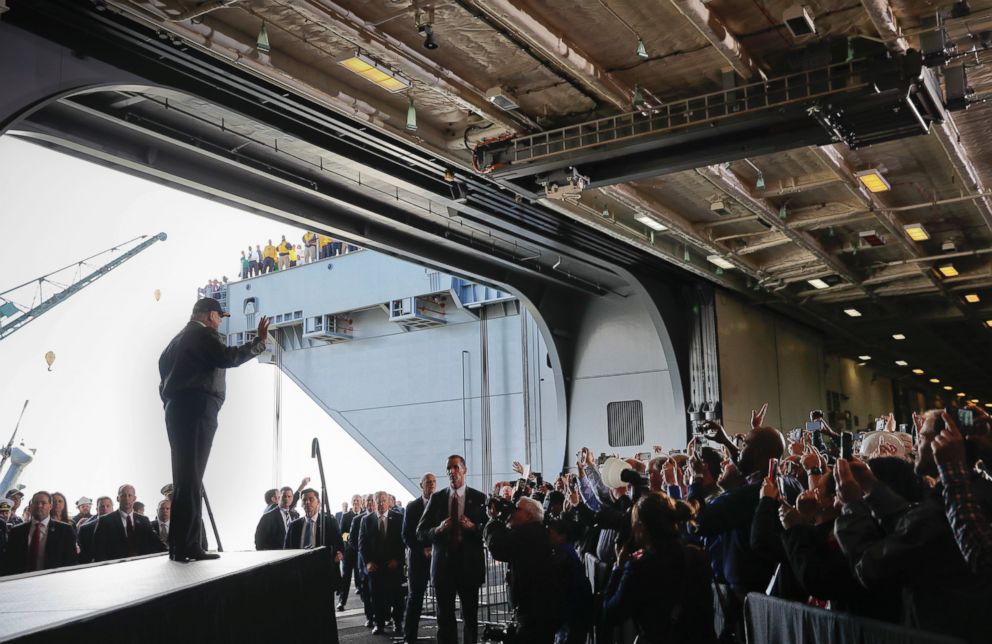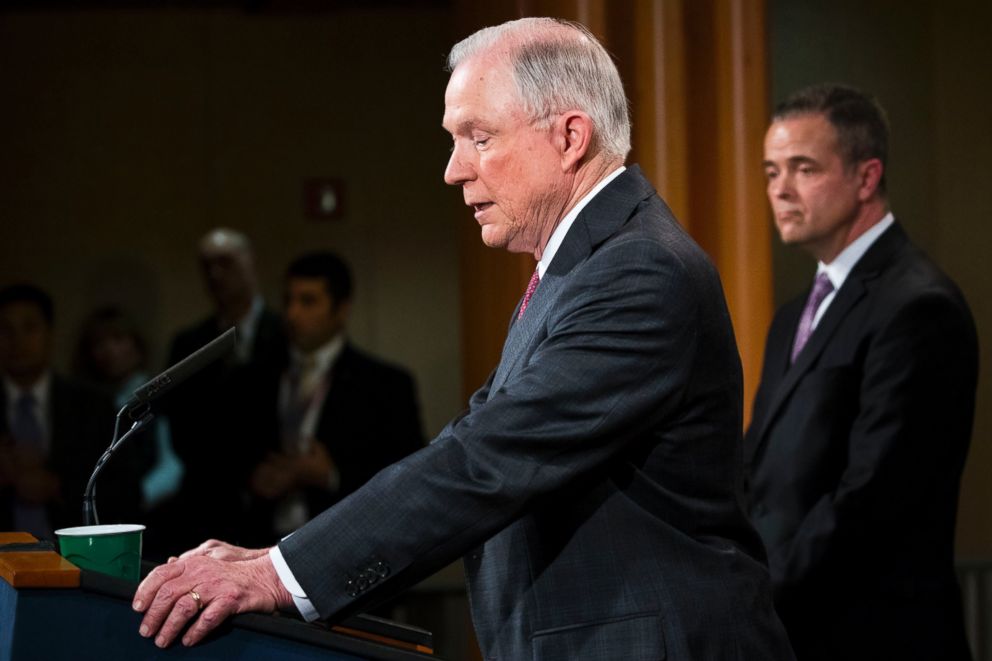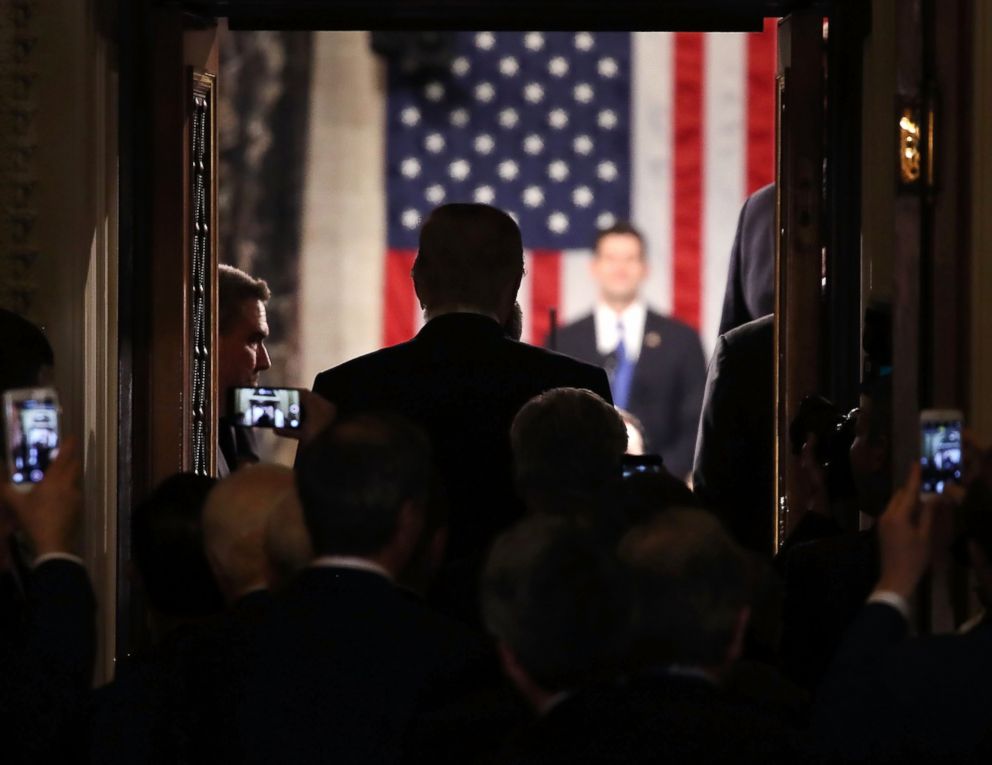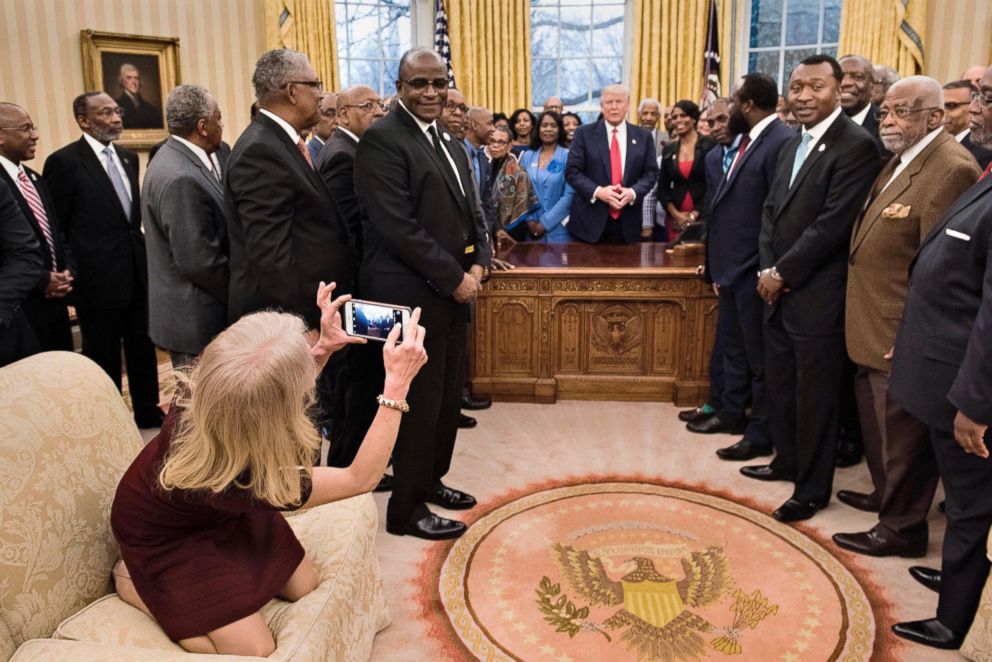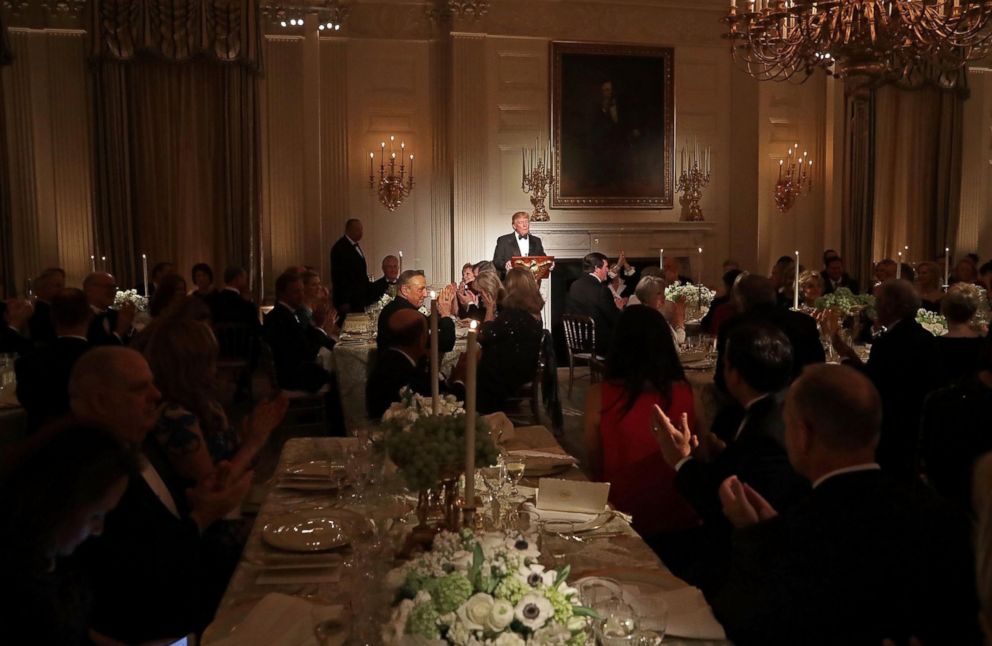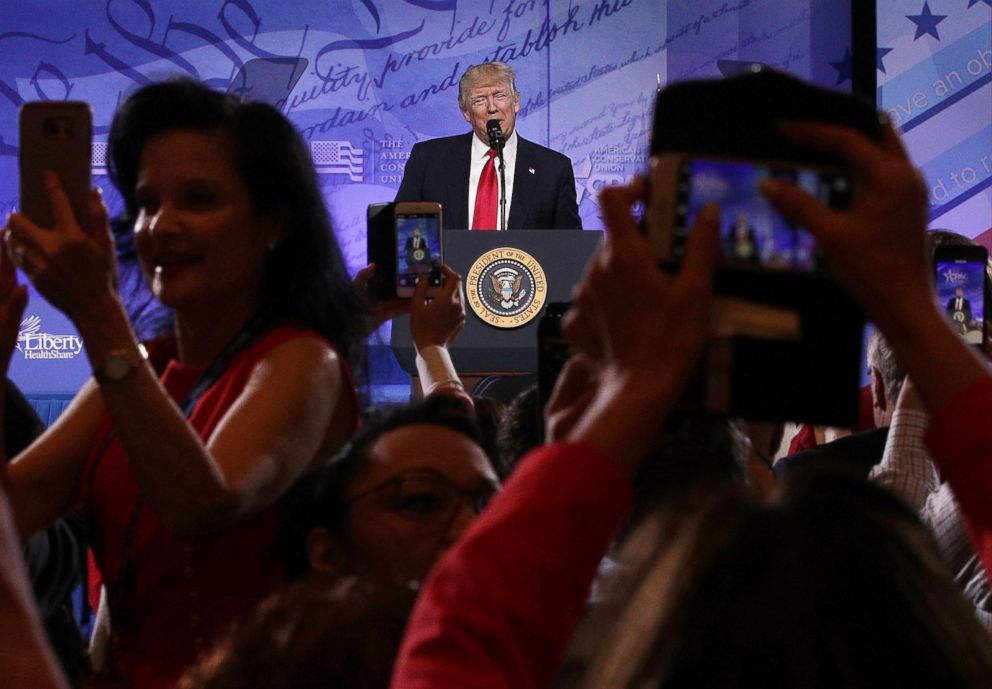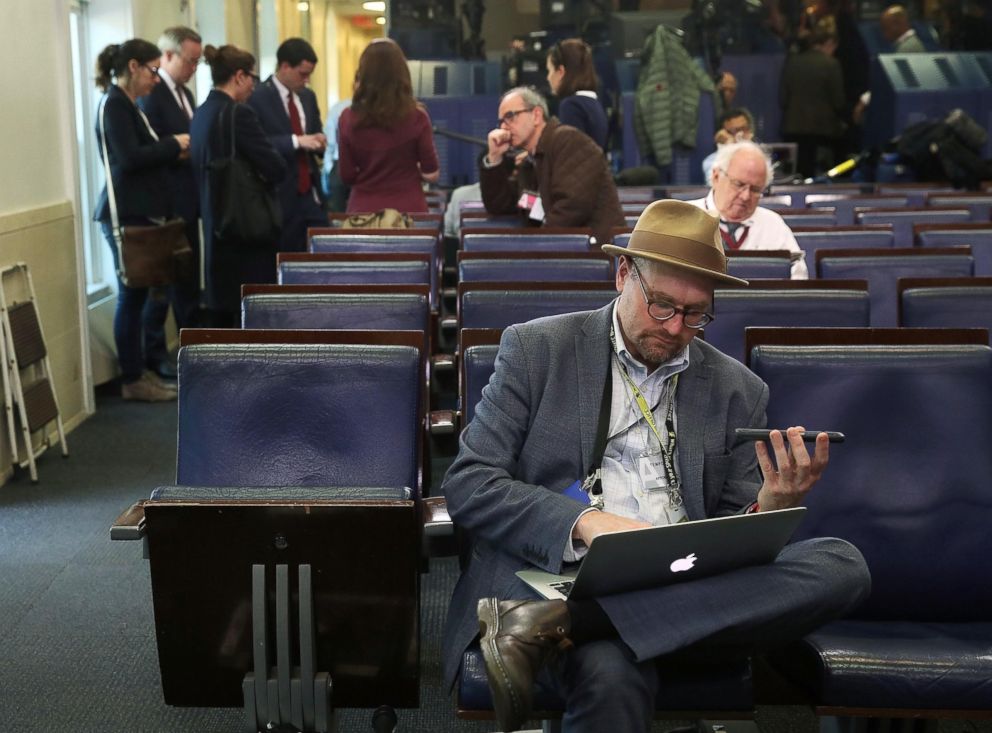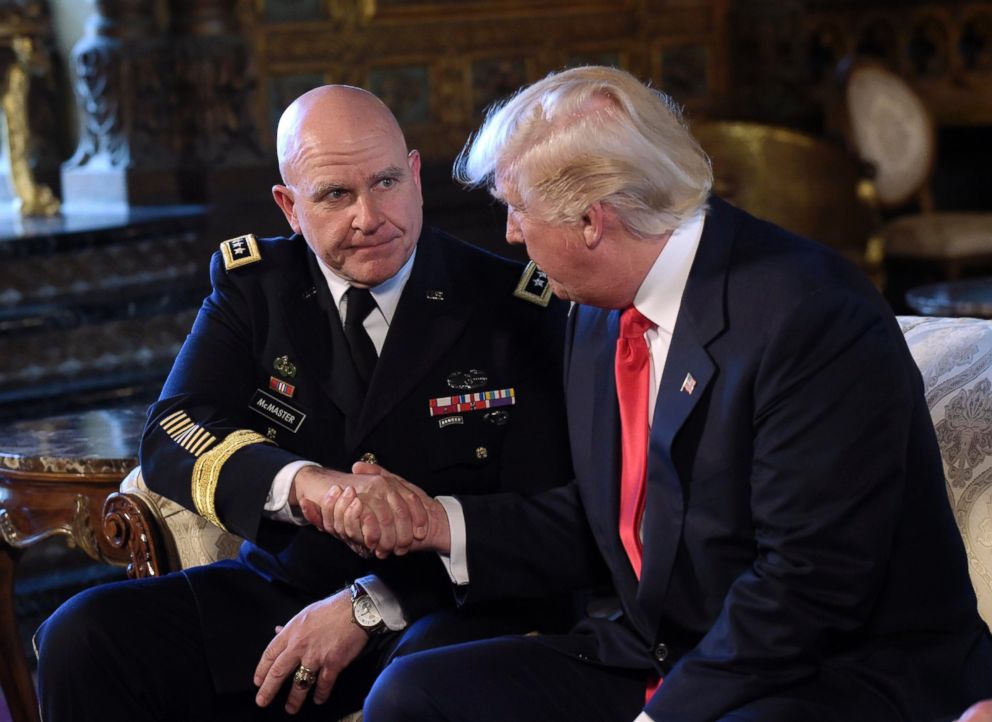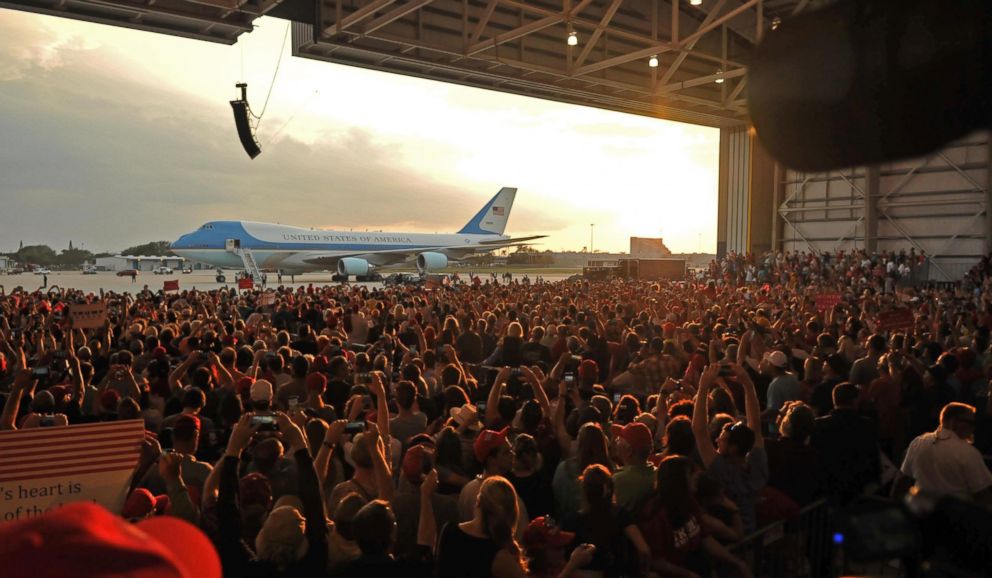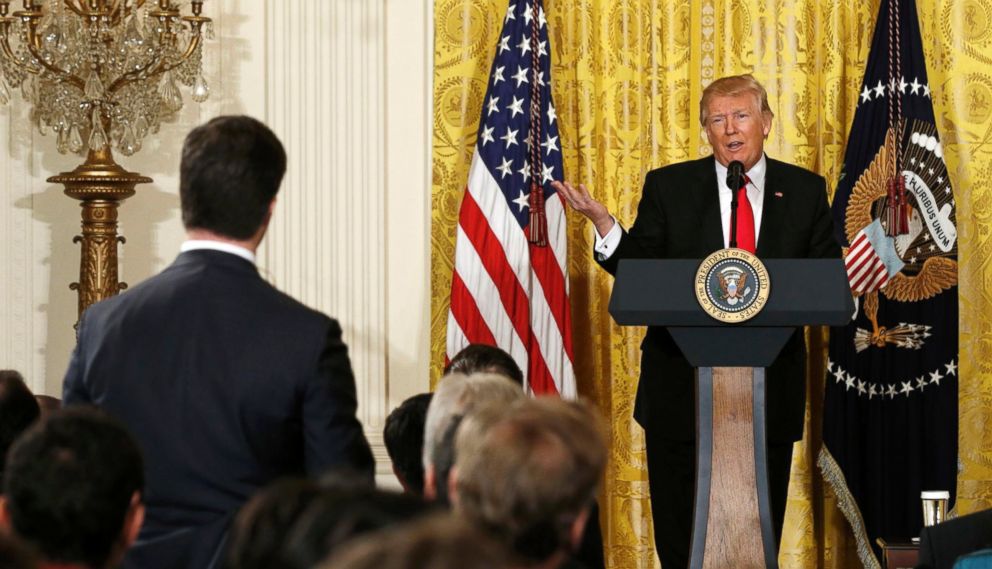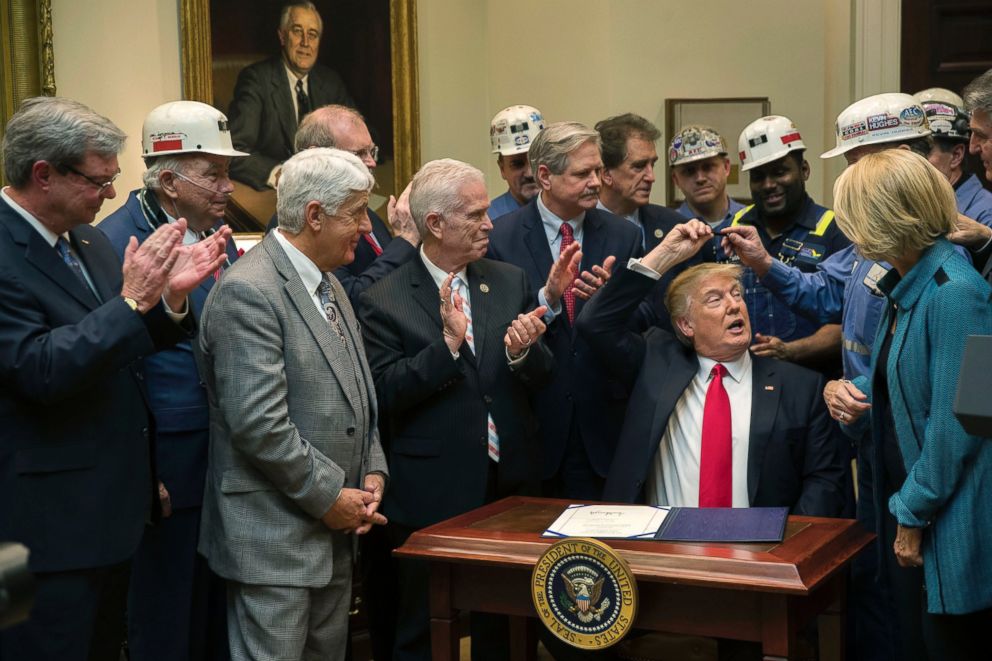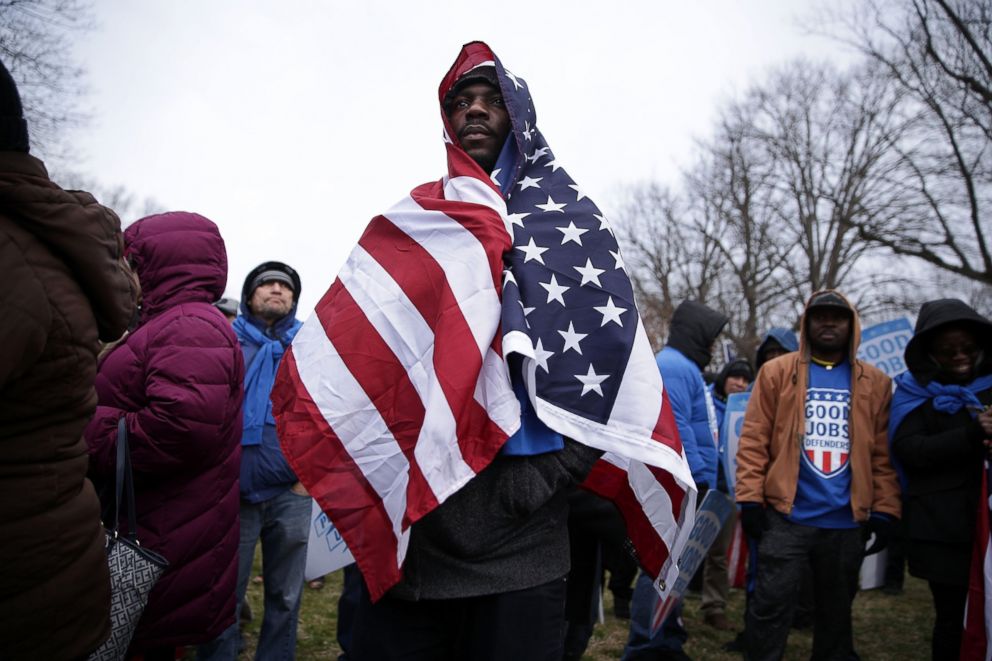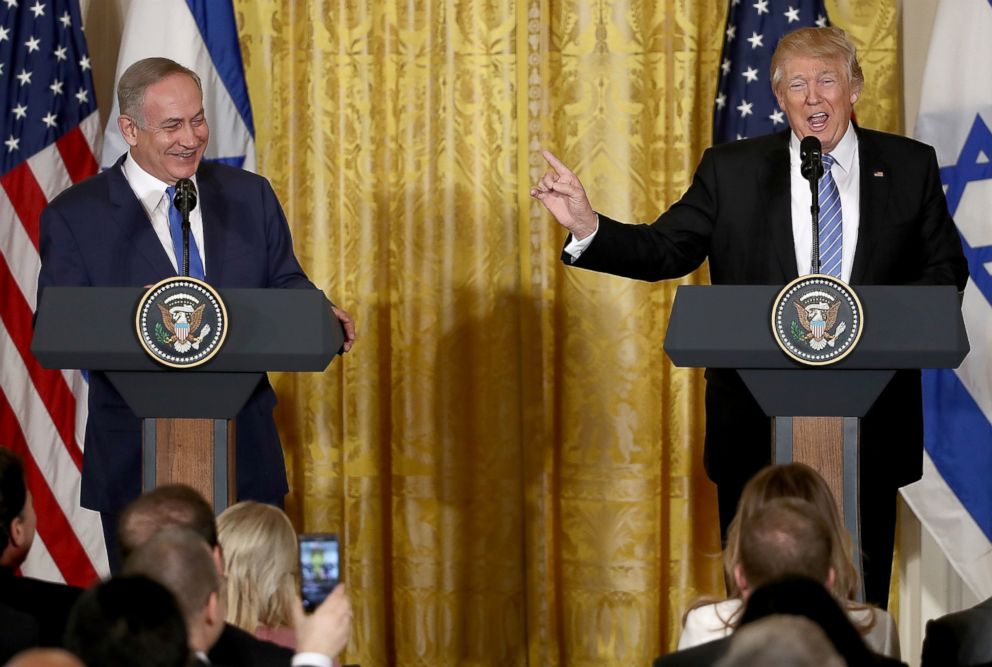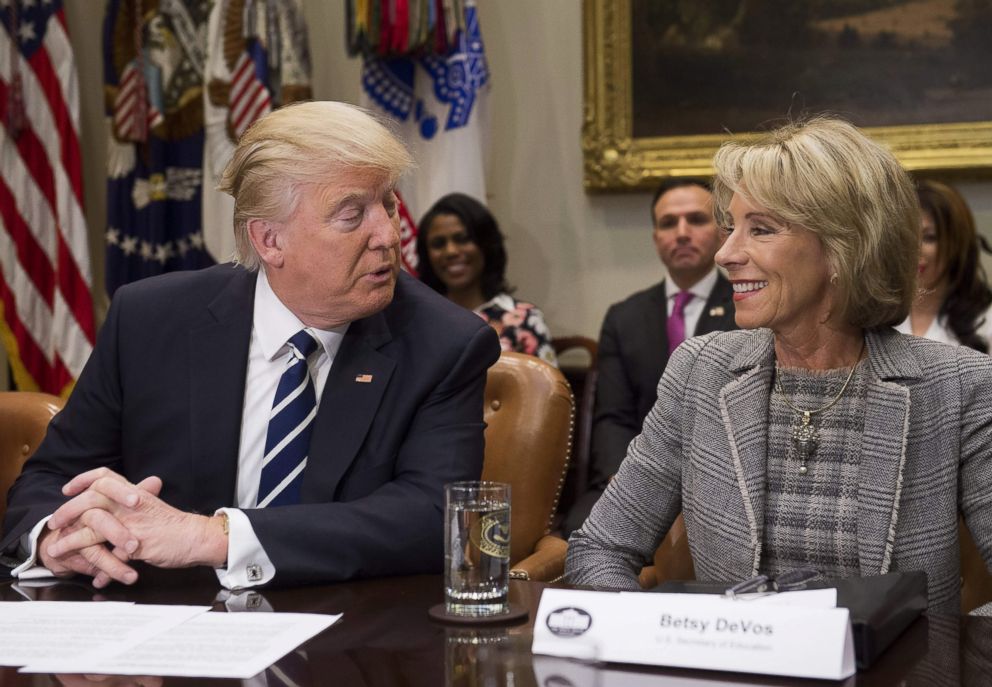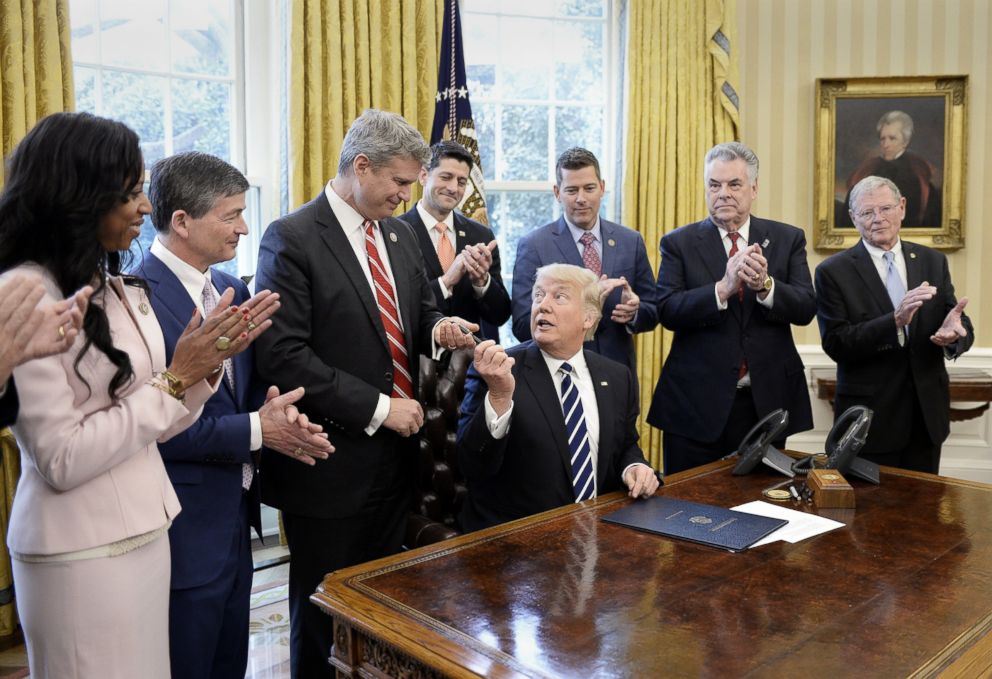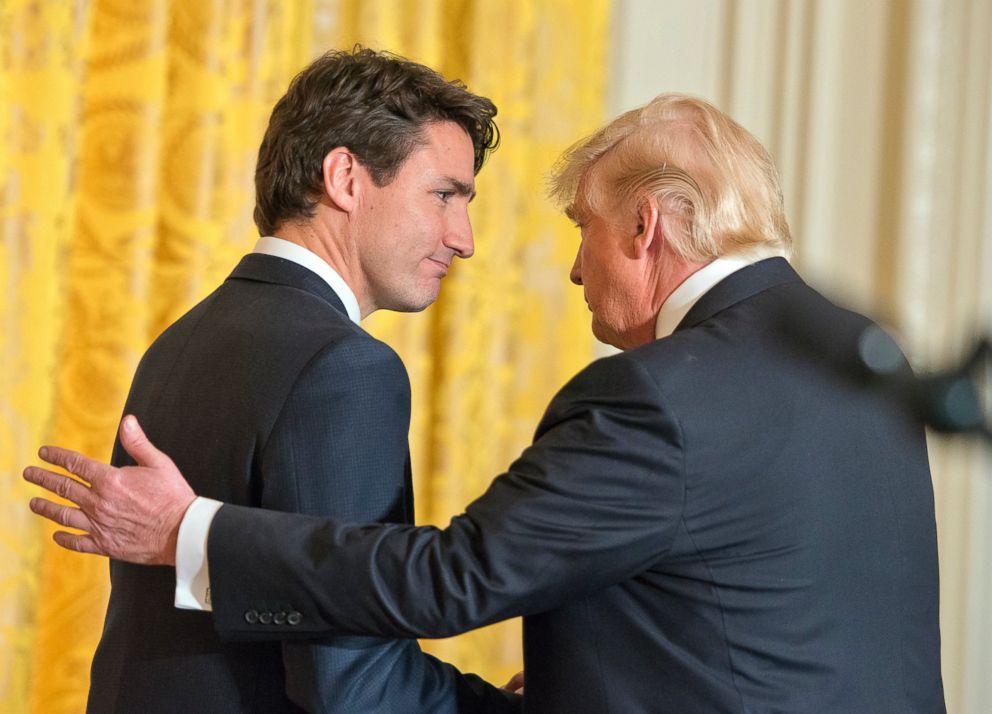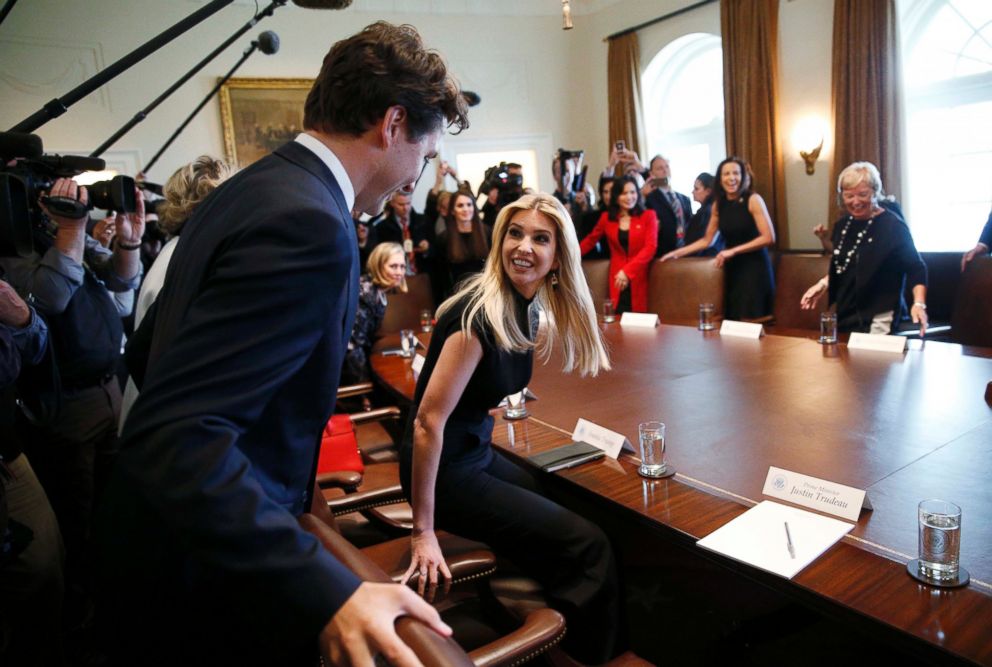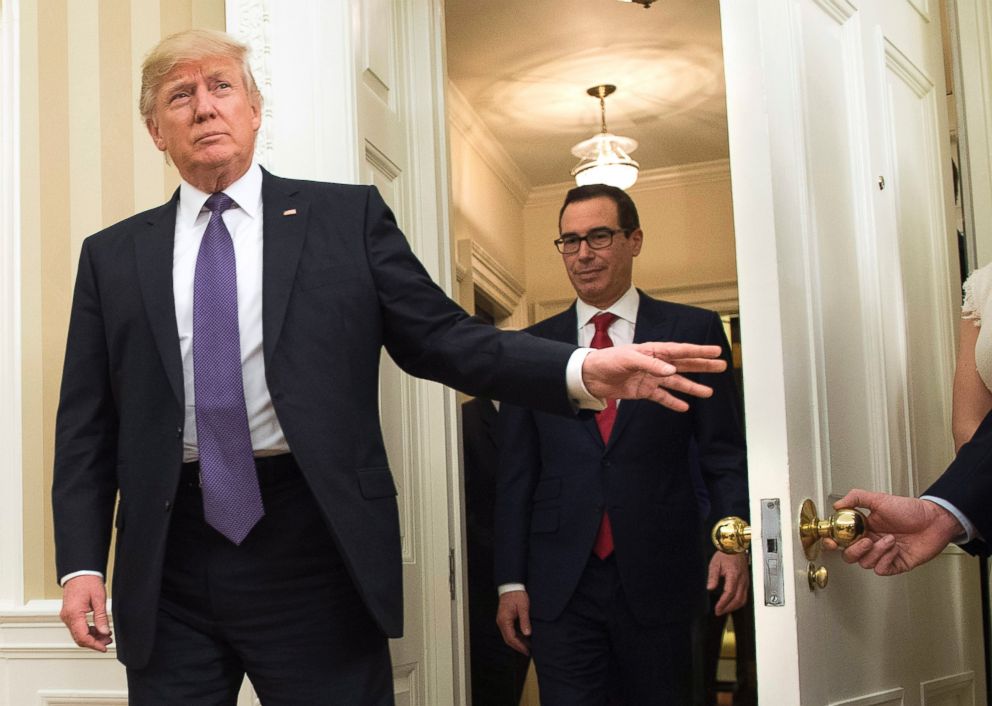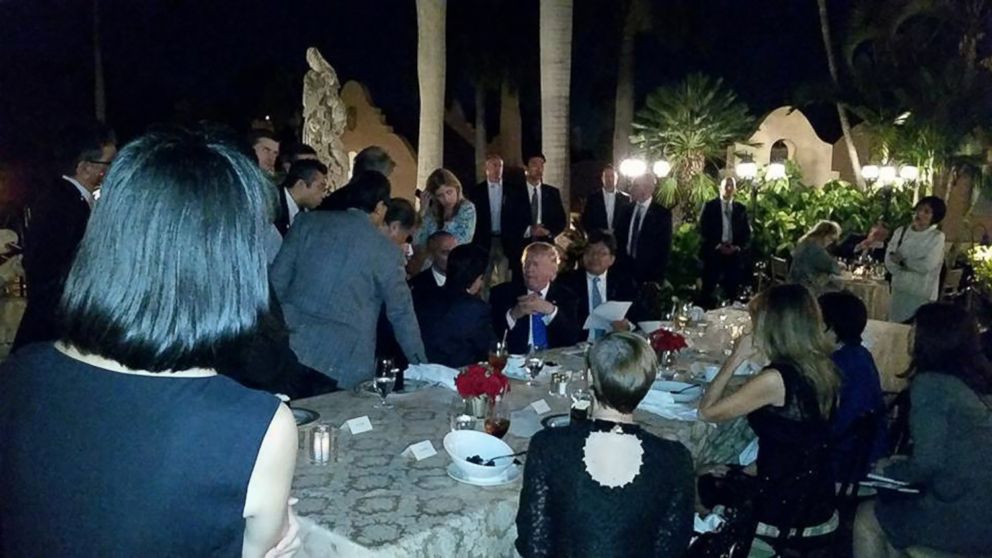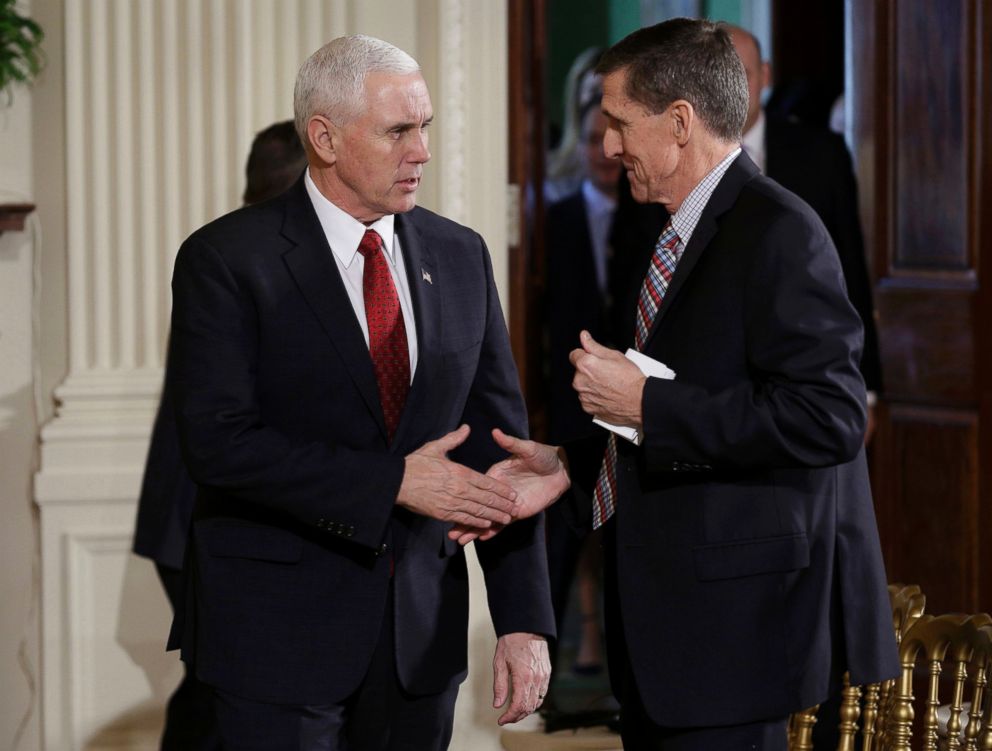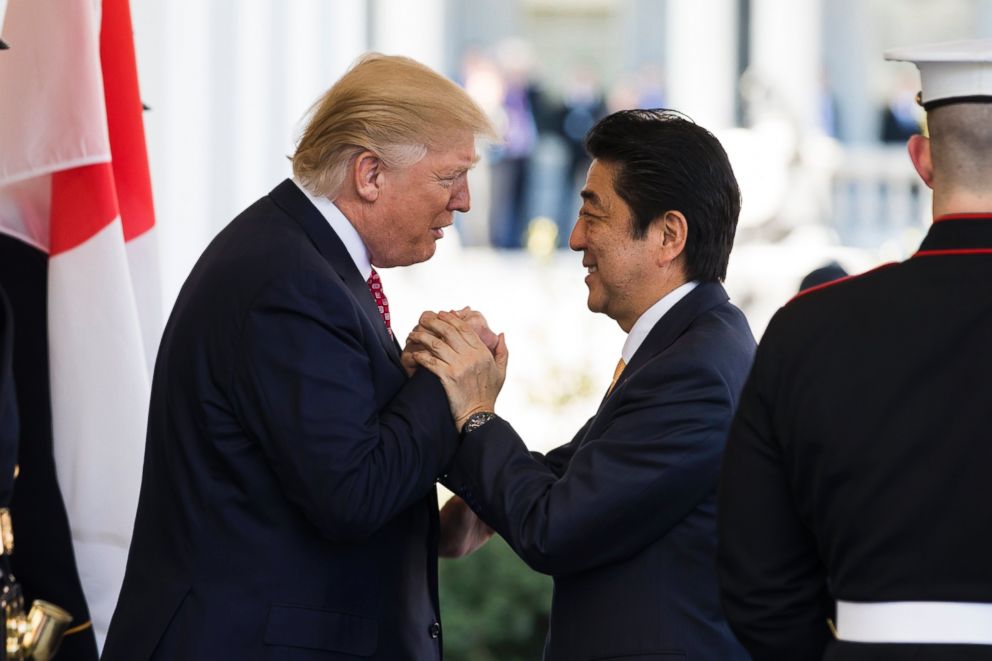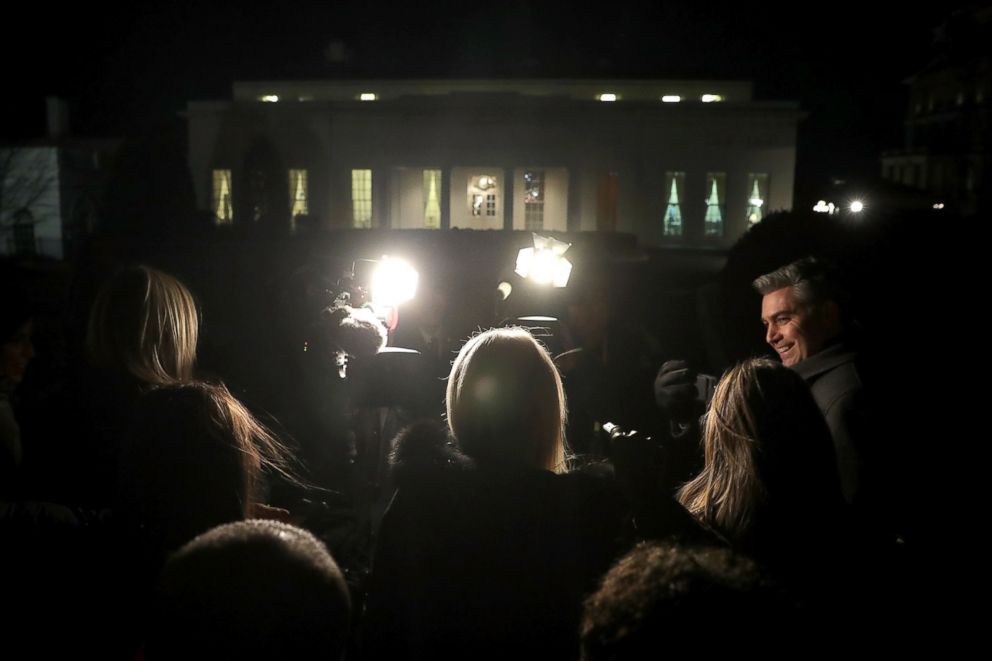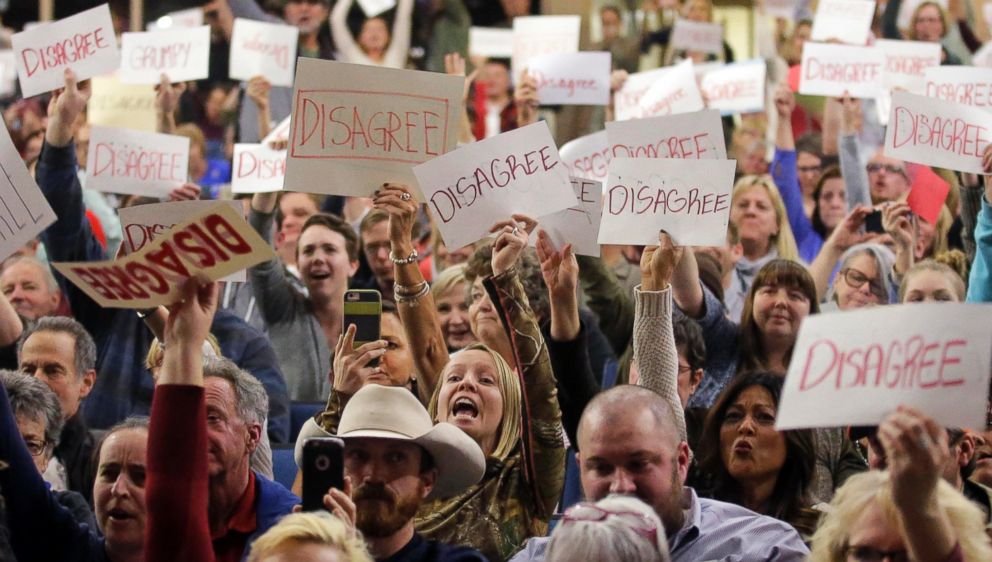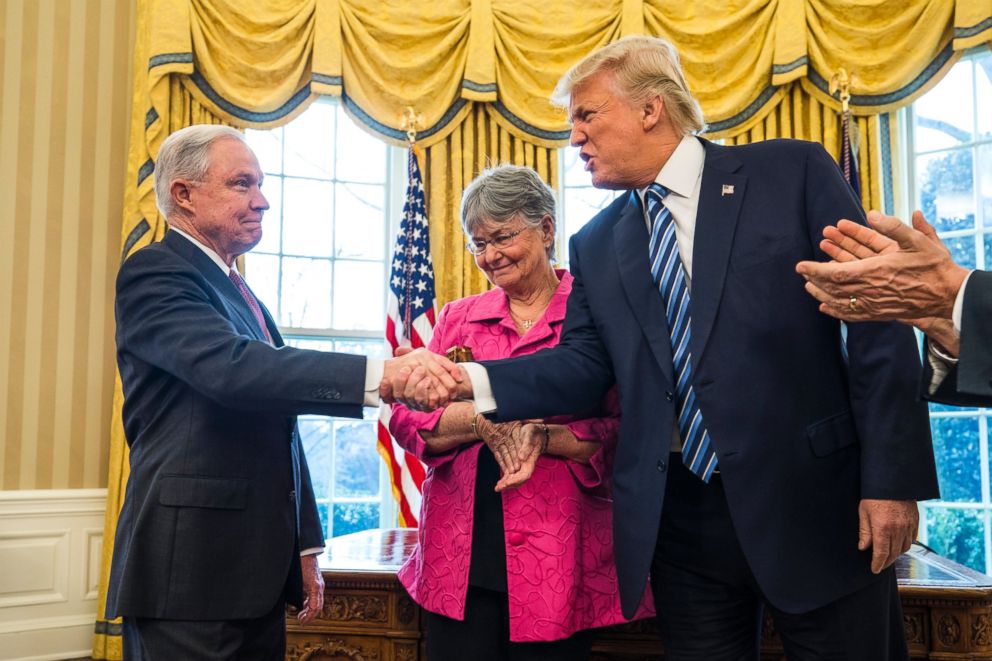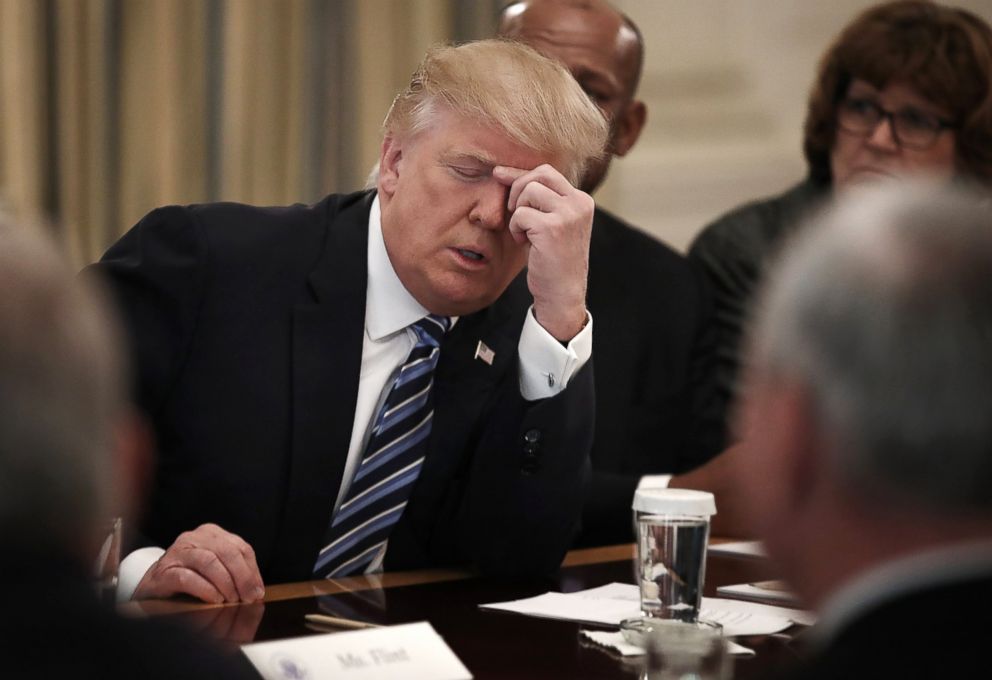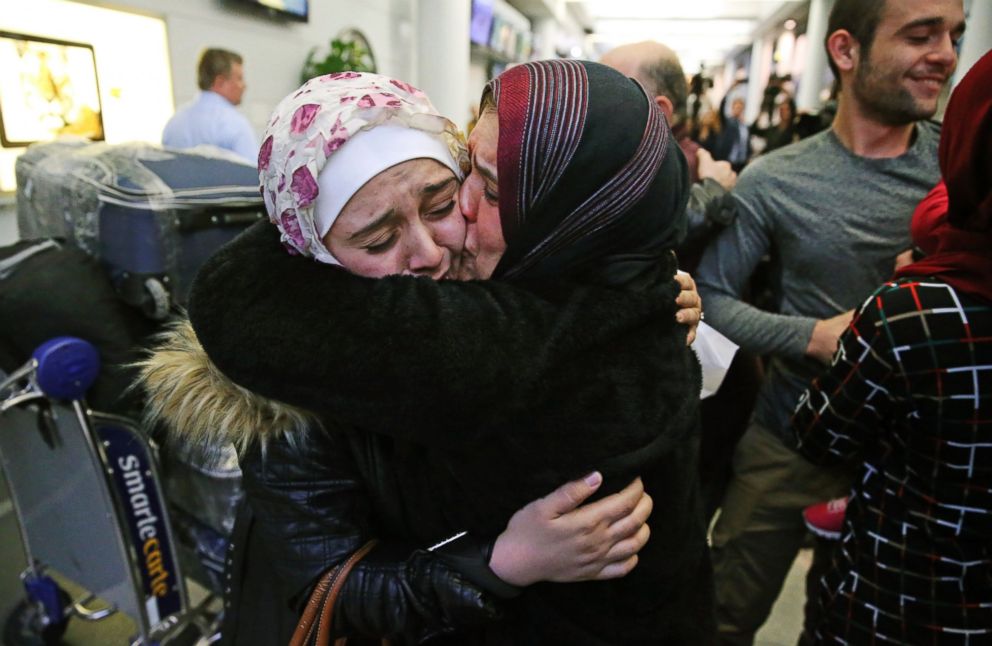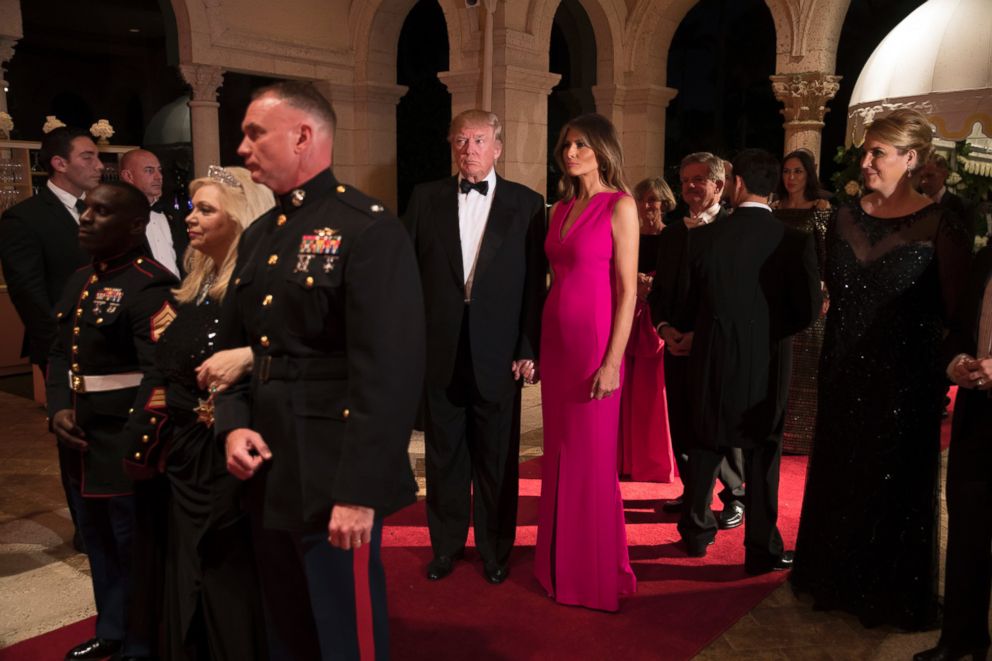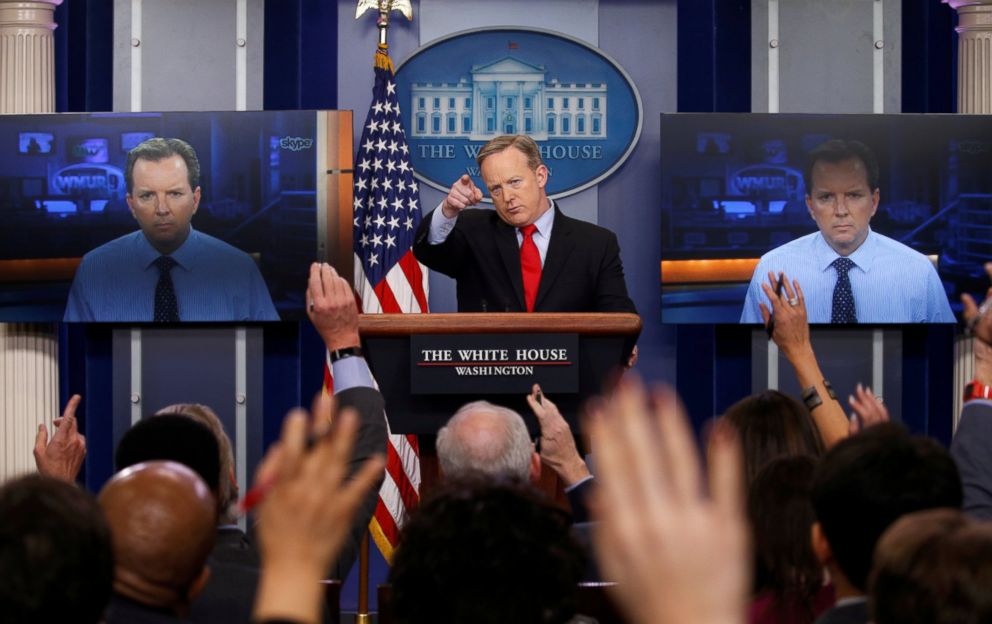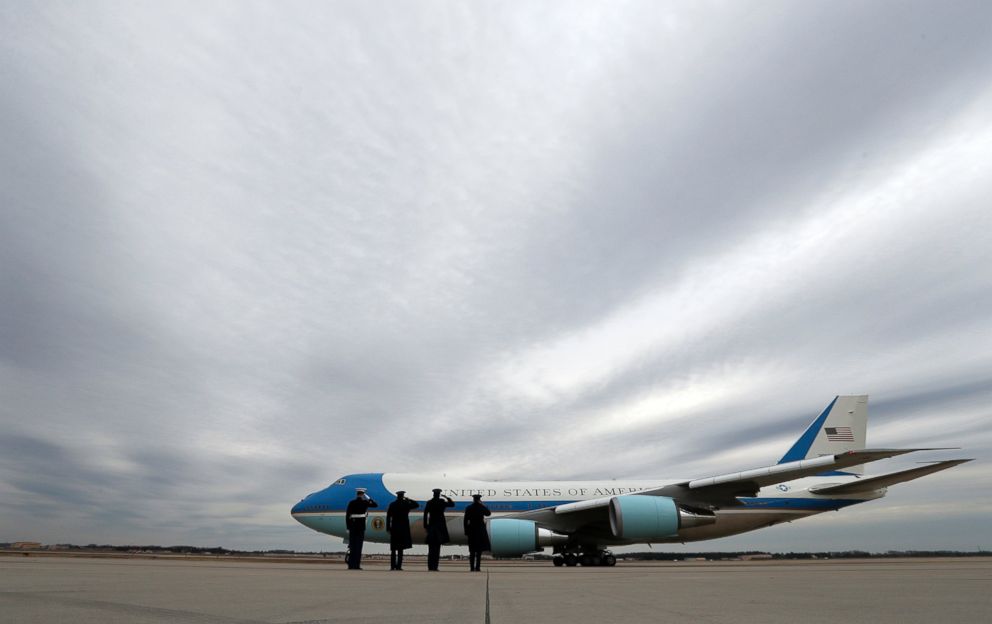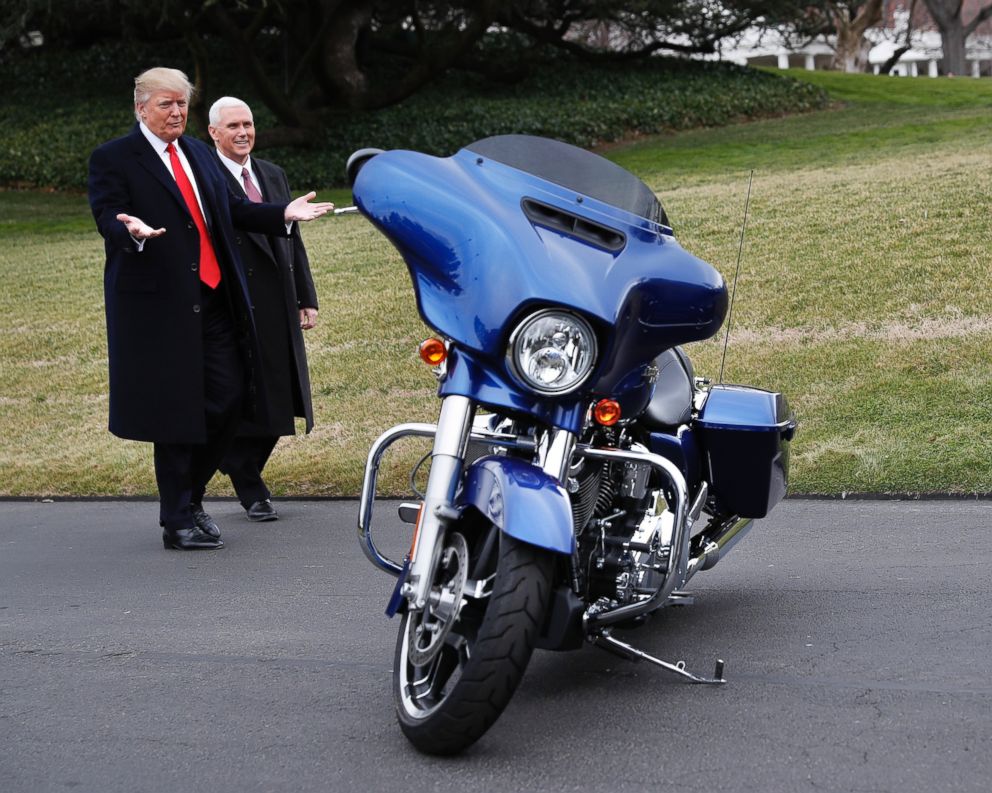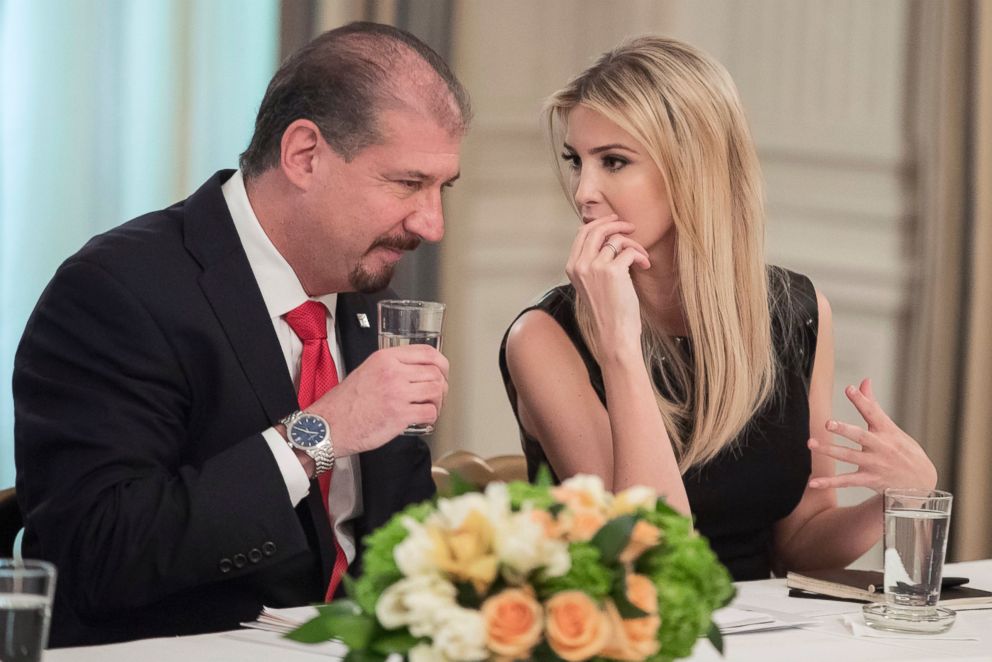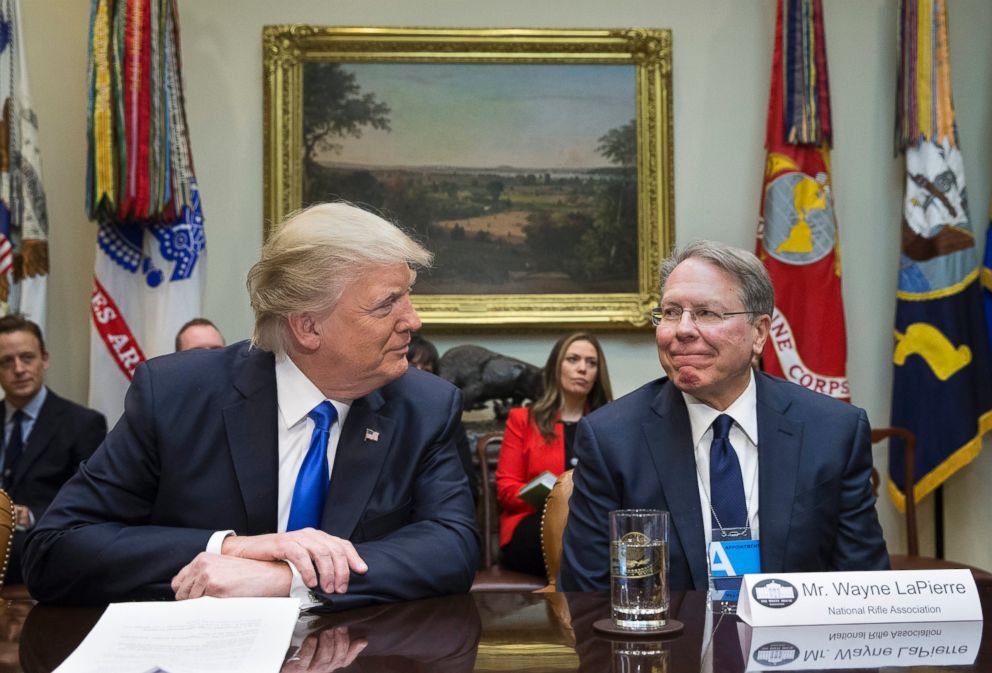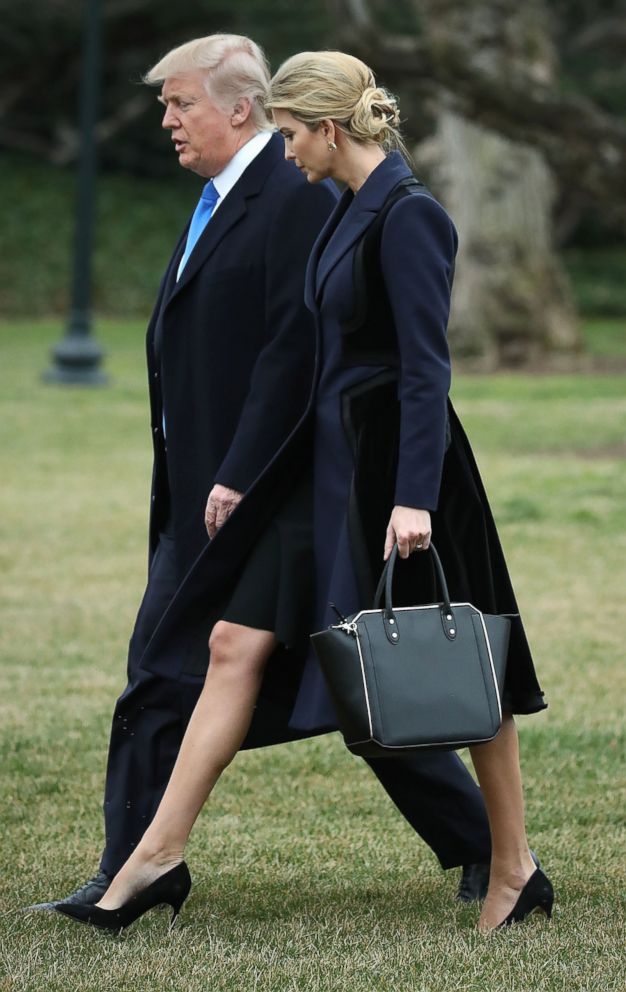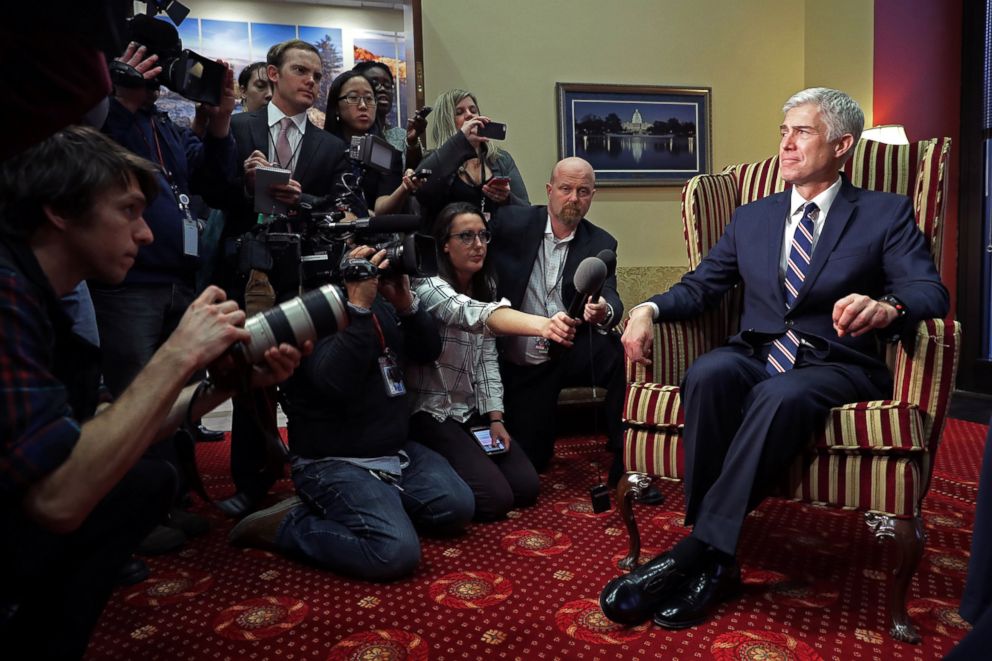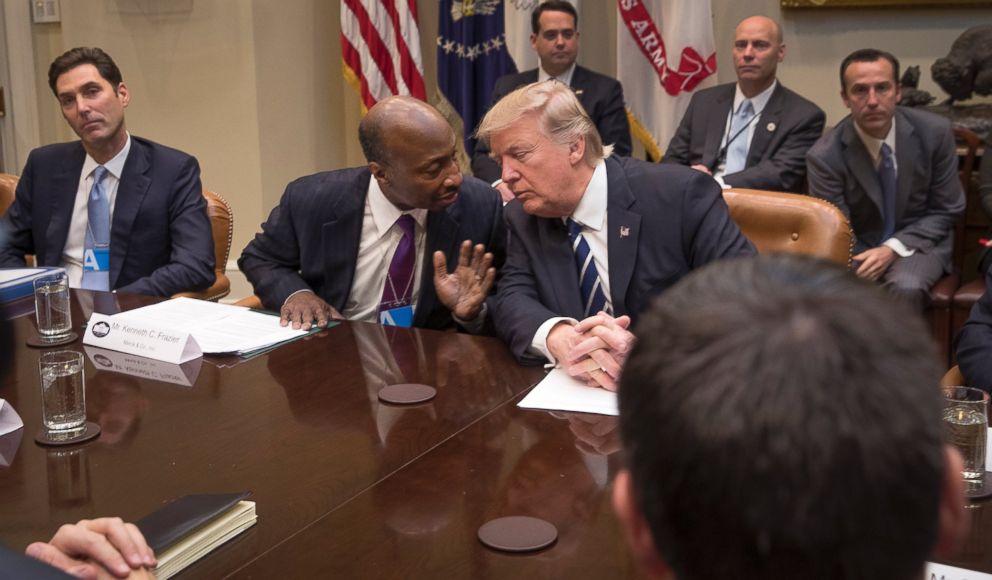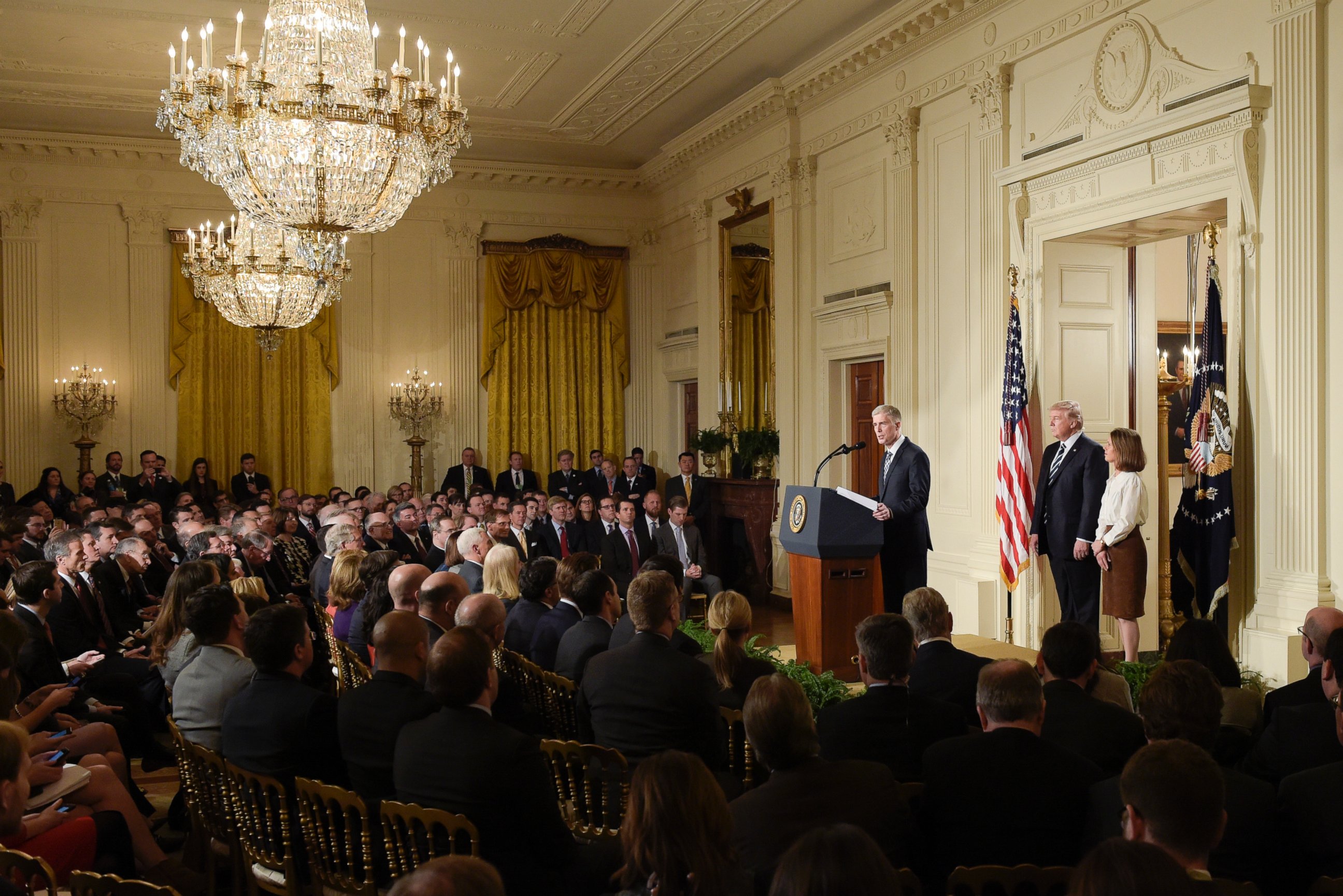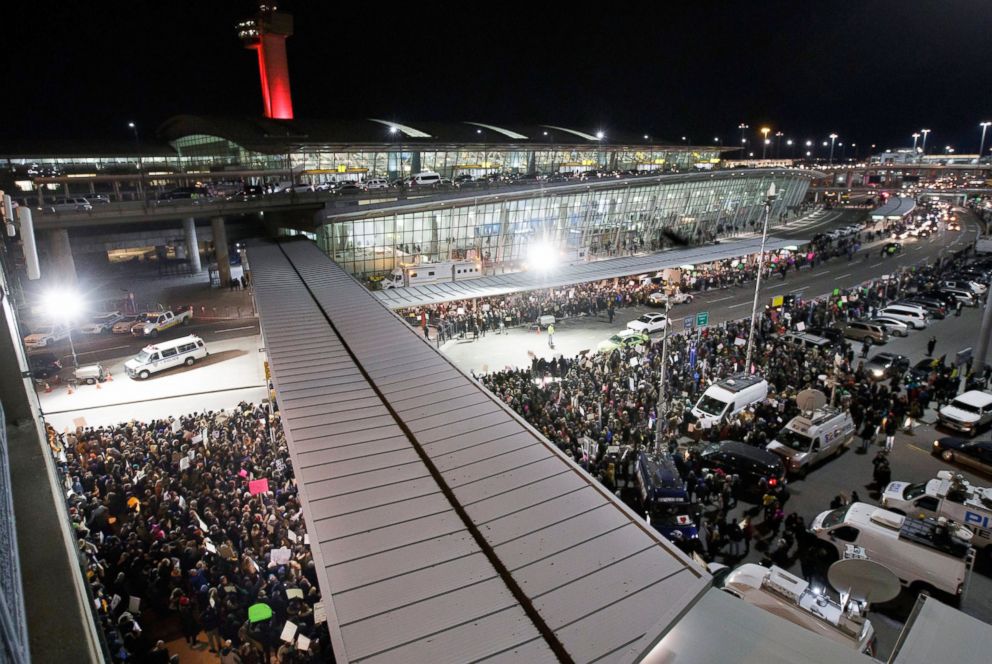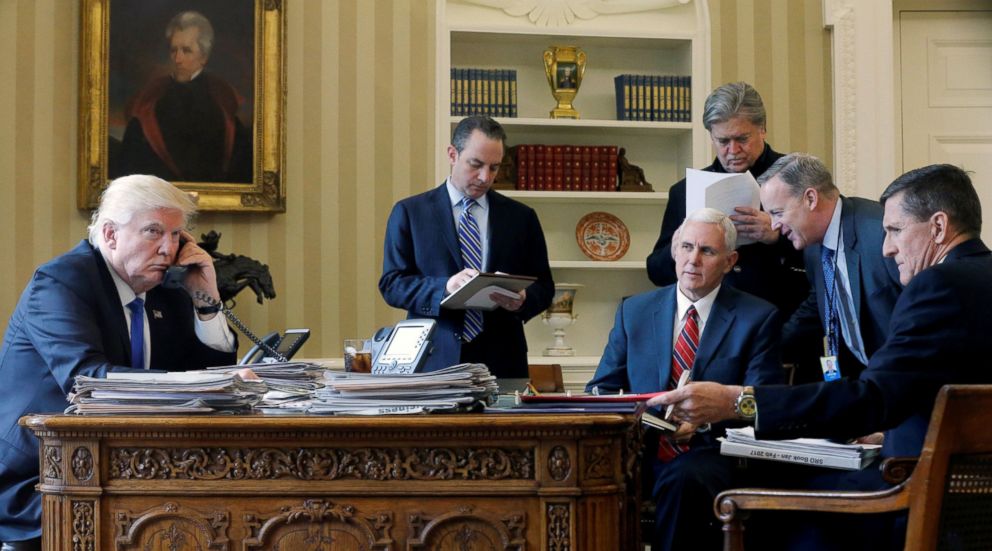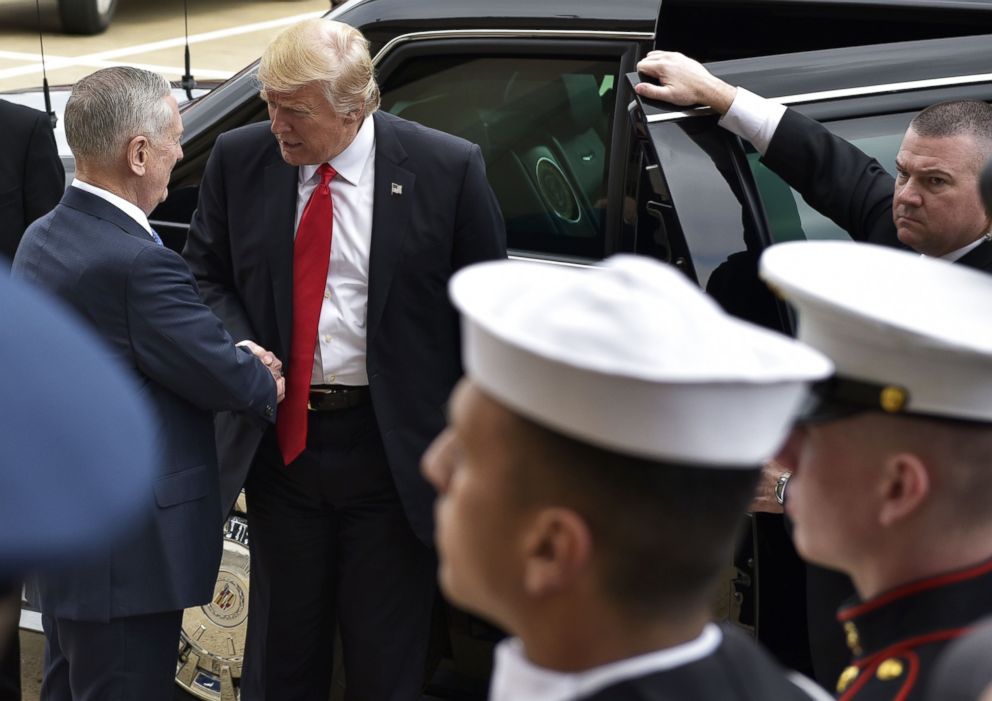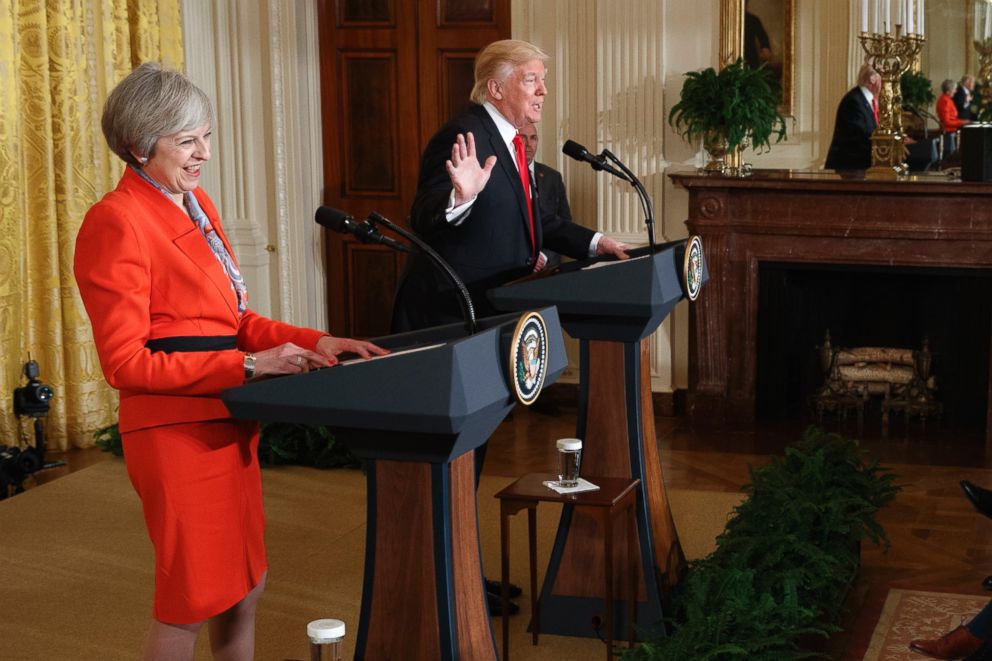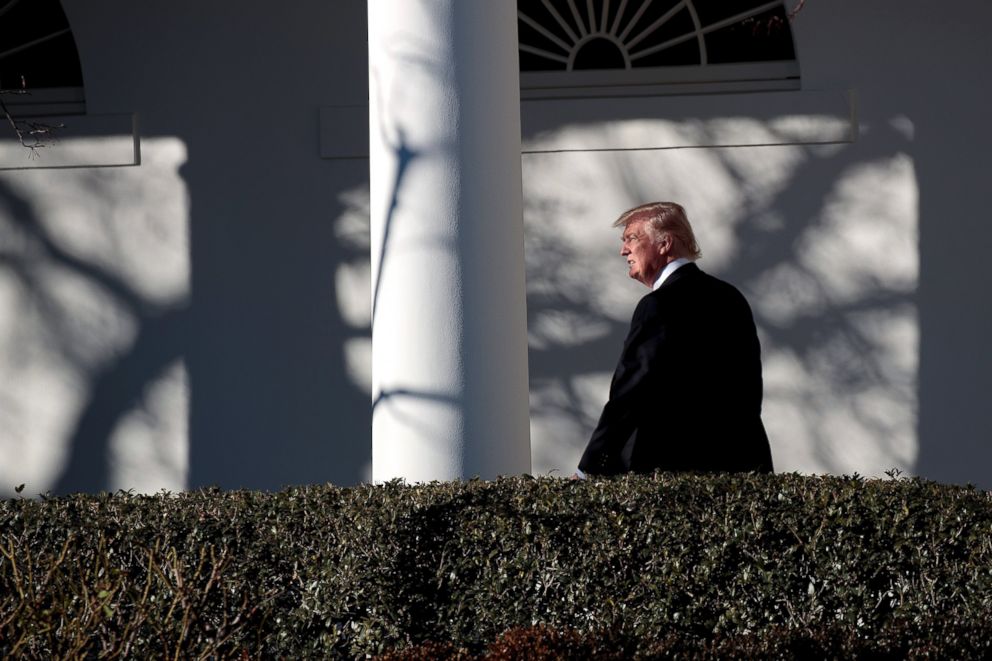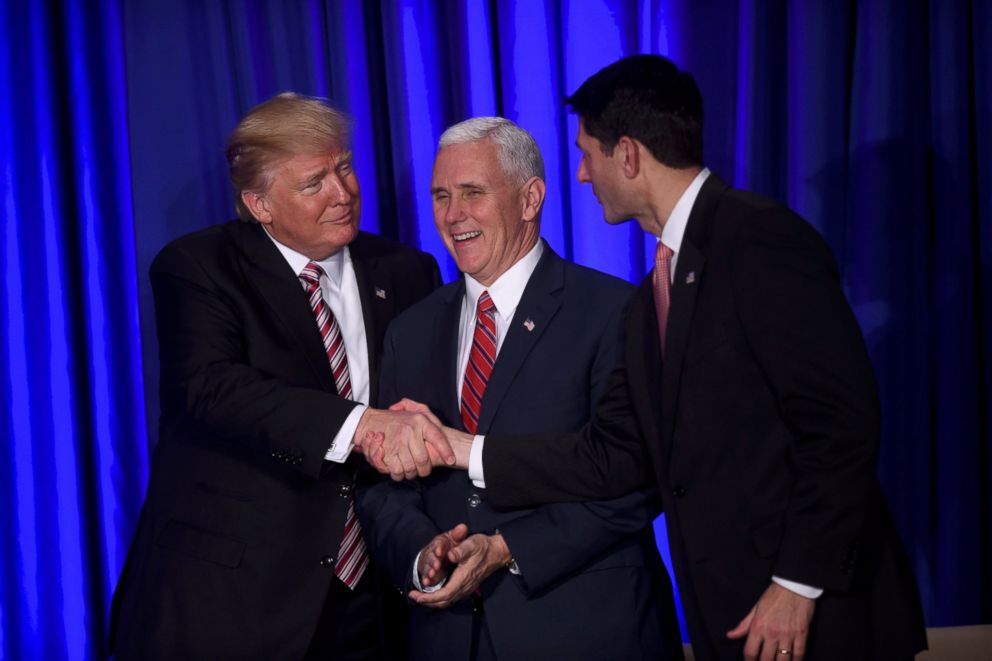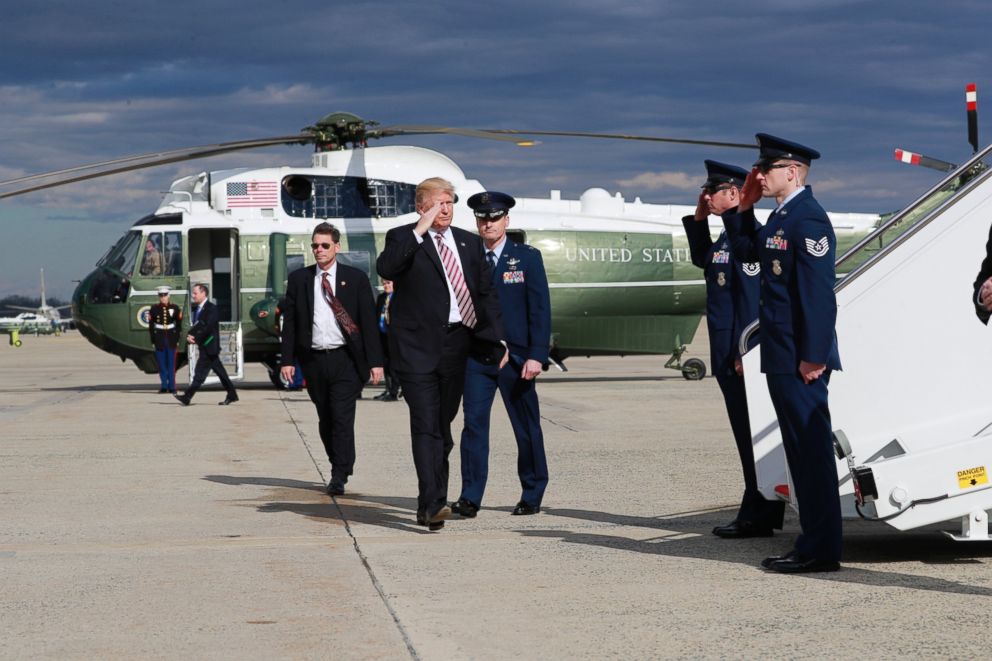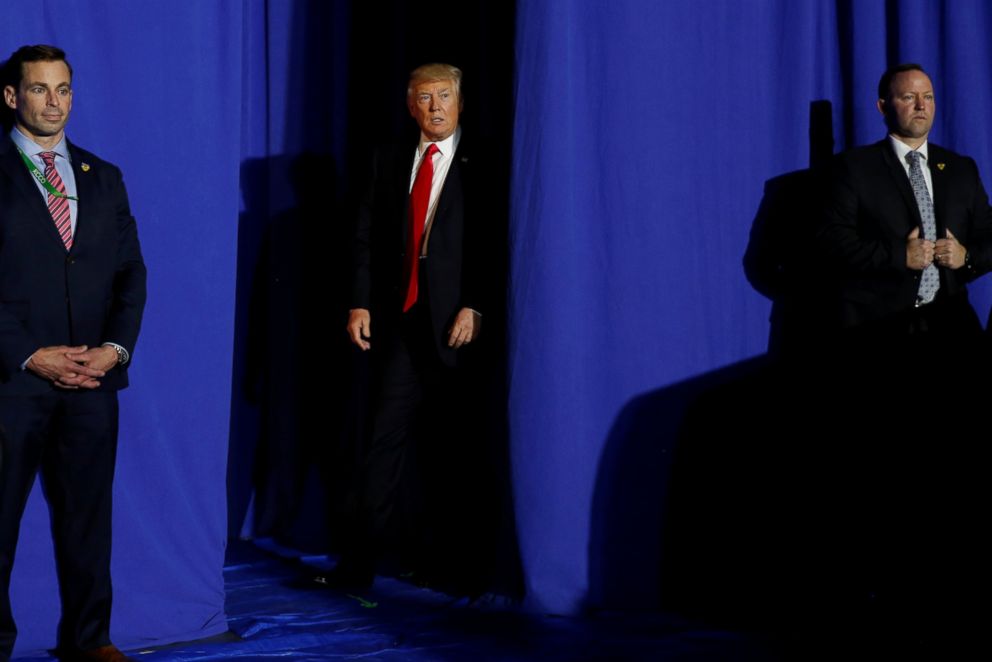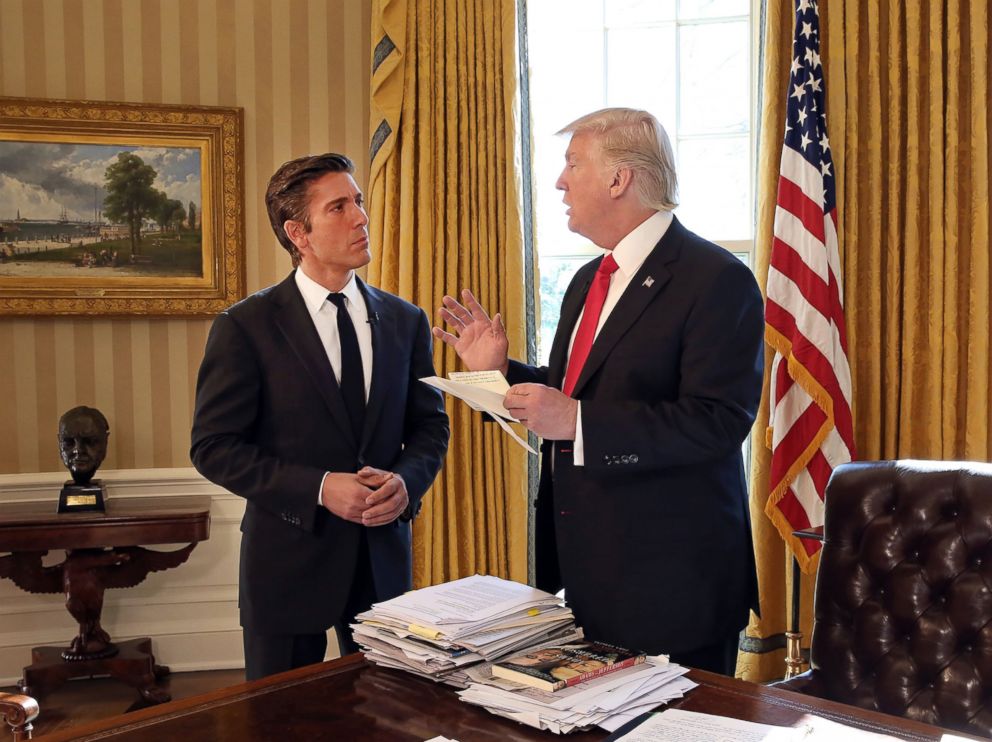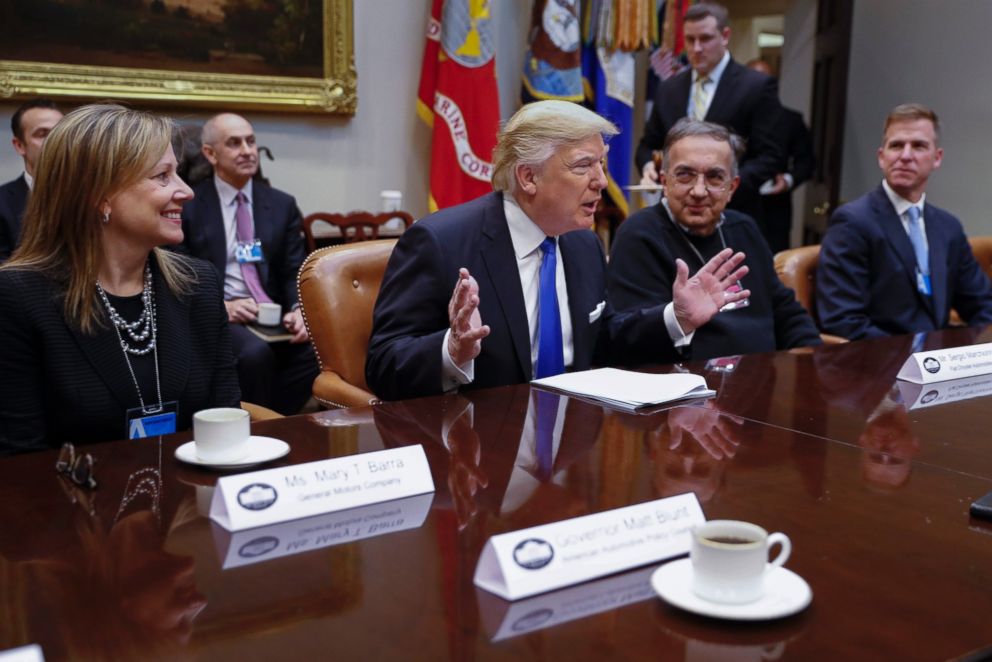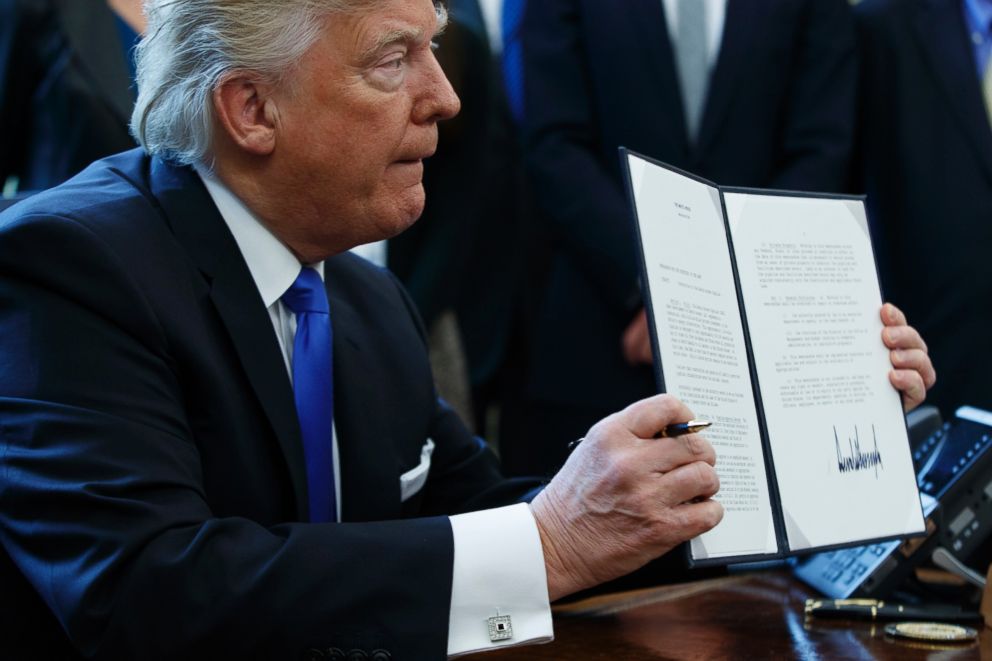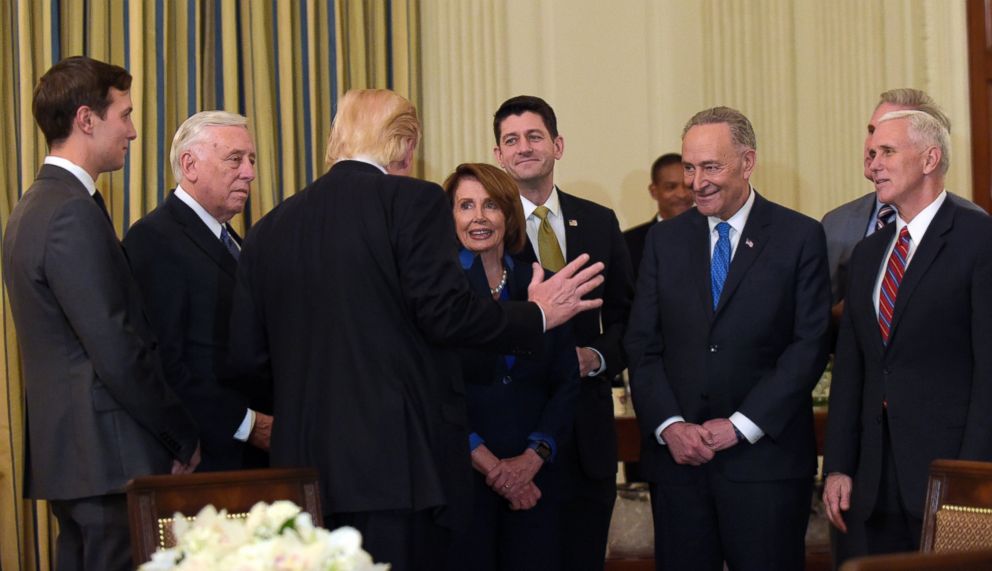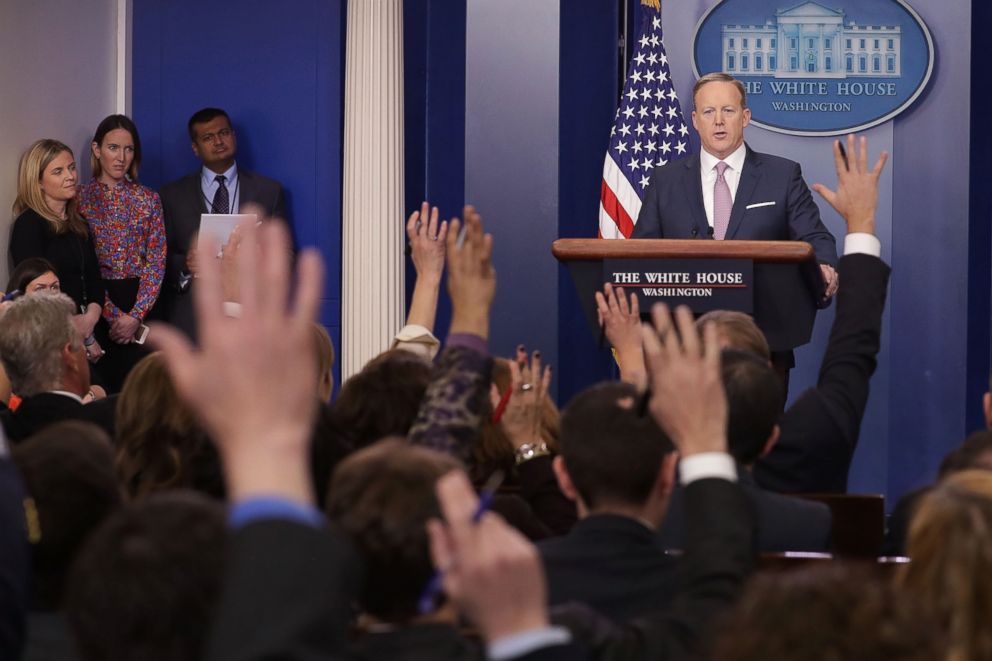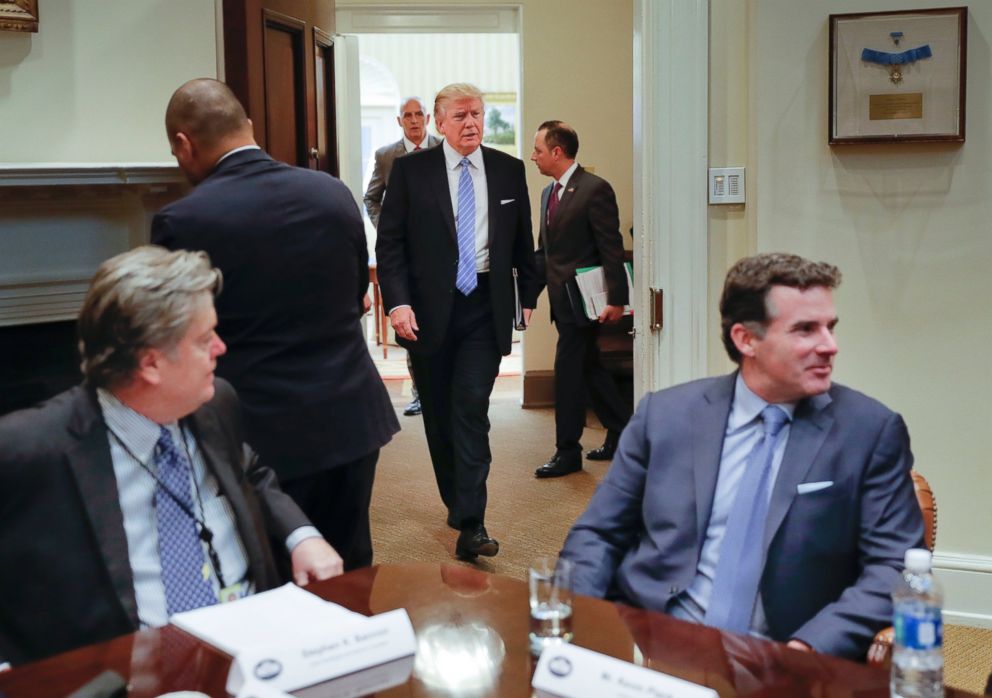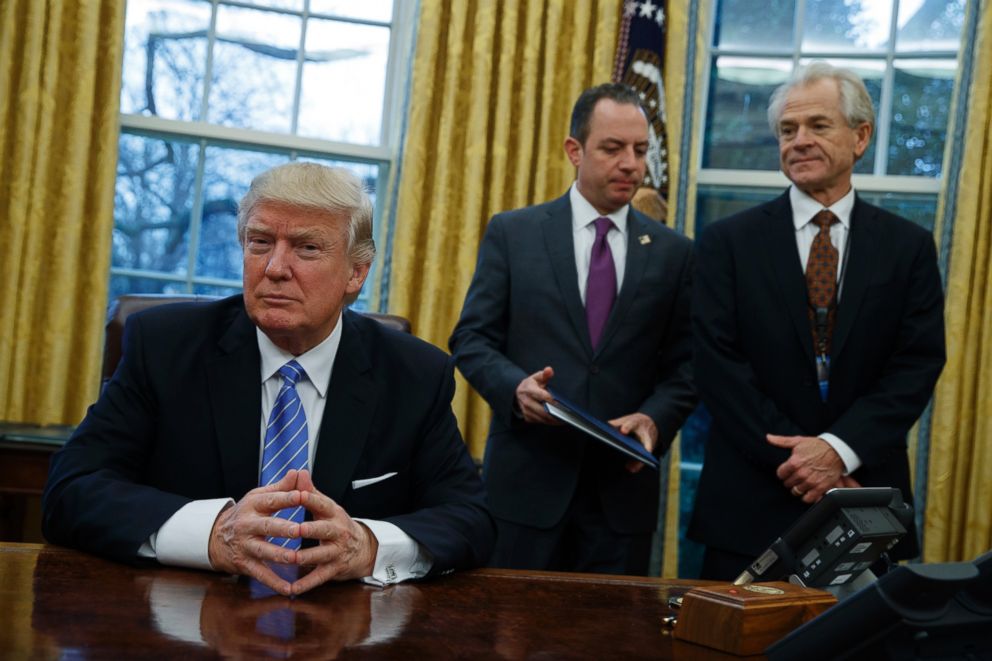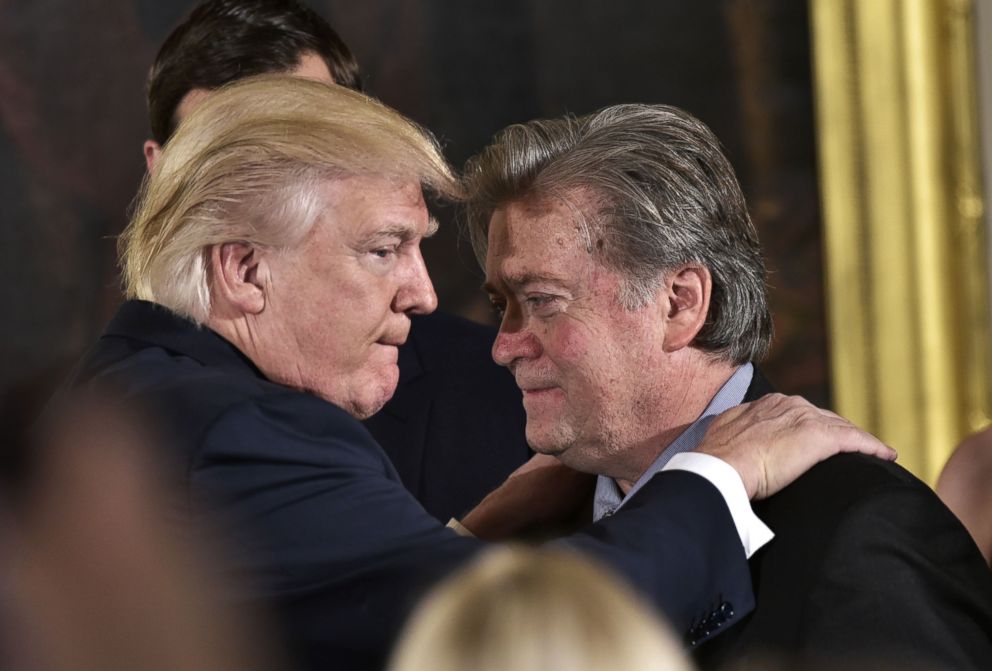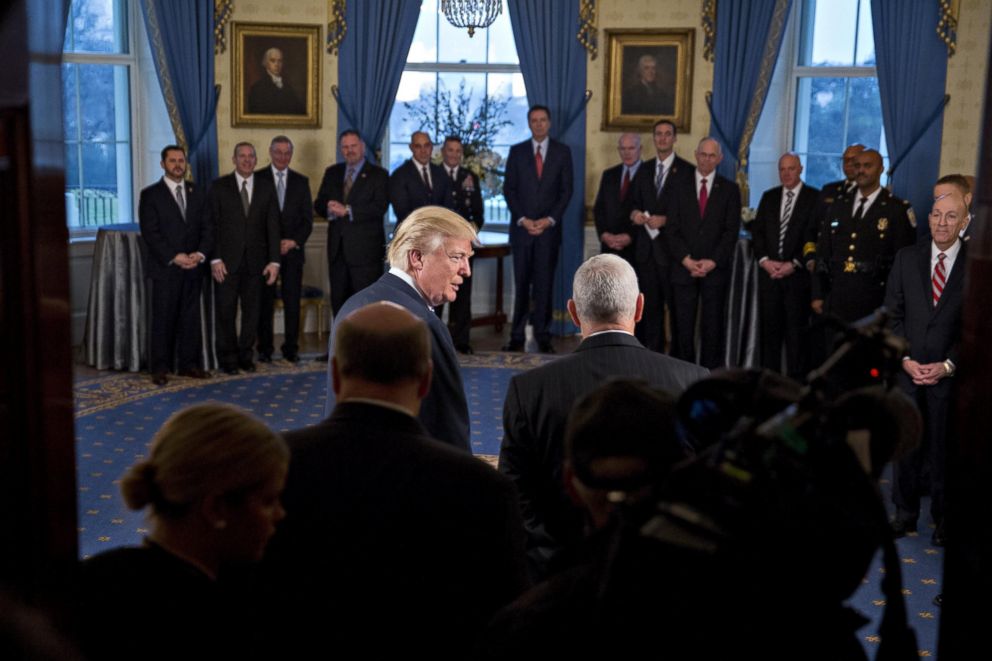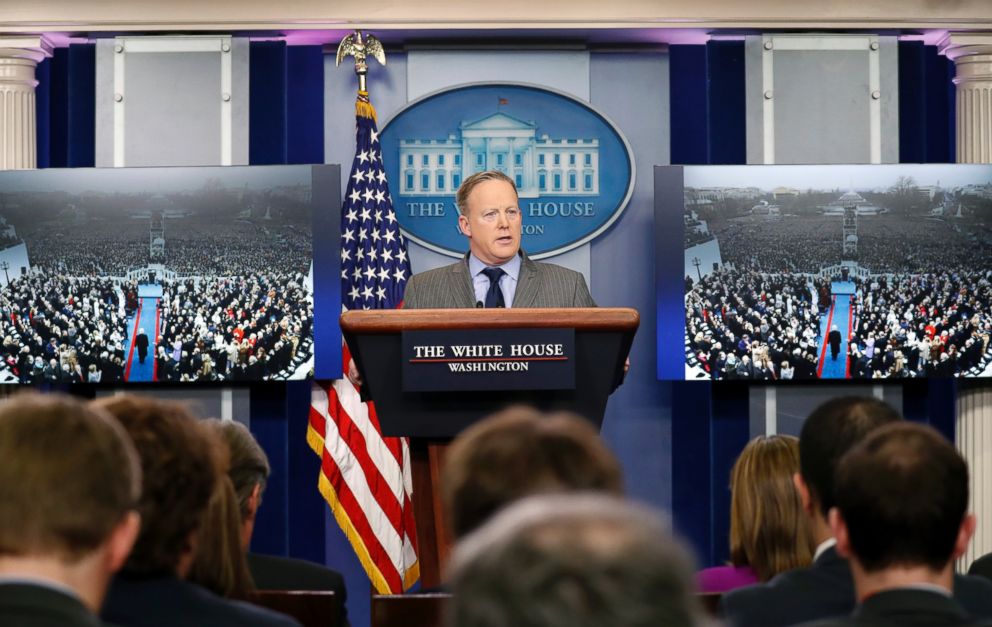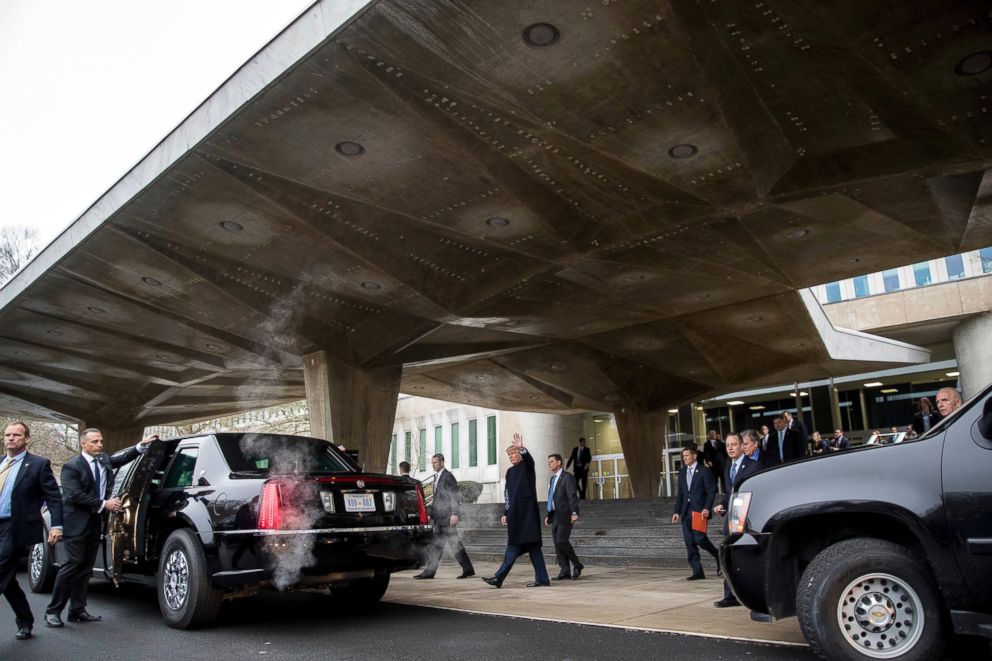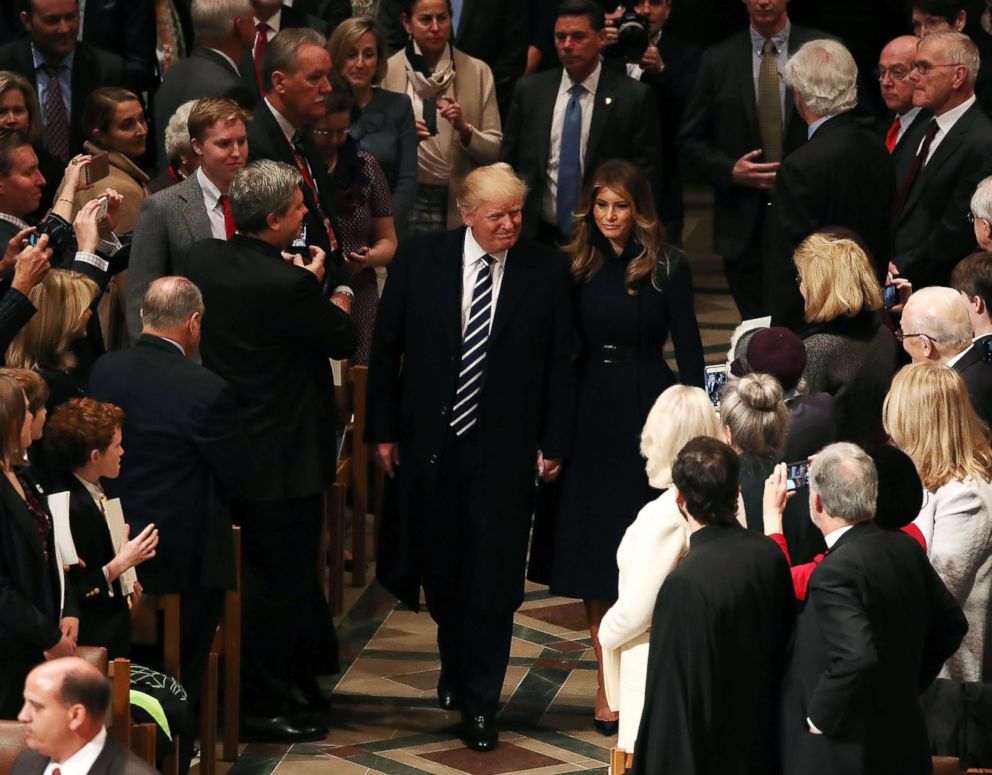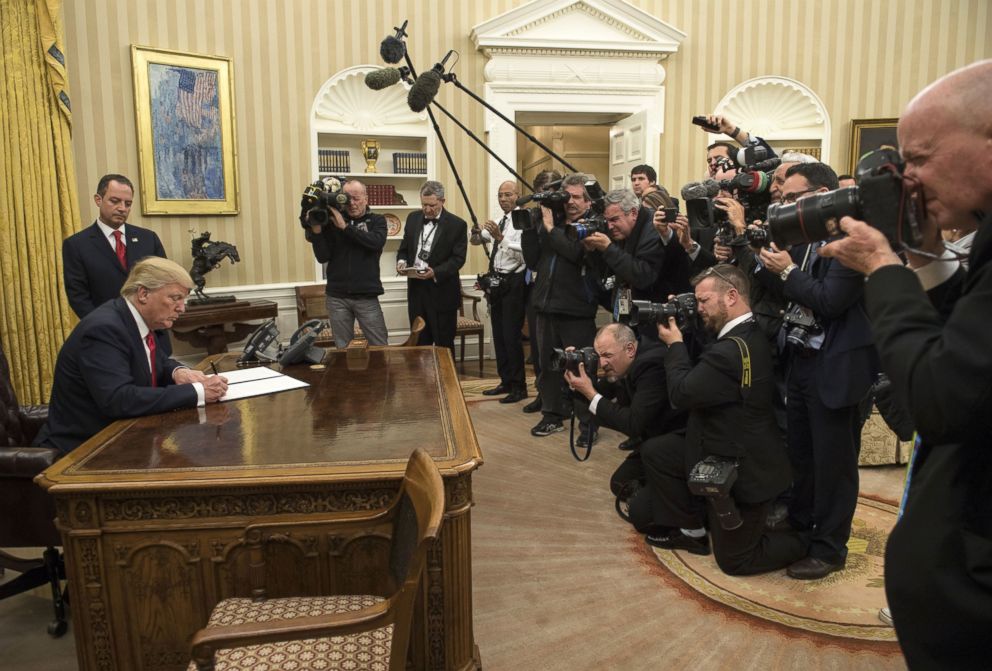Memorable moments from Trump's first 100 days in office
From hosting world leaders to becoming a player on the world's stage.
— -- President Donald Trump is well versed in how to make a splash.
The former reality star-turned-commander-in-chief marked his first 100 days in office with progress on some of his promises, a surprise exit of a key member of his team and a show of force that has started to shape his foreign policy doctrine.
Here is a review of some of the biggest moments of the Trump presidency so far.
Taking the stage
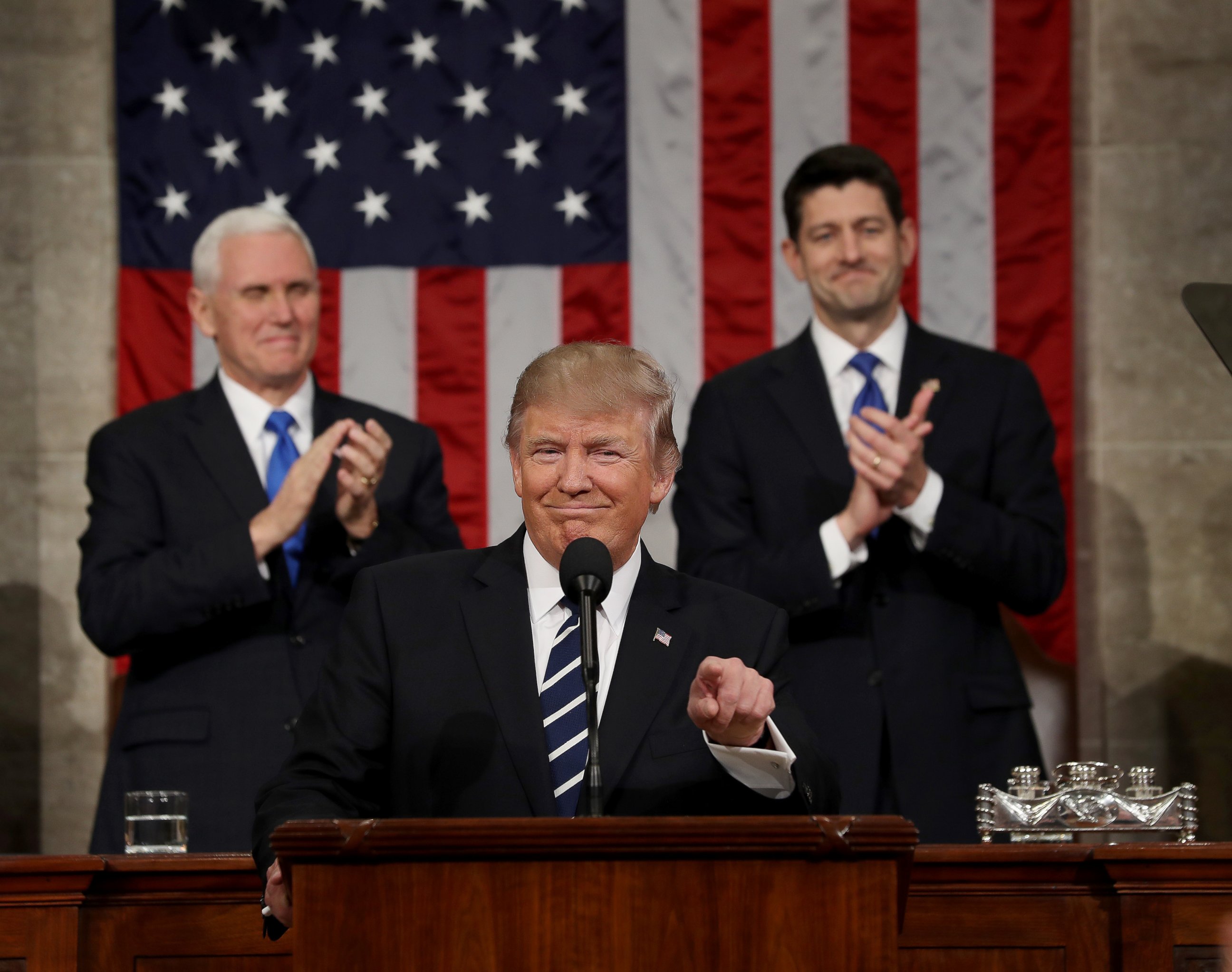
Over his three-plus months in office, Trump welcomed a dozen world leaders to the White House, holding joint press conferences with seven of them while they visited Washington, D.C. He also opened the doors to his Mar-a-Lago estate in Florida -- the so-called winter White House -- inviting Japanese Prime Minister Shinzo Abe down for a night and spending the entirety of Chinese President Xi Jinping's visit with him there.
One of the most unexpected moments of the administration so far came when he took the stage by himself, however, giving the only solo news conference so far in his term. The 75-minute news conference on Feb. 16 covered a range of topics, including a defense of his administration’s work up through that point and a sharp criticism of the media.
He received high praise after another solo appearance, but this time he had a speech in hand: Trump addressed a joint session of Congress on Feb. 28 and spoke about the direction in which he hopes to take the country and the action that his team had taken up until that point on a number of issues.
A historic choice
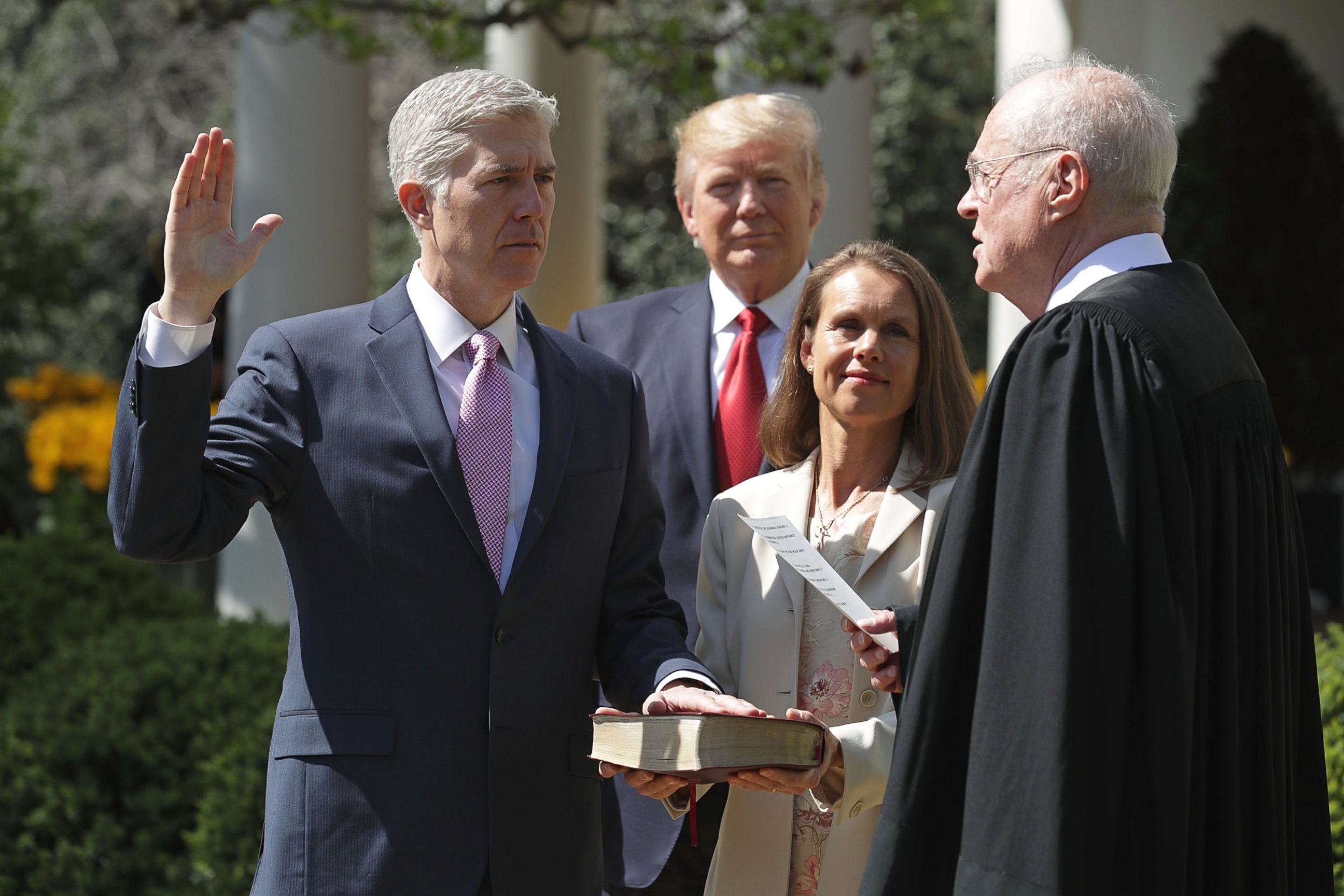
One of the clearest accomplishments of his term so far has been the confirmation of a new Supreme Court Justice, Neil Gorsuch, though even that was not without controversy.
In order to get Gorsuch confirmed, the Senate voted to change the longstanding confirmation process and lower the 60-vote threshold to a simple majority vote because Republicans did not have enough votes to confirm Gorsuch on their own. The move, known as "going nuclear," means that from now on only 51 votes are required for such a confirmation.
Unfulfilled promises
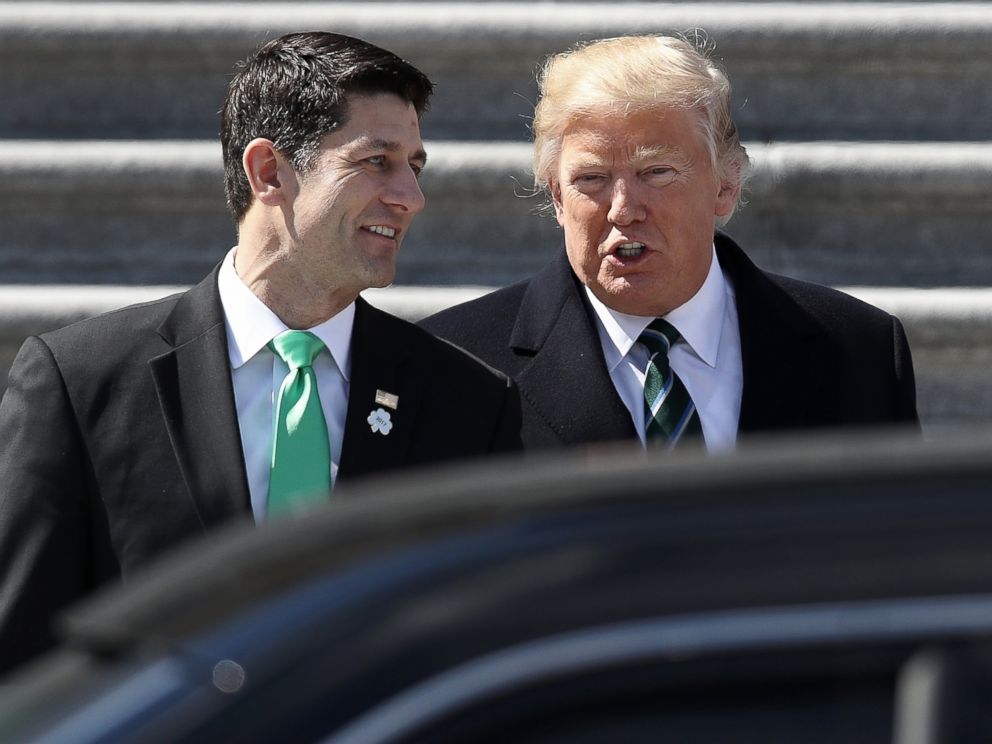
Throughout the campaign, Trump frequently listed off issues that he would address head-on when he took office, saying that he would accomplish a great deal on "day one," and he also regularly listed larger measures that he was going to take to clean up Washington, protect American workers, and restore security and the constitutional rule of law” in the first 100 days in office.
Now that the 100-day milestone is approaching, however, it has become clear that there are some promises that have not come to fruition thus far.
The Republican push for a repeal and replacement of Obamacare -- which had been a routine refrain on the campaign trail -- failed to garner enough votes to pass, so it was pulled. The first iteration of Trump's controversial travel ban -- a major part of his campaign platform -- was blocked in federal court and then withdrawn in favor of the second iteration, which has also been blocked by a federal court.
One campaign promise that the Trump administration has started to pursue is the building of a wall along the U.S.-Mexico border, and they have solicited proposals for its construction. One key initial proposal -- having Mexico pay for the wall -- has evolved since Trump took office, however, and for now, the Trump administration is saying that Mexico will pay for the wall eventually, but the U.S. paying for it in the meantime to get the process started.
In terms of tangible progress, the White House released a statement saying Trump will have signed 30 executive orders by his 100th day in office. Some of the most notable included one that restarted the construction of the Keystone XL pipeline, one calling for increased border security -- which includes the hiring of 5,000 more border patrol agents -- and an order following through on a campaign promise to stop any executive branch employees from lobbying for five years after leaving the government and a lifetime ban from foreign lobbying.
Defining his foreign policy
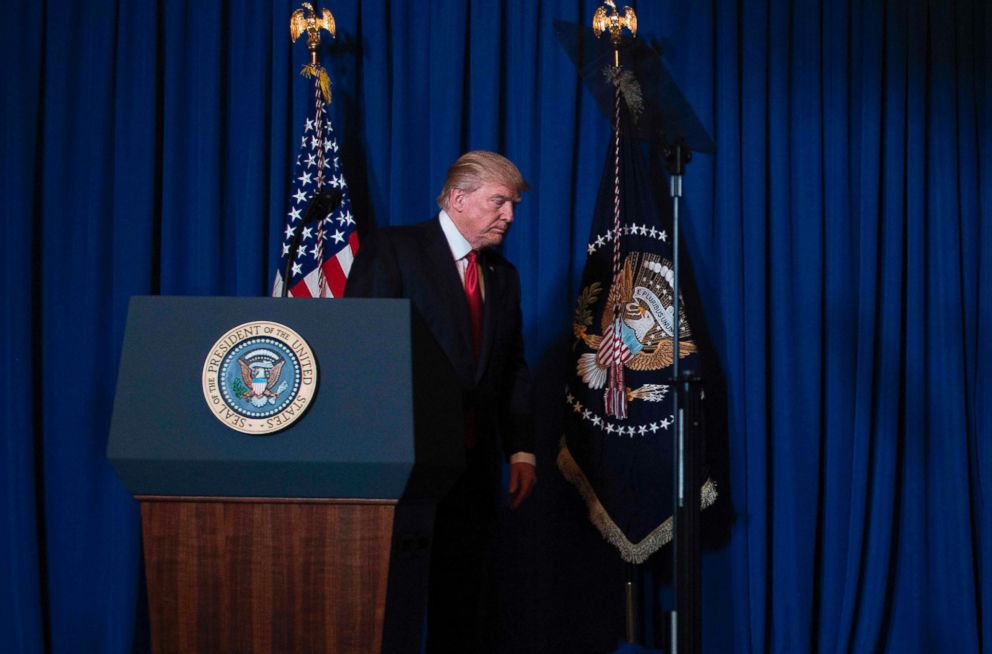
In the second half of the first 100 days, much attention was paid to the increasing focus that Trump and his administration were dedicating to issues overseas.
The targeted missile strike against an air base in Syria on April 6 came in reaction to the Assad regime's alleged use of chemical weapons on civilians, which Trump said "crossed many, many lines."
The next strike ordered since Trump has taken office came on April 13, when the U.S. dropped the GBU-43, or massive ordnance air blast (MOAB) bomb, nicknamed the “mother of all bombs,” on a complex of ISIS-controlled caves in the Nangarhar province in Afghanistan. According to The Associated Press, the Afghan Defense Ministry reports that 95 militants and no civilians were killed. These figures have not been independently verified by ABC News.
The Trump administration has also tangled with North Korea, with Trump and his team, including Vice President Mike Pence, saying that they won't allow any threats made by the country to go unnoticed.
The rebukes from the Trump administration came after a set of intercontinental ballistic missiles were featured in a massive military display in central Pyongyang during the country's annual parade in celebration of its founder. A subsequent missile launch failed, according to U.S. and South Korean officials.
When Trump was asked for his message to North Korea after its failed missile launch, the president responded, "They gotta behave."
High-profile personnel issues
The team around Trump has had one notable departure and one noteworthy addition during the first 100 days, both of which were memorable moments in the course of the administration.
One unexpected removal from the Trump train came when Michael Flynn, his national security adviser, was asked to resign after it became clear that he had misled Pence about the nature of his transition-era conversations with Sergey Kislyak, Russia's ambassador to the U.S.
Flynn wasn't the only one to run into trouble over his conversations with Kislyak, as Attorney General Jeff Sessions recused himself from any existing or future Department of Justice probes related to Trump's 2016 presidential campaign because of questions that were raised about his alleged ties to Russian officials -- specifically Kislyak.
Trump's first 100 days
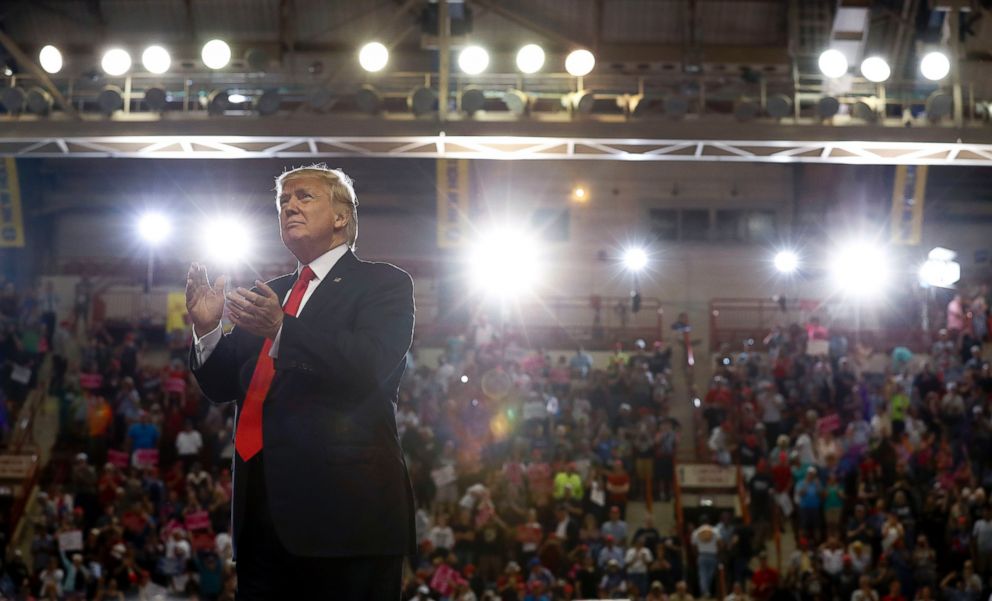
Sessions failed to disclose two interactions with Kislyak during his confirmation hearing when he said, "I have been called a surrogate at a time or two in that campaign and I didn't have -- did not have communications with the Russians."
On March 9, the White House did not deny that Trump himself met Kislyak briefly at a foreign policy forum during his presidential campaign, which comes in contrast to his earlier repeated denials that he never had any contact with Russian officials during the campaign. The White House released a statement saying Trump and Kislyak’s interaction was limited to “a short reception” before Trump spoke, and “any conversations with Mr. Trump in that setting were inherently brief and could not be private.”
A familiar face that did formally join the team was Ivanka Trump, the president's eldest daughter whose husband Jared Kushner is already working in the West Wing as his unpaid senior adviser.
Ivanka Trump cited ethics concerns that were raised about her informal role -- during which she received security clearance, a government-issued communications device, and a White House office -- so she adopted the title of assistant to the president in order to compel her to follow government ethics rules, which she said she had already been doing voluntarily. She is not taking a salary for the position.
